THE CONRAD
Home of La Jolla Music Society
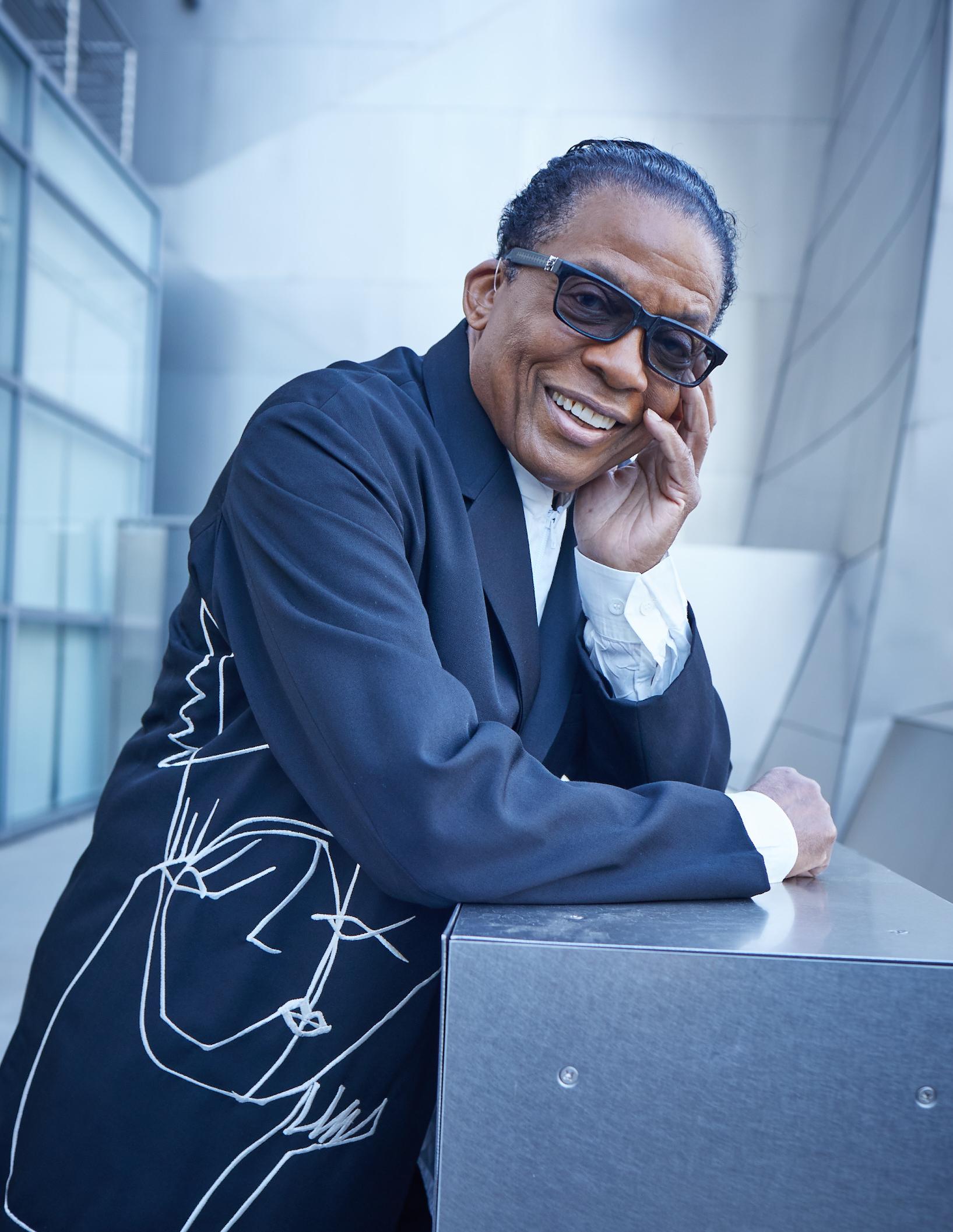
SEASON
APRIL 18–JUNE
Herbie Hancock
2023—2024
OCTOBER
ISATA KANNEH-MASON, piano
SATURDAY, OCTOBER 7, 2023
7:30 PM
Piano Series
THIBAUDET/BATIASHVILI/CAPUÇON TRIO*
FRIDAY, OCTOBER 13, 2023
7:30 PM
Revelle Chamber Music Series
MARIACHI HERENCIA DE MÉXICO & MARISOL
“LA MARISOUL” HERNÁNDEZ*
SUNDAY, OCTOBER 15, 2023
3 PM
Global Roots Series
SPECIAL EVENT: LILA DOWNS
DOS CORAZONES
SUNDAY, OCTOBER 22, 2023
7 PM
Balboa Theatre
BANDA MAGDA*
FRIDAY, OCTOBER 27, 2023
6 PM & 8:30 PM
Concerts @ The JAI
NOVEMBER
TURN IT OUT W/ TILER PECK & FRIENDS*
WEDNESDAY, NOVEMBER 1, 2023
7:30 PM
Dance Series
Civic Theatre
SILKROAD ENSEMBLE WITH RHIANNON GIDDENS*
AMERICAN RAILROAD
FRIDAY, NOVEMBER 10, 2023
7:30 PM
Global Roots Series
Balboa Theatre
SPECIAL FAMILY EVENT: COCO LIVE-TO-FILM CONCERT*
SATURDAY, NOVEMBER 11, 2023
ALISA WEILERSTEIN
FRAGMENTS 2
THURSDAY, NOVEMBER 16, 2023
3:30 PM & 7:30 PM
7:30 PM ProtoStar Innovative Series
Co-produced by the San Diego Symphony
MAO FUJITA*, piano
SUNDAY, NOVEMBER 19, 2023
3 PM Discovery Series
FLOR DE TOLOACHE*
THURSDAY, NOVEMBER 30, 2023
6 PM & 8:30 PM Concerts @ The JAI
DECEMBER
MICHELE CAFAGGI — THE MAGIC OF BUBBLES*
SATURDAY, DECEMBER 2, 2023
10 AM & 11:30 AM
ConRAD Kids Series
The JAI
SEONG-JIN CHO, piano
SUNDAY, DECEMBER 3, 2023 • 3 PM
Piano Series
DAVINA AND THE VAGABONDS HOLIDAY SHOW
WEDNESDAY, DECEMBER 6, 2023 • 6 PM & 8:30 PM
Concerts @ The JAI
MATTHEW WHITAKER QUARTET*
SUNDAY, DECEMBER 10, 2023
5 PM & 7:30 PM
JANUARY
SEAN MASON QUARTET*
SUNDAY, JANUARY 14, 2024 • 5 PM & 7:30 PM
Concerts @ The JAI
PETER HILLARY*
70 Years of Everest
THURSDAY, JANUARY 18, 2024 • 7:30 PM
Speaker Series
TATIANA EVA-MARIE & AVALON JAZZ BAND*
FRIDAY, JANUARY 19, 2024 • 6 PM & 8:30 PM
Concerts @ The JAI
TONY SIQI YUN*, piano
SUNDAY, JANUARY 21, 2024 • 3 PM
Discovery Series
LUCAS & ARTHUR JUSSEN*, pianos
THURSDAY, JANUARY 25, 2024 • 7:30 PM
Piano Series
LAKECIA BENJAMIN AND PHOENIX
SUNDAY, JANUARY 28, 2024 • 5 PM & 7:30 PM
Concerts @ The JAI
FEBRUARY
LES BALLETS TROCKADERO DE MONTE CARLO*
50TH ANNIVERSARY
FRIDAY, FEBRUARY 2, 2024 • 7:30 PM
Dance Series
Balboa Theatre
BALOURDET QUARTET
SUNDAY, FEBRUARY 4, 2024 • 3 PM
Discovery Series
BLUE NOTE 85TH ANNIVERSARY TOUR*
SATURDAY, FEBRUARY 10, 2024 • 7:30 PM
Jazz Series
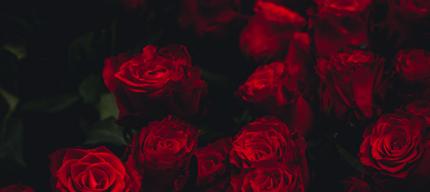
CONNECT TO THE CONRAD
RENÉE FLEMING*, soprano & INON BARNATAN, piano
ARTIST-IN-RESIDENCE
WEDNESDAY, FEBRUARY 14, 2024 • 8 PM
Recital Series
CLARICE & SÉRGIO ASSAD*
FRIDAY, FEBRUARY 16, 2024 · 6 PM & 8:30 PM
Concerts @ The JAI
MIRÓ QUARTET
SATURDAY, FEBRUARY 17, 2024 • 7:30 PM
Revelle Chamber Music Series
AMBROSE AKINMUSIRE TRIO*
FRIDAY, FEBRUARY 23, 2024 • 6 PM & 8:30 PM
Concerts @ The JAI
ANDY MANN*
Making Waves: Summit to Sea
THURSDAY, FEBRUARY 29, 2024 • 7:30 PM
Speaker Series
MARCH
LAWRENCE BROWNLEE*, tenor
SATURDAY, MARCH 2, 2024 • 7:30 PM
Recital Series
Concerts @ The JAI
Co-produced by San Diego Opera
2 THE CONRAD | HOME OF LA JOLLA MUSIC SOCIETY · 2023-24 SEASON
WINTERFEST Gala
•
•
•
•
•
•
•
•
•
•
•
•
•
MARIA IOUDENITCH*, violin & KENNETH BROBERG*, piano
SUNDAY, MARCH 3, 2024
3 PM Discovery Series
KRONOS FIVE DECADES EVENT
KRONOS QUARTET AND SAM GREEN: A THOUSAND THOUGHTS
FRIDAY, MARCH 8, 2024
7:30 PM ProtoStar Innovative Series
KINGS RETURN
SATURDAY, MARCH 9, 2024
6 PM & 8:30 PM Concerts @ The JAI
MEOW MEOW*
SUNDAY, MARCH 10, 2024
5 PM & 7:30 PM Concerts @ The JAI
AN EVENING WITH BRANFORD MARSALIS
THURSDAY, MARCH 14, 2024
7:30 PM Jazz Series
ALPHABET ROCKERS*
SATURDAY, MARCH 16, 2024
3 PM ConRAD Kids Series
ĀHUTI: NRITYAGRAM* & CHITRASENA*
WEDNESDAY, MARCH 20, 2024
7:30 PM
THURSDAY, MARCH 21, 2024
7:30 PM Dance Series
LADYSMITH BLACK MAMBAZO
FRIDAY, MARCH 22, 2024
7:30 PM Global Roots Series
RAY CHEN, violin & JULIO ELIZALDE*, piano
THURSDAY, MARCH 28, 2024
7:30 PM Recital Series
APRIL
JAKUB JÓZEF ORLIŃSKI* WITH IL POMO D’ORO BEYOND
SUNDAY, APRIL 7, 2024
3 PM Revelle Chamber Music Series
QUATUOR ÉBÈNE*
FRIDAY, APRIL 12, 2024
7:30 PM Revelle Chamber Music Series
ABEL SELAOCOE & MANCHESTER COLLECTIVE* SIROCCO
SUNDAY, APRIL 14, 2024
7 PM
ProtoStar Innovative Series
JAZZ PIANO MINI FESTIVAL
HERBIE HANCOCK
THURSDAY, APRIL 18, 2024
7:30 PM Jazz Series
Balboa Theatre
DAYRAMIR GONZÁLEZ* & HABANA enTRANCé*
FRIDAY, APRIL 19, 2024 • 6 PM & 8:30 PM
Concerts @ The JAI
HIROMI’S SONICWONDER*
SATURDAY, APRIL 20, 2024
7:30 PM Jazz Series
HIROMI: THE PIANO QUINTET
FEATURING PUBLIQUARTET*
SUNDAY, APRIL 21, 2024 • 3 PM
ProtoStar Innovative Series
YEFIM BRONFMAN, piano
FRIDAY, APRIL 26, 2024 • 7:30 PM
Piano Series
MAY
KAKI KING*
SATURDAY, MAY 4, 2024 • 10 AM & 11:30 AM
ConRAD Kids Series
The JAI
JUNCTION TRIO
CONRAD TAO, piano; STEFAN JACKIW, violin; JAY CAMPBELL, cello
SUNDAY, MAY 5, 2024 • 3 PM
Revelle Chamber Music Series
COMMUNITY ARTS OPEN HOUSE
SATURDAY, MAY 11, 2024 • 1 PM
Free Community Event
The Conrad
BALLETS JAZZ MONTRÉAL*
DANCE ME
WEDNESDAY, MAY 15, 2024 • 7:30 PM
Dance Series
Civic Theatre
PABLO FERRÁNDEZ*, cello
THURSDAY, MAY 16, 2024 • 7:30 PM
Recital Series
Charles McPherson & Friends
FEATURING JOHN BEASLEY AND THE NEXT GENERATION*
SATURDAY, MAY 18, 2024 • 6 PM & 8:30 PM
Concerts @ The JAI
JIJI*, guitar
SUNDAY, MAY 19, 2024 • 3 PM Discovery Series
TERRY VIRTS*
How to Astronaut
THURSDAY, MAY 23, 2024 • 7:30 PM Speaker Series
BRUCE LIU*, piano
FRIDAY, MAY 31, 2024 • 7:30 PM Piano Series
JUNE
LARRY & JOE*
SATURDAY, JUNE 1, 2024 • 6 PM & 8:30 PM
Concerts @ The JAI
CHRIS THILE
FRIDAY, JUNE 7, 2024 • 7:30 PM Global Series
THE CH ARLES McPHERSON QUINTET*
SUNDAY, JUNE 9, 2024 • 5 PM & 7:30 PM
Concerts @ The JAI
*LJMS debut
TheConrad.org · 858.459.3728 3
Dates, times, programs, artists, and venues are subject to change. All events take place in The Baker-Baum Concert Hall unless noted.
•
•
•
•
•
•
•
•
•
•
•
•
•
•
•

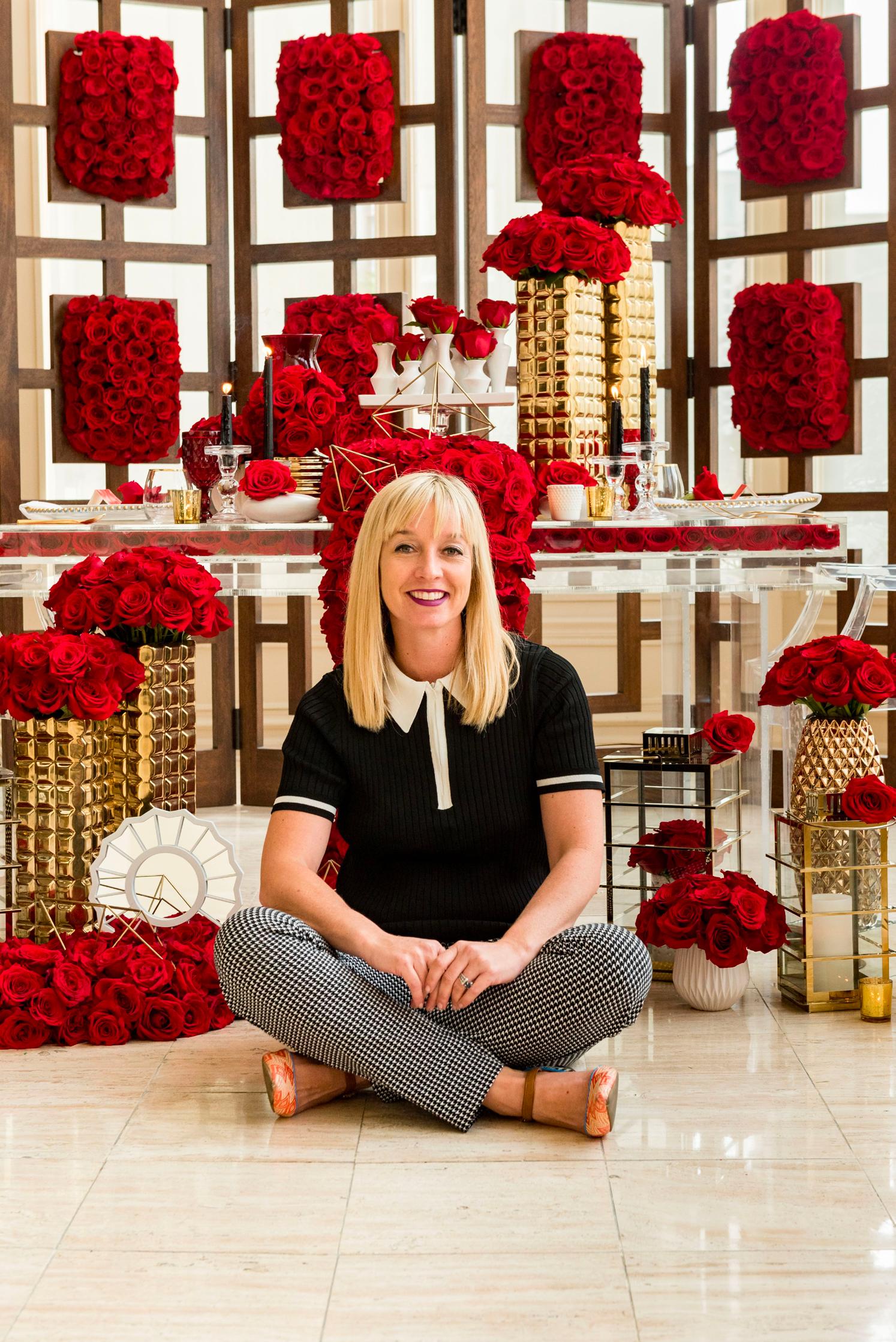
4 THE CONRAD | HOME OF LA JOLLA MUSIC SOCIETY · 2023-24 SEASON FLOWERCHILDSANDIEGO.COM
Elegant Dining, Exceptional Moments

Thoughtfully Prepared by Executive Chef Kelli Crosson For reservations, call (858) 777-6635
TheConrad.org · 858.459.3728 5
WE ARE CALIFORNIA’S BUSINESS BANC.
Proud Partner and the Official Bank of LA JOLLA MUSIC SOCIETY
Every day, business owners, entrepreneurs, executives and community leaders are being empowered by Banc of California to reach their dreams and strengthen our economy. With more than $10 billion in assets and over 30 banking locations throughout the state, we are large enough to meet your banking needs, yet small enough to serve you well.
Learn more about how we’re empowering California through its diverse businesses, entrepreneurs and communities at bancofcal.com ©
6 THE CONRAD | HOME OF LA JOLLA MUSIC SOCIETY · 2023-24 SEASON
2019 Banc of California, N.A. All rights reserved. TOGETHER
WE WINTM

TheConrad.org · 858.459.3728 7 2620 Truxtun Rd, San Diego CA, 92106 (619) 566- 0069 Liberty Station 7611 Fay Ave, La Jolla CA, 92037 (858) 777- 0069 La Jolla

8 THE CONRAD | HOME OF LA JOLLA MUSIC SOCIETY · 2023-24 SEASON

TheConrad.org · 858.459.3728 9
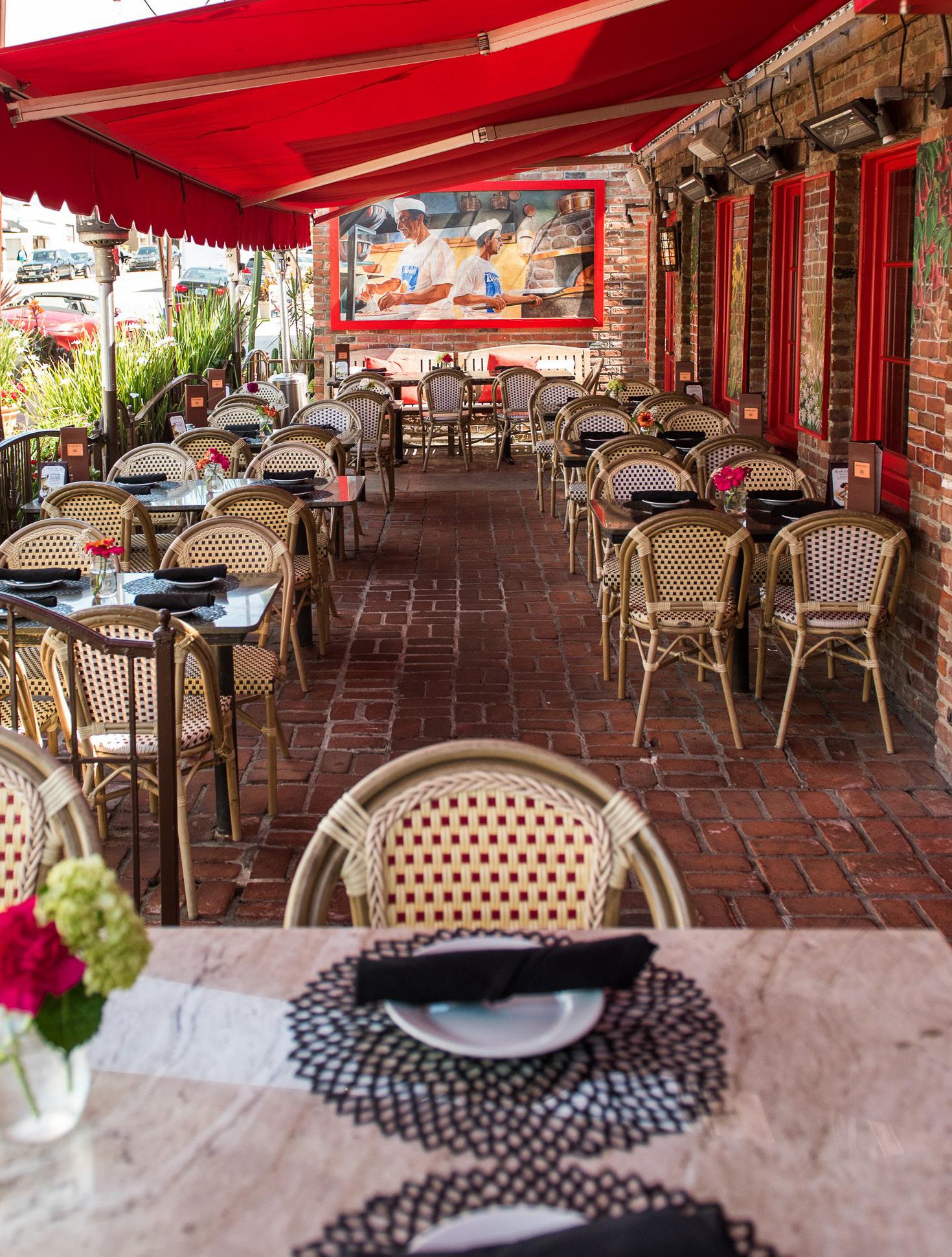

10 THE CONRAD | HOME OF LA JOLLA MUSIC SOCIETY · 2023-24 SEASON 7550 FAY AVENUE, LA JOLLA, CA 92037 | 858 454-5013 LUNCH | DINNER | HAPPY HOUR SATURDAY & SUNDAY BRUNCH Proud partner in support of The Conrad Prebys Performing Arts Center A one minute walk from THE CONRAD berninisbistro.com
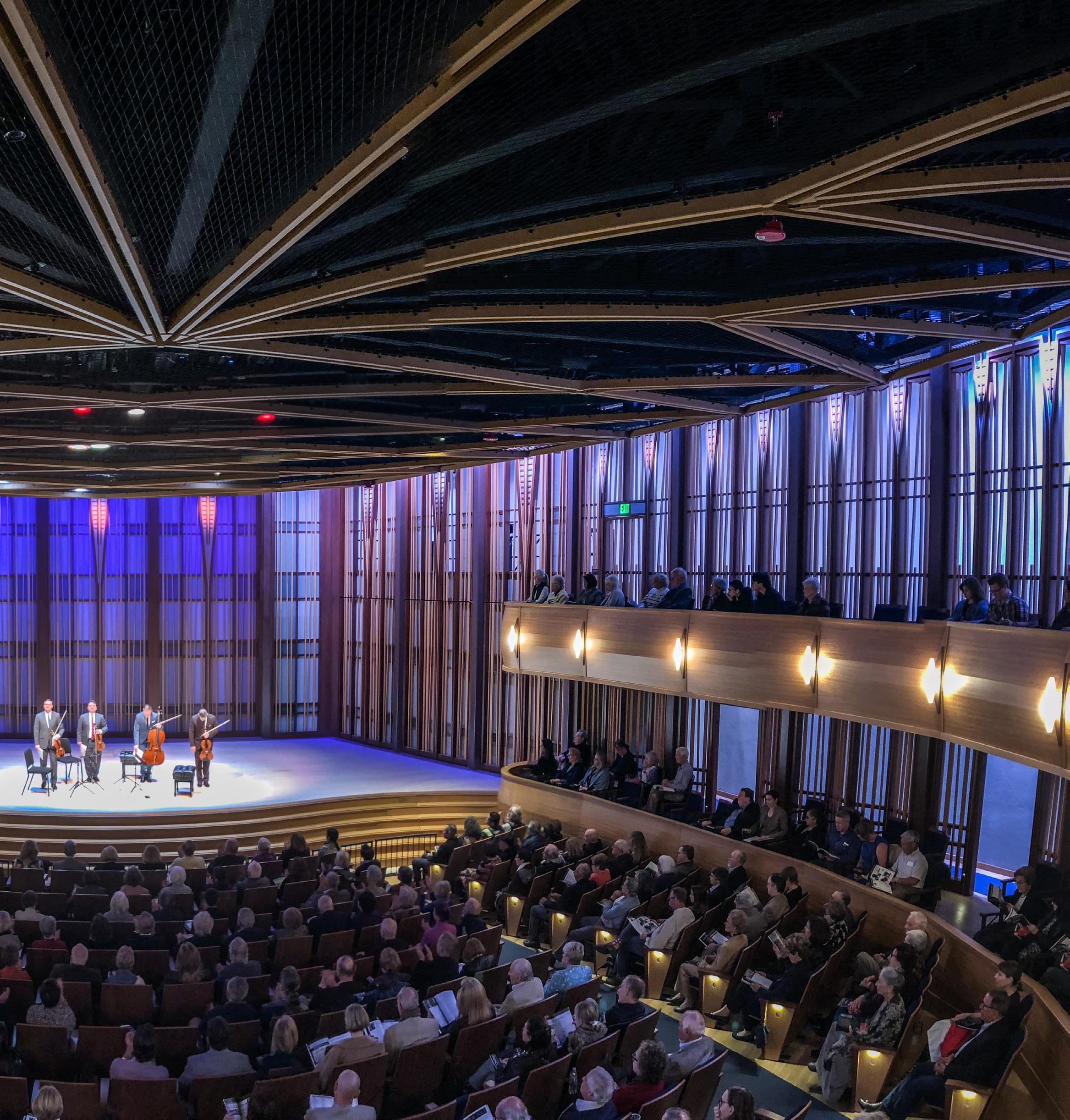
TheConrad.org · 858.459.3728 11
OF CONTENTS CALENDAR OF EVENTS 2 TRANSFORMATIVE SUPPORT 12 BOARD & STAFF OF LA JOLLA MUSIC SOCIETY 15 JAZZ PIANO MINI FESTIVAL 17 HERBIE HANCOCK 18 DAYRAMIR GONZÁLEZ 19 HIROMI’S SONICWONDER 20 HIROMI: THE PIANO QUINTET 21 Y EFIM BRONFMAN 22 JUNCTION TRIO 26 BALLETS JAZZ MONTRÉAL 29 PABLO FERRÁNDEZ & JULIO ELIZALDE 31 JIJI 34 TERRY VIRTS: HOW TO ASTRONAUT 35 BRUCE LIU 36 CHRIS THILE 40 ARTIST PROFILES 41 SUMMERFEST 2024 49 ASSISTED LISTENING 49 CONCERTS @ THE JAI 50 BALLETS JAZZ MONTRÉAL 51 THANK YOU FOR YOUR SUPPORT | DONOR LISTINGS 52
TABLE
TRANSFORMATIVE SUPPORT
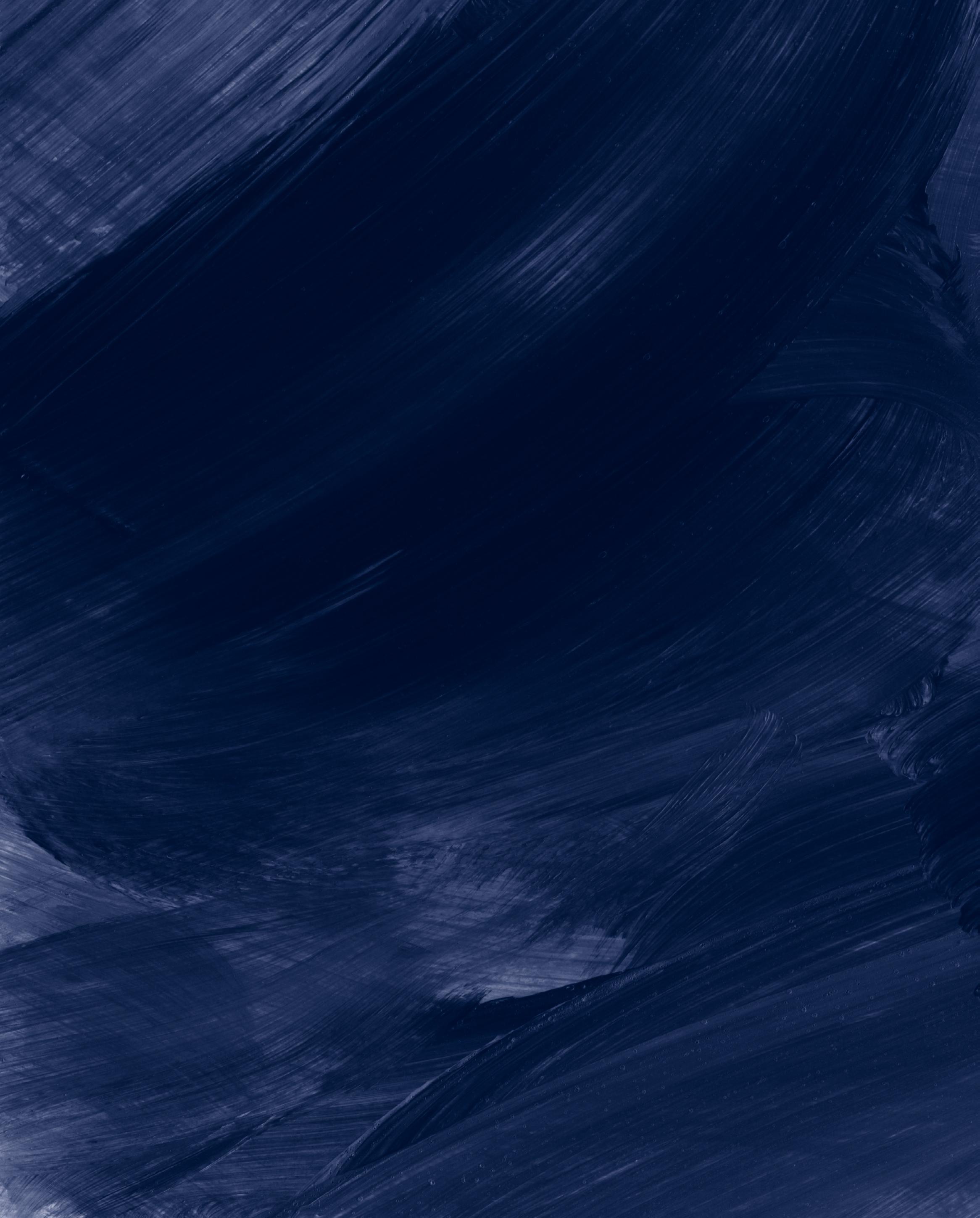
Our gratitude to these Medallion Society Pillars founding members who have made significant four-year commitments that will help us better serve all of the San Diego region. The Conrad can be a catalyst to bring thousands of adults and children together through a common appreciation of the performing arts, which enhance the artistic fabric of our community.
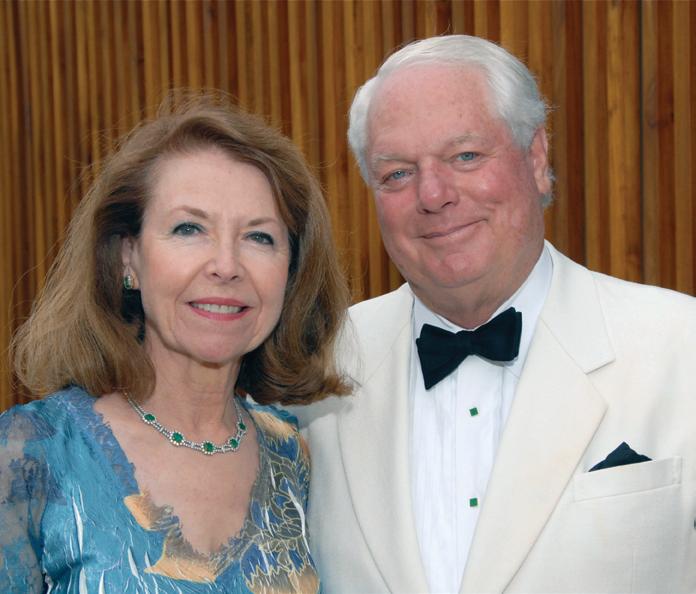
$1 MILLION and above
Brenda Baker and Steve Baum

$400,000 and above
Raffaella and John Belanich

$1 MILLION and above
Irwin and Joan Jacobs
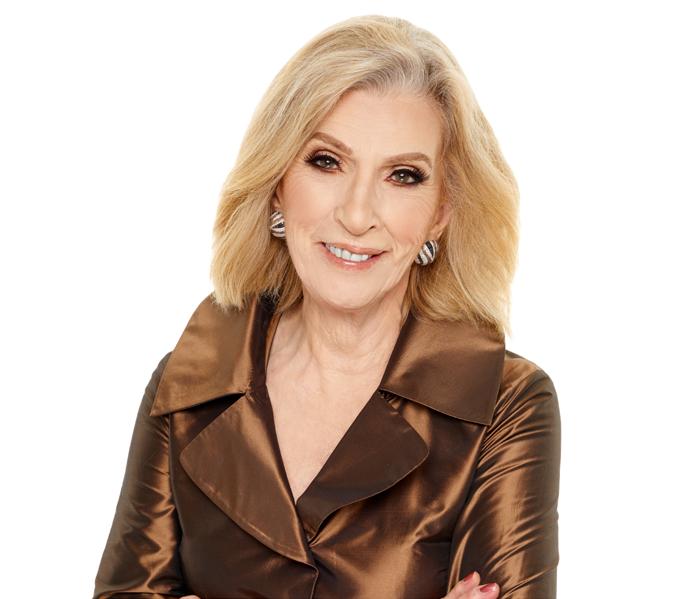
$500,000 and above
Dorothea Laub
$400,000 and above
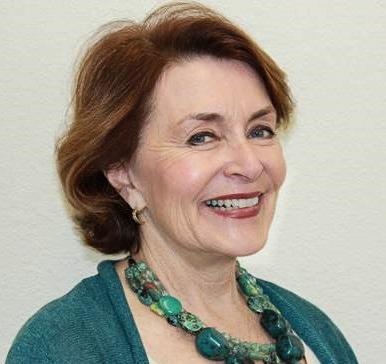
Mary Ellen Clark
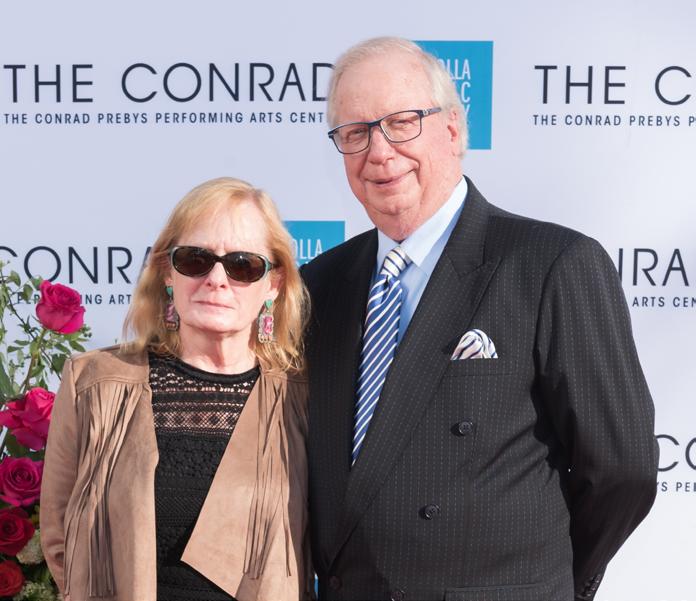
$200,000 and above
Julie and Bert Cornelison
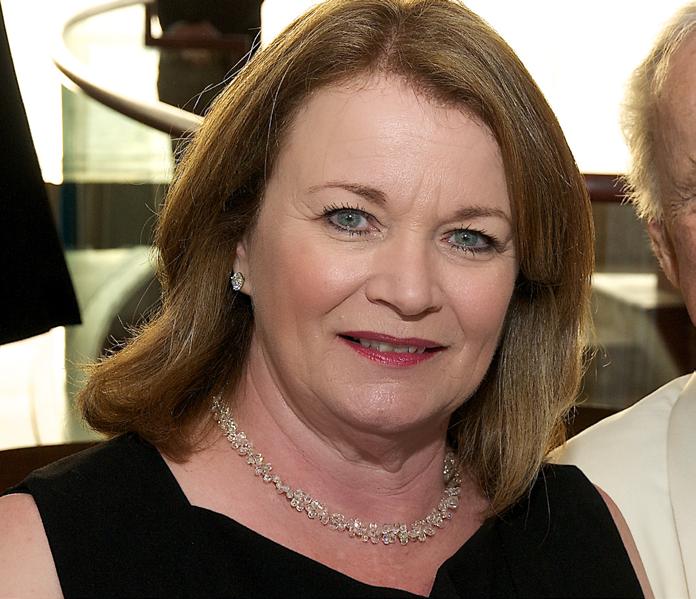
$400,000 and above
Debbie Turner
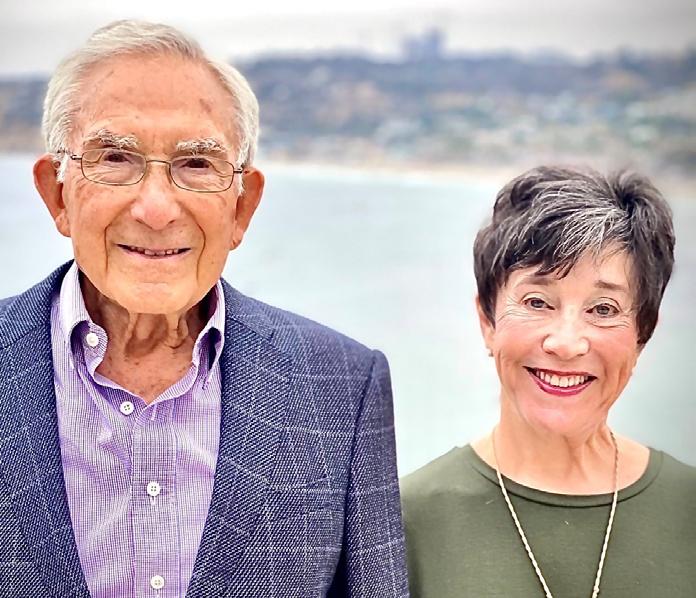
$200,000 and above
Herbert Solomon and Elaine Galinson
12 THE CONRAD | HOME OF LA JOLLA MUSIC SOCIETY · 2023-24 SEASON

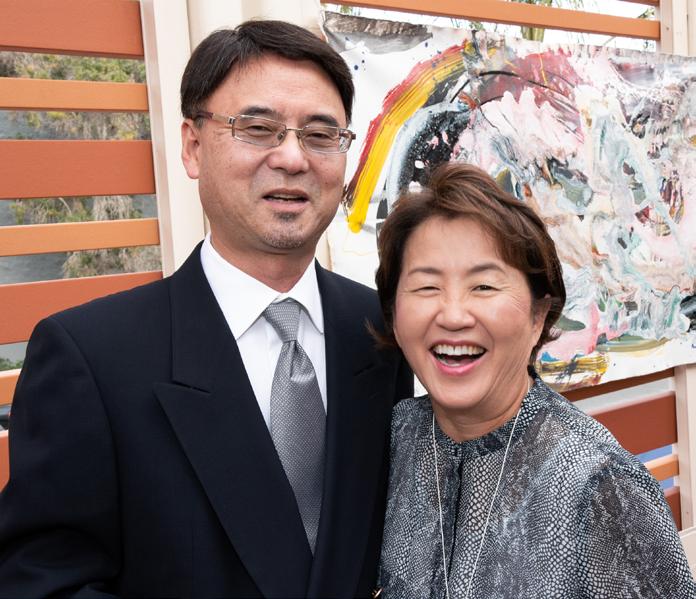
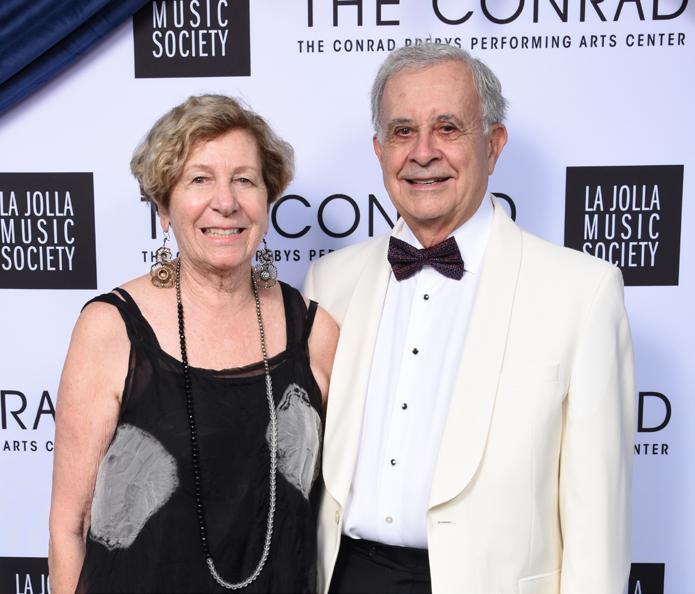
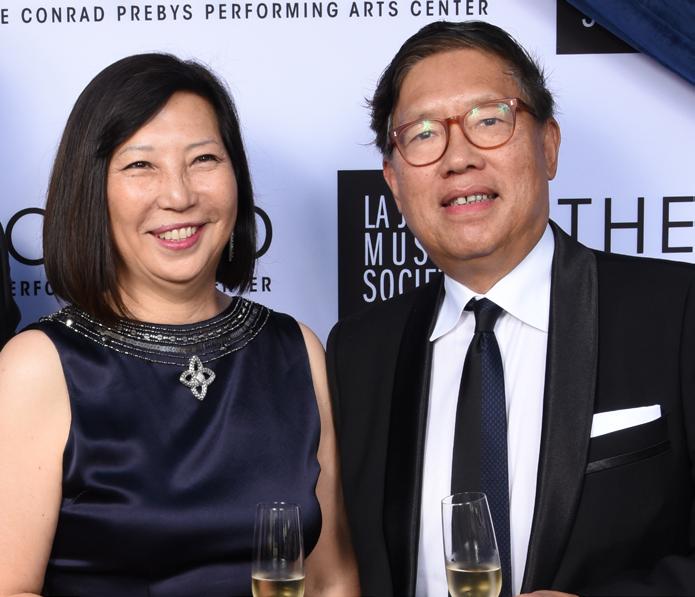

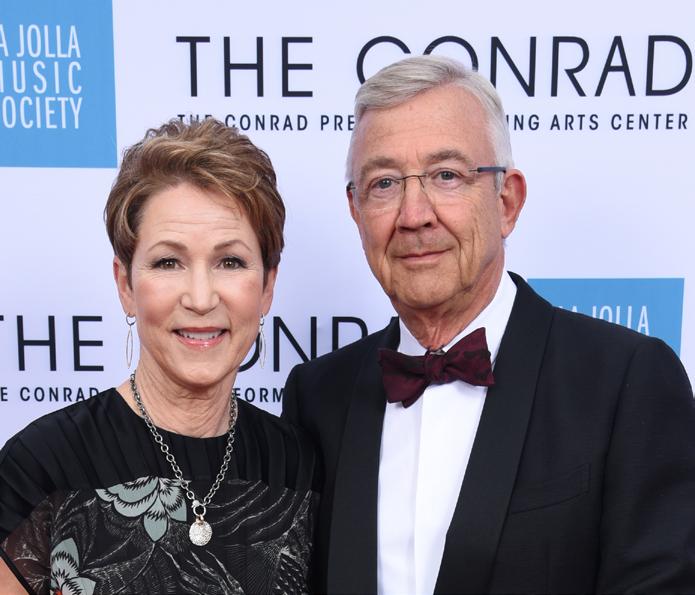
TheConrad.org · 858.459.3728 13 Keith and Helen Kim
and above Angel and Fred Kleinbub
and above Vivian Lim and Joseph Wong
and above Sue and Peter Wagener
and above Haeyoung Kong Tang
and above TRANSFORMATIVE SUPPORT For information about supporting La Jolla Music Society through membership in the Pillars program, please contact Ferdinand Gasang at 858.526.3426 or FGasang@TheConrad.org. Thank you to these Pillars in the community. Table of Contents
$200,000
$200,000
$200,000
$200,000
$200,000
THE CONRAD
Home of La Jolla Music Society
Winter Season
From classical, jazz, and dance to global music, exciting speakers, and family concerts, each season Artistic Director Leah Rosenthal brings the best artists in the world to the San Diego community. This season, our most thrilling to date, will feature more than 80 artists, including superstars like Renée Fleming, Herbie Hancock, Branford Marsalis, Kronos Quartet, Tiler Peck, Chris Thile, and Jean-Yves Thibaudet as well as many inspiring new faces like Isata Kanneh-Mason, Bruce Liu, Lakecia Benjamin, Hiromi, Seong-Jin Cho, and many more.
SummerFest
La Jolla Music Society’s acclaimed chamber music festival, SummerFest, curated by award-winning pianist and festival Music Director Inon Barnatan, engages more than 80 of the world’s finest musicians to perform at The Conrad throughout the month of August. In addition to remarkable mainstage performances, SummerFest offers over 50 free and opento-the-public educational activities. To learn more, visit TheConrad.org/SummerFest.
The Conrad
The Conrad Prebys Performing Arts Center opened in 2019 and serves as a gathering place for cultural, arts education, and community activity. As the permanent home of La Jolla Music Society, The Conrad hosts world-class performances presented by LJMS and other local arts organizations in its four outstanding performance and activity spaces, The Baker-Baum Concert Hall, The JAI, The Atkinson Room, and the picturesque Wu Tsai QRT.yrd.
Learning and Engagement
La Jolla Music Society’s award-winning Learning and Engamement Programming provides unmatched access and learning opportunities to more than 11,000 students and community members throughout San Diego County annually. With learning and engagement at the heart of our mission, we work closely with each visiting artist and ensemble to create outreach activities that highlight their unique talents and expertise at both The Conrad and in the community. With our state-of the-art video and streaming capabilities at The Conrad, we are able to provide live streaming for events such as our annual SummerFest and education events for free in our Digital Concert Hall.
Land Acknowledgment
The Conrad Prebys Performing Arts Center acknowledges the ancestral, unceded territory of the Kumeyaay people, on which The Conrad was built. We hold great respect for the land and the original people of the area where our performing arts center is located. The Kumeyaay continue to maintain their political sovereignty and cultural traditions as vital members of the San Diego community.

14 THE CONRAD | HOME OF LA JOLLA MUSIC SOCIETY · 2023-24 SEASON
Follow Us @ljmusicsociety La Jolla Music Society
BOARD OF DIRECTORS · 2023–24
H. Peter Wagener – Chair
Vivian Lim – Vice Chair
Bert Cornelison - Treasurer
Sharon Cohen - Secretary
Stephen L. Baum
Mary Ann Beyster
Marla Bingham
Eleanor Y. Charlton
Ric Charlton
Mary Ellen Clark
Ellise Coit
Ann Parode Dynes
Jennifer Eve
Debby Fishburn
Stephen Gamp
Lehn Alpert Goetz
John Hesselink
Susan Hoehn
Diana Lombrozo
Sue Major
Richard A. Norling
Arman Oruc
Tom Rasmussen
Sylvia Ré
Stacy Kellner Rosenberg
Sheryl Scarano
Marge Schmale
Jeanette Stevens
Stephanie Stone
Debra Turner
Lise Wilson
Bebe L. Zigman
HONORARY DIRECTORS
Brenda Baker
Stephen L. Baum
Raffaella Belanich
Joy Frieman, Ph.D.
Irwin M. Jacobs
Joan K. Jacobs
Lois Kohn (1924—2010)
Helene K. Kruger (1916—2019)
Conrad Prebys (1933—2016)
Peggy Preuss
Ellen Revelle (1910—2009)
Leigh P. Ryan, Esq.
Dolly Woo
LA JOLLA MUSIC SOCIETY STAFF
Todd R. Schultz – President & CEO
Leah Rosenthal – Artistic Director
Inon Barnatan – SummerFest Music Director
ADMINISTRATION
Karin Burns – Director of Finance
Brady Stender – Finance & Administration Manager
Breanne Self - Finance & Administrative Assistant
PROGRAMMING
Anne-Marie Dicce – Artistic Planning Manager
Grace Smith – Senior Artistic Operations Manager
Carly Cummings – Artistic Operations Coordinator
John Tessmer – Lead Artist Liaison
Jade Lewenhaupt – Artist Liaison
Maya Greenfield-Thong – Artist Liaison
Eric Bromberger – Program Annotator
LEARNING & ENGAGEMENT
Allison Boles – Director of Learning & Engagement
Carly D ’ Amato – Learning & Engagement Coordinator
Serafin Paredes – Community Music Center Director
Aimee Alvarado – Community Music Center Administrative Assistant
Community Music Center Instructors:
Juan Tomás Acosta, Marcus Cortez, Ian Lawrence,
Marko Paul, Eduardo Ruiz, Juan Sanchez, Rebeca Tamez
DEVELOPMENT
Ferdinand Gasang – Director of Development
Camille McPherson – Individual Giving & Grants Officer
Anne Delleman – Development Coordinator
Nicole Slavik – Special Events & Catering Director
Vivian Vu – Special Events Coordinator
MARKETING & TICKET SERVICES
Mary Cook – Director of Marketing
Stephanie Saad Thompson – Communications & Public Relations Director
David Silva – Marketing Manager
Cristal Salow – Data & Marketing Analysis Manager
Mariel Pillado – Graphic Designer
Marsi Bennion – Box Office & Guest Services Manager
Patrick Mayuyu – Box Office & Guest Services Assistant Manager
Kaitlin Barron – Box Office & Guest Services Lead Associate
Sam Gilbert – Box Office & Guest Services Associate
Mitch Cook – Box Office & Guest Services Associate
Shaun Davis – House Manager
OPERATIONS & PRODUCTION
Tom Jones – Director of Production & Technology
Jamie Coyne – Production Manager
Ryn Schroeder – Production Coordinator
Juliet Zimmer – Venue Sales Manager
Calvin Cadua – Event Manager
Thomas Thomas – Technical Director
Yoni Hirshfield – Technical Coordinator
Tom Mehan – Facilities Manager
Colin Dickson – Facilities Coordinator
Kim Chevallier – Security Supervisor
Jonnel Domilos – Piano Technician
TheConrad.org · 858.459.3728 15
The Conrad Home of La Jolla Music Society 7600 Fay Avenue, La Jolla, California 92037 Admin: 858.459.3724 Table of Contents
Welcome to La Jolla Music Society’s 55 th Winter Season
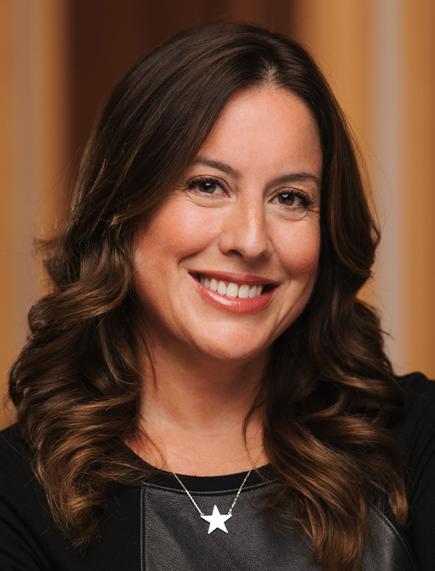
Dear friends,
With only a few months remaining of our 2023–24 Winter Season, I can’t help but reflect on the extraordinary artistic journey we’ve embarked on together. The range of artists, styles and genres that have graced our stages has been truly remarkable. From classical masterpieces to dynamic jazz combos and prima ballerinas, our winter season concerts have time and time again showcased the immense talent and dedication of the world’s most preeminent artists.
To finish out the season on a high note, we have programmed our first ever Jazz Piano Mini Festival, from April 17 through April 21. We are beyond excited to announce the stellar lineup featuring Herbie Hancock, a true icon of jazz; Hiromi, a visionary pianist and composer whose unique blend of jazz, classical, and rock influences will leave you spellbound; and rising star Dayramir González, who will captivate us with his infectious rhythms and soulful melodies showcasing his Cuban heritage. These three virtuosos will take us on an unforgettable musical journey through the realms of jazz, captivating us with their unparalleled artistry. The festival will also celebrate the wealth of San Diego talent through free activities including a panel discussion, a master class, and concerts featuring some of the finest jazz artists San Diego has to offer. Please see page 17 for the full schedule.
We will close out the season with an exceptional array of artists including a return of pianist Yefim Bronfman on April 26; the debut of rising star cellist Pablo Ferrández, performing works by Bruch, Beethoven, Rachmaninoff, and Franck on May 16; and piano phenom Bruce Liu also making his debut, on May 31. And we will present our final dance event of the season, the awe-inspiring talents of Ballets Jazz Montréal. They will perform their latest full-length show, Dance Me, set to songs by the iconic Leonard Cohen. This is a beautifully choreographed work that our audiences will be sure to enjoy.
Last but not least, we are proud to welcome the legendary jazz saxophonist, Charles McPherson, who will curate two jazz programs in The JAI. McPherson’s contributions to the jazz world are truly unparalleled; he is a San Diego legend and I’m so pleased to be able to call him part of the LJMS family. You won’t want to miss his acclaimed quintet, performing locally for the very first time, on June 9.
Please join us often for events and programs at The Conrad. We love having you here!
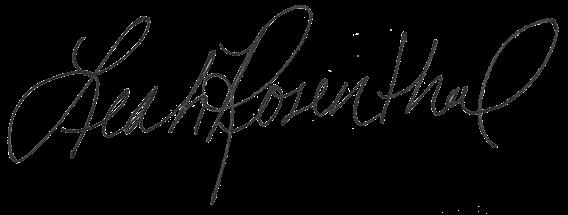
Artistic Director
La Jolla Music Society / The Conrad
Our Mission: The mission of La Jolla Music Society is to enhance cultural life and engagement by presenting and producing a wide range of programming of the highest artistic quality, and to make The Conrad Prebys Performing Arts Center a vibrant and inclusive hub.
16 THE CONRAD | HOME OF LA JOLLA MUSIC SOCIETY · 2023-24 SEASON
Mini
In honor of Jazz Appreciation Month
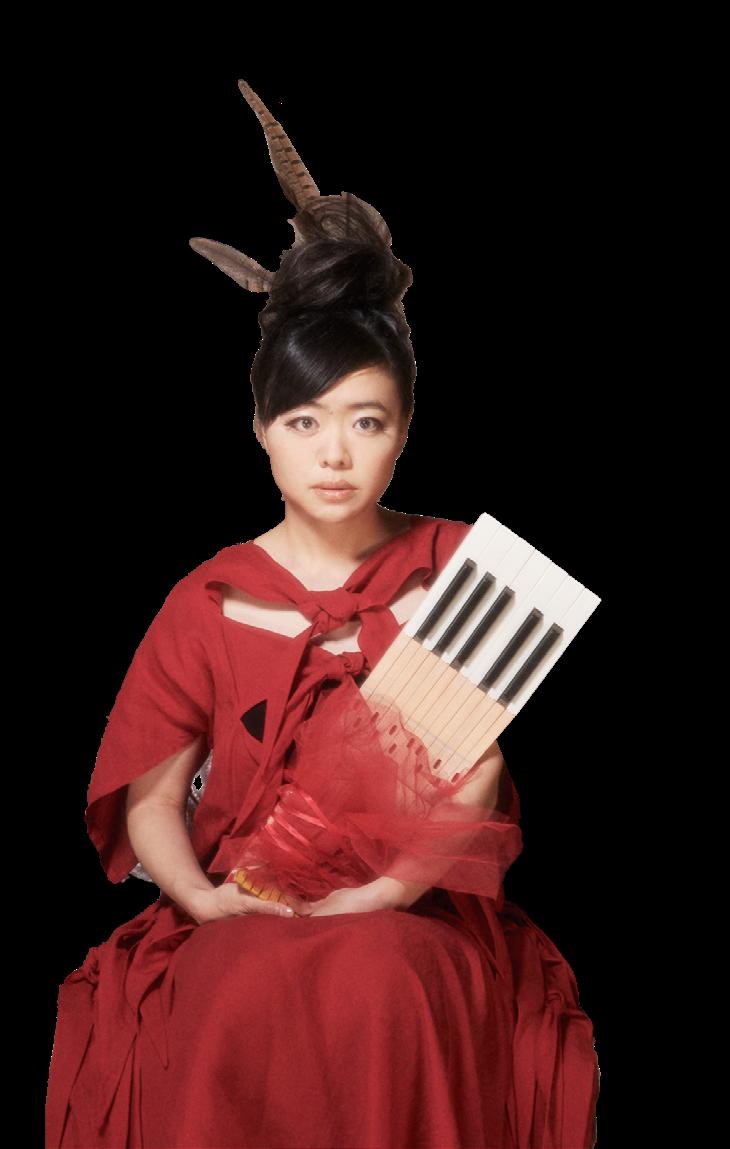
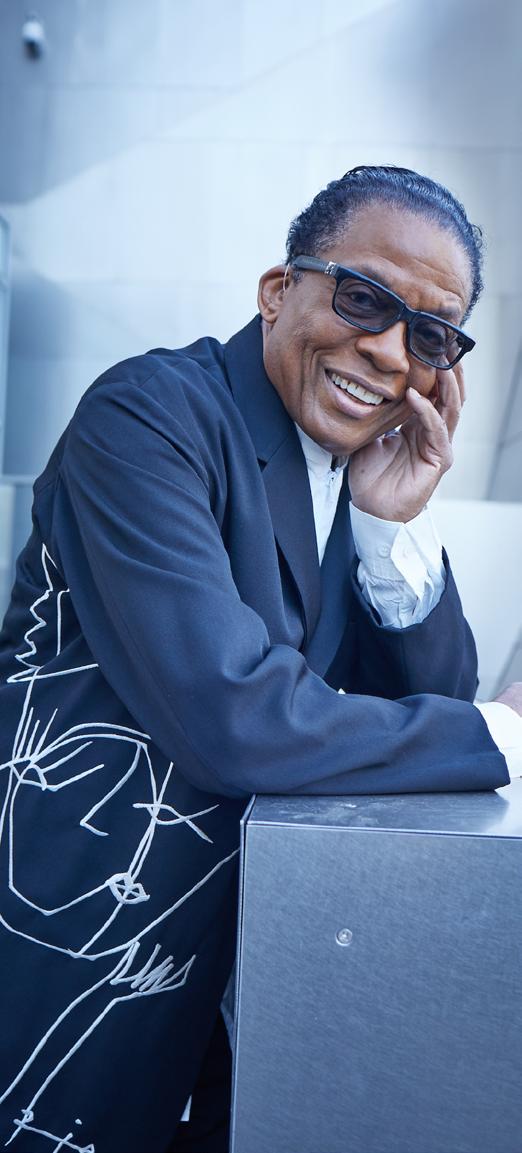


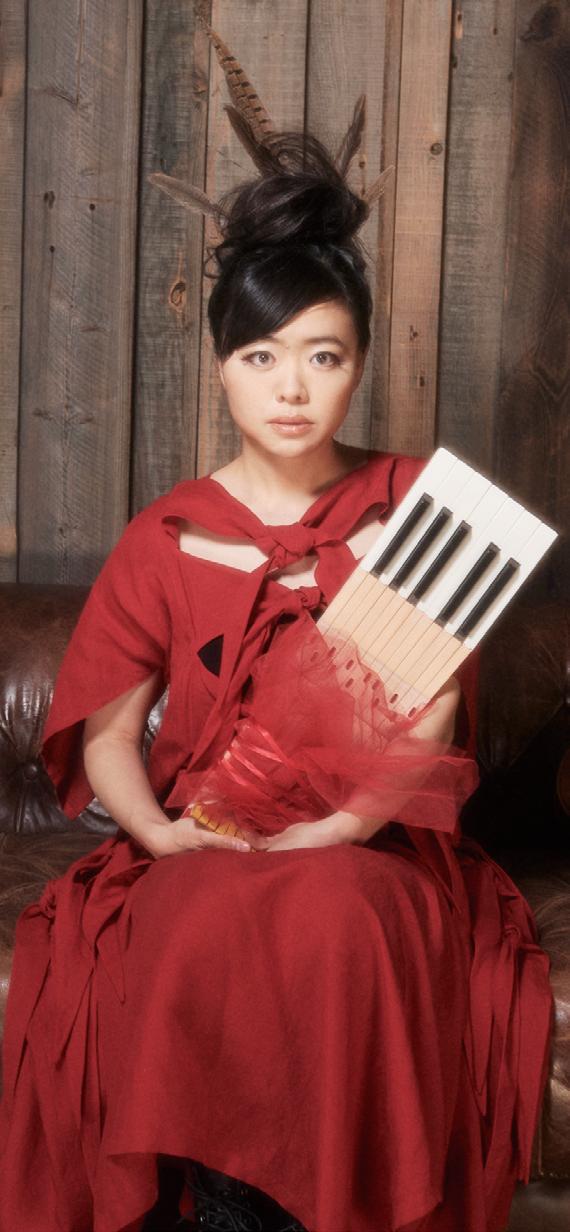



In April, the National Museum of American History and the Smithsonian celebrate Jazz History Month. To honor the legacy and history of this music, La Jolla Music Society has curated a weekend of performances by some of the most revered jazz pianists of our time as well as masterclasses, panel discussions and more.
The inaugural Jazz Piano Mini Festival centers around concerts by Herbie Hancock, April 18 at the Balboa Theatre; Dayramir González on April 19 in The JAI; Hiromi’s Sonicwonder, April 20 in The Baker-Baum Concert Hall; and Hiromi’s Piano Quintet featuring PUBLIQuartet on April 21 in The Baker-Baum Concert Hall. But in addition to these ticketed events, the following events will be held at The Conrad:
Panel Discussion: The State of Jazz
Featuring Melonie Grinnell, Kamau Kenyatta, and Charles McPherson
Wednesday, April 17 • 11 AM–12 PM
The JAI • Free
Wu Tsai QRT. yrd Concert
Featuring guitarist Christian Rodriguez and pianist Jacob Tyler Bader
Wednesday, April 17 • 12:30 PM–1:30 PM
Wu Tsai QRT.yrd • Free
San Diego Jazz Piano All Stars Concert
Featuring Melonie Grinnell, Mike Wofford, Kat Shoemaker, Bobby Cressey, Justin Grinnell and Julien Cantelm
Wednesday, April 17 • 7 PM–8:30 PM
The JAI • Tickets: $30
Wu Tsai QRT. yrd Concert
Featuring Ed Kornhauser
Friday, April 19 • 12:30 PM–1:30 PM
Wu Tsai QRT.yrd • Free
Master Class with Dayramir González
Saturday, April 20 • 11 AM–12:30 PM
The JAI • Free
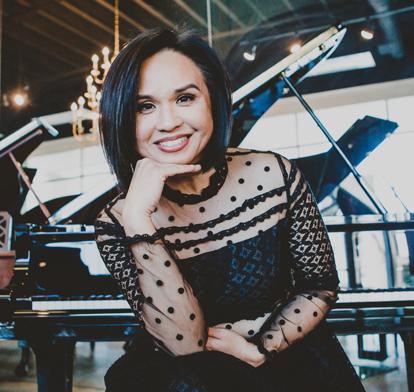
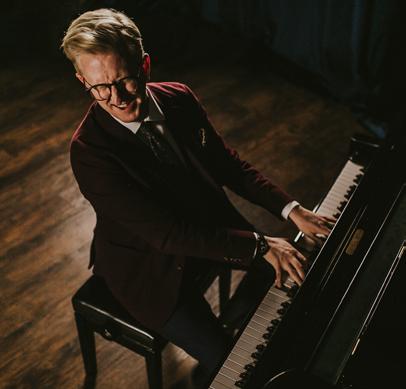
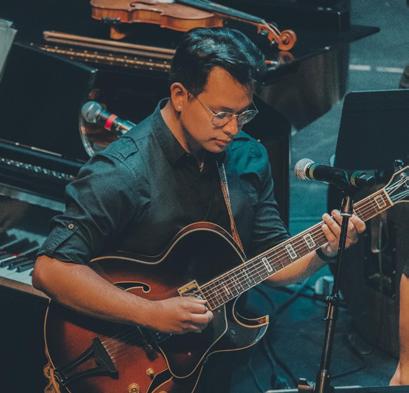

Reservations for free events and tickets for the All Stars Concert are at TheConrad.org. Join us for this joyful celebration of an original American art form!
TheConrad.org · 858.459.3728 17
Table of Contents
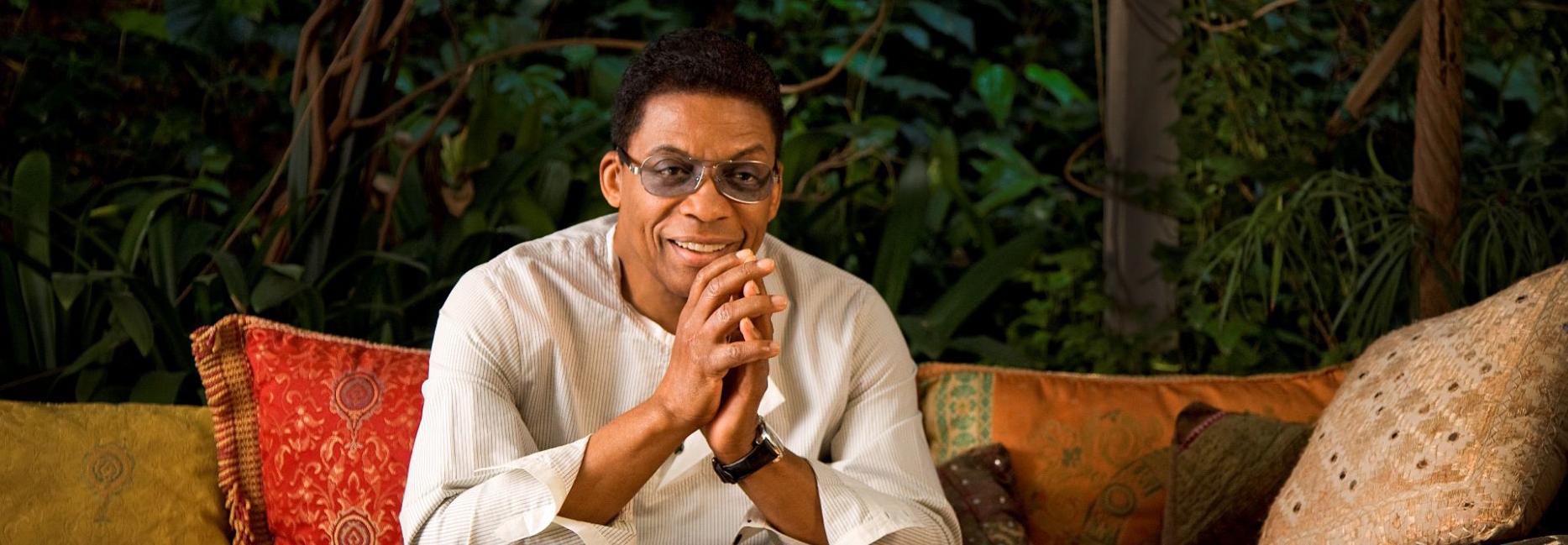
PRELUDE 6:30 PM
Prelude interview hosted by Robert John Hughes Jazz Piano Mini Festival
HERBIE HANCOCK
THURSDAY, APRIL 18, 2024 · 7:30 PM
BALBOA THEATRE
Herbie Hancock Sextet
Herbie Hancock, piano/keyboards
Devin Daniels, saxophone
Terence Blanchard, trumpet
James Genus, bass
Trevor Lawrence, Jr., drums
Chris Potter, saxophone PROGRAM
Works to be announced from stage.
NO INTERMISSION
La Jolla Music Society’s 2023–24 season is supported by The City of San Diego Commission for Arts and Culture, Banc of California, The Lodge at Torrey Pines, ProtoStar Foundation, Vail Memorial Fund, ResMed Foundation, Bright Events Rentals, Cafe Coyote, Rancho Coyote, Giuseppe's, Ace Parking, Brenda Baker and Steve Baum, Raffaella and John Belanich, Gordon Brodfuehrer, Mary Ellen Clark, Bert and Julie Cornelison, Elaine Galinson and Herbert Solomon, Joan and Irwin Jacobs, Angelina and Fred Kleinbub, Dorothea Laub, Vivian Lim and Joseph Wong, Jeanette Stevens, Debra Turner, Sue and Peter Wagener, and Bebe and Marvin Zigman.
ABOUT
Herbie Hancock is a true icon of modern music. Throughout his explorations, he has transcended limitations and genres while maintaining his unmistakable voice. With an illustrious career spanning five decades and 14 GRAMMY® Awards, including Album of the Year for River: The Joni Letters, he continues to amaze audiences across the globe. There are few artists in the music industry who have had more influence on acoustic and electronic jazz and R&B than Herbie Hancock. As the immortal Miles Davis said in his autobiography, “Herbie was the step after Bud Powell and Thelonious Monk, and I haven’t heard anybody yet who has come after him.”
Herbie Hancock last performed for La Jolla Music Society in the Jazz Series on March 7, 2018.
18 THE CONRAD | HOME OF LA JOLLA MUSIC SOCIETY · 2023-24 SEASON

Jazz Piano Mini Festival
DAYRAMIR GONZÁLEZ & HABANA enTRANCé
FRIDAY, APRIL 19, 2024 · 6 PM & 8:30 PM
The JAI
La Jolla Music Society’s 2023–24 season is supported by The City of San Diego Commission for Arts and Culture, Banc of California, The Lodge at Torrey Pines, ProtoStar Foundation, Vail Memorial Fund, ResMed Foundation, Bright Events Rentals, Cafe Coyote, Rancho Coyote, Giuseppe's, Ace Parking, Brenda Baker and Steve Baum, Raffaella and John Belanich, Gordon Brodfuehrer, Mary Ellen Clark, Bert and Julie Cornelison, Elaine Galinson and Herbert Solomon, Joan and Irwin Jacobs, Angelina and Fred Kleinbub, Dorothea Laub, Vivian Lim and Joseph Wong, Jeanette Stevens, Debra Turner, Sue and Peter Wagener, and Bebe and Marvin Zigman.
ABOUT
V.I.D.A.
Verdad, Independencia, Diversidad y Amor Truth, Independence, Diversity and Love
Dayramir González & Habana enTRANCé
Dayramir Gonzalez, piano
Ramses Rodriguez, drums
Christian Pepin, congas and batas
Santiago González, bass
PROGRAM
Works to be announced from stage.
NO INTERMISSION
Afro-Cuban pianist Dayramir González’ compositions present a balanced touch of danceable beats and sound design in his self-composed music. The genre of this work leans towards a World-Afro Cuban-Jazz sound, which is an extension that separates and projects V.I.D.A. from the more acoustic intention of his previous album The Grand Concourse.
The V.I.D.A. creations were stimulated and hatched from the Dayramir’s isolation and personal reflections during the period of the COVID pandemic. Thematic selfreflective melodies evolved into compositions, arrangements, and orchestrations to result in an album of personal triumph over the obstacles and hardships of life with an emphasis and re-focus on hope, joy, beauty, and personal expression. The intent is that the music expresses life in the elements of the title V.I.D.A.: Truth, Independence, Diversity and Love.
This concert marks Dayramir González' and Habana enTRANCé's La Jolla Music Society debuts.
TheConrad.org · 858.459.3728 19
Table of Contents

PRELUDE 6:30 PM
Prelude interview hosted by Robert John Hughes Jazz Piano Mini Festival
HIROMI’S SONICWONDER
SATURDAY, APRIL 20, 2024 · 7:30 PM
THE BAKER-BAUM CONCERT HALL
Hiromi’s Sonicwonder
Hiromi, piano
Adam O’Farrill, trumpet
Hadrien Feraud, bass
Gene Coye, drums PROGRAM
Works to be announced from stage.
NO INTERMISSION
La Jolla Music Society’s 2023–24 season is supported by The City of San Diego Commission for Arts and Culture, Banc of California, The Lodge at Torrey Pines, ProtoStar Foundation, Vail Memorial Fund, ResMed Foundation, Bright Events Rentals, Cafe Coyote, Rancho Coyote, Giuseppe's, Ace Parking, Brenda Baker and Steve Baum, Raffaella and John Belanich, Gordon Brodfuehrer, Mary Ellen Clark, Bert and Julie Cornelison, Elaine Galinson and Herbert Solomon, Joan and Irwin Jacobs, Angelina and Fred Kleinbub, Dorothea Laub, Vivian Lim and Joseph Wong, Jeanette Stevens, Debra Turner, Sue and Peter Wagener, and Bebe and Marvin Zigman.
ABOUT
Ever since the 2003 release of her groundbreaking debut, Another Mind, pianist Hiromi has astonished audiences with a creative energy that eclipses the boundaries of jazz, classical, and pop, taking improvisation and composition to new heights of complexity and sophistication. Taking the stage as part of the electrified four-piece ensemble Sonicwonder, Hiromi builds on the spark of collaboration to create something magnificent.
This presentation marks Hiromi’s and Sonicwonder’s La Jolla Music Society debuts.
20 THE CONRAD | HOME OF LA JOLLA MUSIC SOCIETY · 2023-24 SEASON
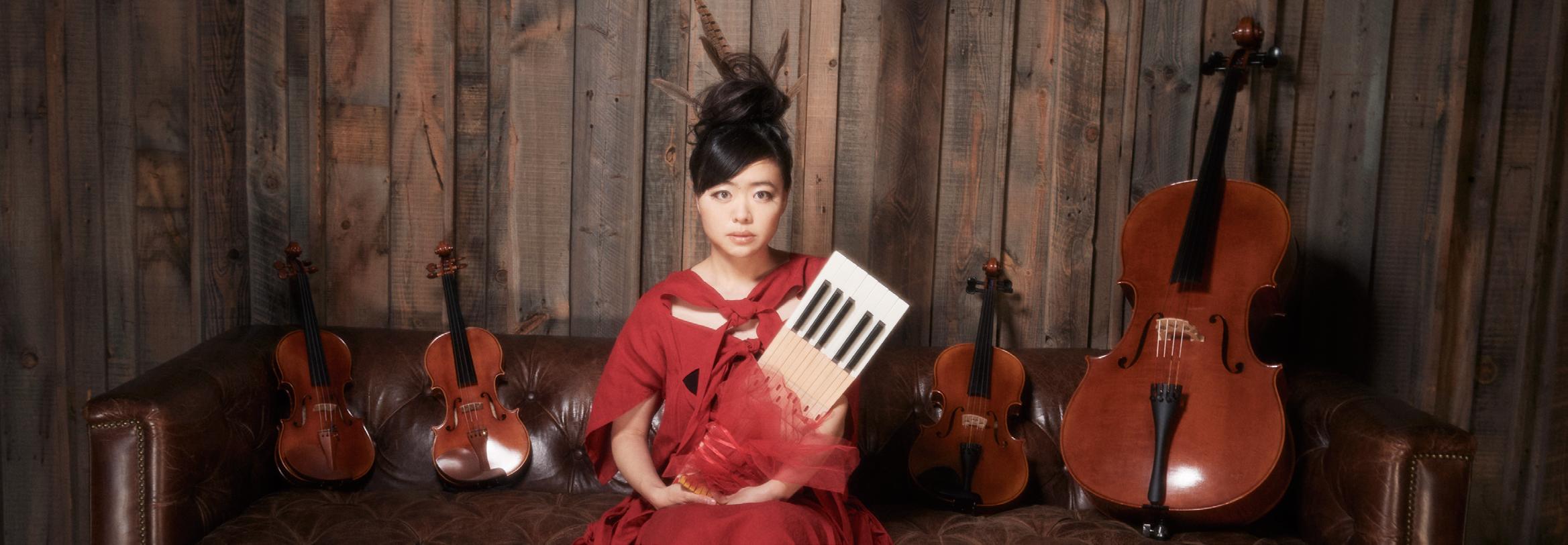
Support for this program provided by the: Protostar Foundation
La Jolla Music Society’s 2023–24 season is supported by The City of San Diego Commission for Arts and Culture, Banc of California, The Lodge at Torrey Pines, ProtoStar Foundation, Vail Memorial Fund, ResMed Foundation, Bright Events Rentals, Cafe Coyote, Rancho Coyote, Giuseppe's, Ace Parking, Brenda Baker and Steve Baum, Raffaella and John Belanich, Gordon Brodfuehrer, Mary Ellen Clark, Bert and Julie Cornelison, Elaine Galinson and Herbert Solomon, Joan and Irwin Jacobs, Angelina and Fred Kleinbub, Dorothea Laub, Vivian Lim and Joseph Wong, Jeanette Stevens, Debra Turner, Sue and Peter Wagener, and Bebe and Marvin Zigman.
Jazz Piano Mini Festival
HIROMI: THE PIANO QUINTET featuring PUBLIQuartet
SUNDAY, APRIL 21, 2024 · 3 PM
THE BAKER-BAUM CONCERT HALL
Hiromi, piano PUBLIQuartet
Curtis Stewart, Chern Hwei Fung, violins; Nick Revel, viola; Hamilton Berry, cello
PROGRAM
Works to be announced from stage.
NO INTERMISSION
ABOUT
A new project pairing Hiromi’s incomparable piano mastery with string quartet featuring PUBLIQuartet. In the two decades since Hiromi released her stunning debut album Another Mind, the Japanese pianist/composer has blazed an incandescent trail across the jazz scene. Her fertile imagination and boundless creativity seem to ripple out of her as effortlessly as her virtuosic pianism. Equally impressive in acoustic or electric settings, she delves into a different kind of fusion on her latest project that encompasses and eclipses the boundaries of jazz, classical, and pop, taking improvisation and composition to new heights of complexity and sophistication.
Hiromi last performed for La Jolla Music Society in the Jazz Series on April 20, 2024. This performance marks PUBLIQuartet’s La Jolla Music Society debut.
TheConrad.org · 858.459.3728 21
Table of Contents

PRELUDE 6:30 PM
Lecture by Kristi Brown Montesano The JAI
Support for this program provided by: Barbara Enberg
YEFIM BRONFMAN, piano
FRIDAY, APRIL 26, 2024 · 7:30 PM
THE BAKER-BAUM CONCERT HALL
BEETHOVEN
Piano Sonata in D Major, Opus 10, No. 3 (1770–1827)
Presto
Largo e mesto
Minuet. Allegro
Rondo. Allegro
SCHUBERT
Piano Sonata in A Minor, D.784, Opus 143 (1797-1828)
Allegro giusto
Andante
Allegro vivace
INTERMISSION
SCHUMANN
Arabeske in C Major, Opus 18 (1810–1856)
La Jolla Music Society’s 2023–24 season is supported by The City of San Diego Commission for Arts and Culture, Banc of California, The Lodge at Torrey Pines, ProtoStar Foundation, Vail Memorial Fund, ResMed Foundation, Bright Events Rentals, Cafe Coyote, Rancho Coyote, Giuseppe's, Ace Parking, Brenda Baker and Steve Baum, Raffaella and John Belanich, Gordon Brodfuehrer, Mary Ellen Clark, Bert and Julie Cornelison, Elaine Galinson and Herbert Solomon, Joan and Irwin Jacobs, Angelina and Fred Kleinbub, Dorothea Laub, Vivian Lim and Joseph Wong, Jeanette Stevens, Debra Turner, Sue and Peter Wagener, and Bebe and Marvin Zigman.
ESA-PEKKA SALONEN Sisar (b. 1958)
SCHUMANN
Faschingsschwank aus Wien, Opus 26
Allegro
Romanze
Scherzino
Intermezzo
Finale
Yefim Bronfman, piano Opus 3 Artists
Yefim Bronfman last performed for La Jolla Music Society in the Piano Series on May 11, 2021.
22 THE CONRAD | HOME OF LA JOLLA MUSIC SOCIETY · 2023-24 SEASON
Program notes by Eric Bromberger
Piano Sonata in D Major, Opus 10, No. 3
LUDWIG VAN BEETHOVEN
Born December 16, 1770, Bonn
Died March 26, 1827, Vienna
Composed: 1798
Approximate Duration: 24 minutes
Beethoven composed the set of three piano sonatas that make up his Opus 10 in 1797–98, and they were published in Vienna in 1798. The set is dedicated to Countess von Browne, wife of Johann Georg von Browne, one of the composer’s early patrons in his adopted city. Beethoven had established his reputation in Vienna as a pianist, and while he was now trying to widen his compositional scope (he was working on his first set of string quartets at this same time), he was still writing primarily for piano: his first ten opus numbers include seven piano sonatas, and during this period he actually wrote several more that would be published later.
The Sonata in D Major—in four movements rather than the expected three—is universally regarded as the finest of Beethoven’s early sonatas. Not only is it music of enormous energy, but its lengthy slow movement shows signs of a new emotional depth. All by itself, the marking for the first movement—Presto—is remarkable, and the very beginning makes clear the sweep of this music: the first theme, in octaves, strides boldly upward across two octaves. The second subject arrives immediately in the unexpected key of B minor, and the development treats both these ideas before the movement drives to a powerful close on a flow of seemingly nonstop energy.
The real distinction—the real glory—of this sonata lies in its slow movement. Again, Beethoven’s marking is unusual: Largo e mesto (“slow and sad”). Beethoven seldom used the marking Largo and almost never marked a movement mesto, and this is music of a dark intensity, surprising from so young a composer. The movement, in D minor, moves slowly over the steady tread of its 6/8 meter. The middle section introduces new material, but the solemn pulse of the beginning continues, even in the movement’s murmuring closing moments. The ending feels numb, seeming to collapse on halting, uncertain chords. The clearest indication of this movement’s importance comes in its length: this slow movement takes up nearly half the length of the sonata.
Beethoven marks the third movement Menuetto, and it feels almost innocent after the Largo. The syncopated opening idea tumbles along happily, while the trio pushes forward on flying triplets. The concluding Allegro is a rondo based on a remarkable opening idea. This theme feels earthbound at first: it reaches upward in short phrases, then suddenly takes wing. That impression of energy pent up and striving to break free will characterize the entire finale, which cascades to its close with a suddenness that both surprises and pleases.
Piano Sonata in A Minor, D.784, Opus 143 FRANZ SCHUBERT
Born January 31, 1797, Vienna, Austria
Died November 19, 1828, Vienna, Austria
Composed: 1823
Approximate Duration: 23 minutes
Schubert composed this Sonata in A Minor in February 1823, just days after his twenty-sixth birthday. This was a difficult time for the composer. He had become ill the previous fall, and the illness grew so severe that Schubert had to be hospitalized in May 1823; he recovered his strength but would never be fully well again during the final five years of his brief life. Many have heard a new maturity in the music Schubert composed after his recovery, a greater depth of technique and expression, but there were signs of that growth even before the onset of the illness: the “Unfinished” Symphony dates from the previous fall.
The Sonata in A Minor has been hailed for looking forward to the refinement of Schubert’s later compositions. Maurice J. E. Brown calls it “the first of his mature sonatas, restrained and economical . . . and breaking completely with the graceful, ornamental style of his earlier sonatas.” The brief sonata is in three movements. The Allegro giusto opens quietly, almost epigrammatically, with the simple opening theme in octaves. After this elusive (and sometimes violent) beginning, the second subject—a beautiful chordal melody in E major—seems to take us into a different world. The massive development, which depends heavily on dotted rhythms, is based primarily on the movement’s opening theme, though Schubert brings back the chordal second subject, now elongated with triplet rhythms. This movement—which is longer than the final two movements combined—concludes quietly.
The Andante is a slow rondo that alternates its climbing main theme with a turning figure that Schubert marks both pianissimo and sordini: “muted.” After the storms of the first movement, there is something appealingly calm about the main subject here—the whole movement breathes a sense of peace. The energetic finale, marked Allegro vivace, races along on the triplet rhythms of its main theme. This movement is in a sort of rondo form, and Schubert breaks into the powerful rush of triplets with a wistful waltz that dances delicately on its three appearances. The triplet rhythms return to drive the sonata to a massive, almost brutal close.
Schubert submitted the Sonata in A Minor to the Viennese publisher Anton Diabelli, who had just brought out Beethoven’s epic Diabelli Variations. But Diabelli rejected it, and the sonata was not published until 1839, eleven years after Schubert’s death.
TheConrad.org · 858.459.3728 23 YEFIM BRONFMAN - PROGRAM NOTES
Table of Contents
Arabeske in C Major, Opus 18
ROBERT SCHUMANN
Born June 8, 1810, Zwickau, Germany
Died July 29, 1856, Endenich, Germany
Composed: 1838
Approximate Duration: 8 minutes
Schumann moved to Vienna in the fall of 1838, thinking that he and Clara Wieck might establish their home in that fabled city after their marriage. The visit was not a success. Unlike so many other composers, Schumann did not like Vienna—he found it a closed society, so conservative in its attitudes that he could not think of publishing his progressive musical journal Neue Zeitschrift für Musik there. He remained only until the end of March 1839, when the death of his brother called him back to Leipzig.
The visit was not a total loss, however. While in Vienna, Schumann visited Schubert’s brother and in a stack of old music discovered the manuscript to the “Great” Symphony in C Major; this he sent to Mendelssohn, who performed it even before Schumann left Vienna. And while there, Schumann composed some pieces for piano. To his publisher he wrote: “I am composing very intensely at the moment and hoping to elevate myself to the rank of favorite composer of all women in Vienna.” His intending this music for women pianists was not meant as disparagement (Clara Wieck was one of the finest pianists on the planet) but as a statement about the music’s marketability: He was well aware of the growing number of young amateur women pianists, the daughters of the growing middle class. Like Schubert before him, he was ready to write for this new market, and the Arabeske—composed in December 1838—was intended (at least in part) for it.
Yet this lovely music should not be written off as a relatively easy piece intended for domestic consumption. Schumann’s use of the title Arabeske may seem open to question. An arabeske is not a specific musical form but rather a composition full of florid atmosphere and decoration (as in Debussy’s two Arabesques). Schumann’s Arabeske is in a classical form: it is a rondo based on a flowing—almost impulsive—main subject, heard immediately. Along the way, Schumann offers two contrasting episodes, both full of dark and expressive shading, then rounds things off with a slow coda derived from the rondo tune. Whatever its original purpose, Schumann’s Arabeske continues to bring pleasure to audiences and performers—female and male—long after it was written.
Sisar
ESA-PEKKA SALONEN
Born June 30, 1958, Helsinki
Composed: 2012
Approximate Duration: 6 minutes
Esa-Pekka Salonen’s Sisar was commissioned by the Los Angeles Philharmonic Association, with generous
support from the Rauch Family Foundation. Yefim Bronfman gave the first performance on January 30, 2013, at the Walt Disney Concert Hall. The composer has provided a program note:
Sisar is the fifth and last piece in a series of short preludes for piano which I began almost ten years ago. Most of the pieces share material with larger projects from the same time; sometimes as testing ground for new ideas, sometimes as an afterthought, alternative reality.
Sisar belongs to the latter category. Its title has (at least) a double meaning: in Finnish “sisar” means sister, in Spanish to steal or filch. Both make sense: Sisar is the little sister of my orchestra piece Nyx (a mysterious and obscure goddess figure in Greek mythology), and it steals some of its material from the bigger relative.
The character of Sisar is capricious and dream-like with sudden bursts of kinetic energy interlaced with more static, calmer music. Sometimes characters and gestures mutate gradually into something new, sometimes a new identity is introduced suddenly, like a montage or an edit in a film. I have long been interested in juxtaposing the musical metaphors of organisms and mechanisms in my music. The six-minute Sisar plays with these ideas in a very concentrated form.
Sisar is dedicated to Yefim Bronfman.
— Esa-Pekka Salonen
Faschingsschwank aus Wien, Opus 26 ROBERT SCHUMANN
Born June 8, 1810, Zwickau, Germany
Died July 29, 1856, Endenich, Germany
Composed: 1839
Approximate Duration: 22 minutes
In the spring of 1839 Schumann set to work on a largescale work for piano in several movements, but he was unsure exactly what form he wished the music to take. To Clara, he described the piece as a “big romantic sonata,” but those plans came to nothing and he set the manuscript aside. Back in Leipzig, he returned to the manuscript in January 1840 and finished it.
But the completed work was not a sonata, and Schumann gave it a strange (and tongue-twisting) name: Faschingsschwank aus Wien, which has been translated as either “Carnival Jest in Vienna” or “Viennese Carnival Pranks.” In 1834, Schumann had composed his Carnaval, a series of twenty-one brief pieces that offer portraits of various characters all swirling past in a carnival setting. Carnaval quickly became Schumann’s first real success as a composer, and in Faschingsschwank aus Wien he adopted the same general plan: this music is in only five movements and none has the name of a character, but each projects its own mood. These moods are abstract—Schumann gives the five pieces only general music titles—and they form a suite of contrasting movements. The “jest” of Schumann’s title
24 THE CONRAD | HOME OF LA JOLLA MUSIC SOCIETY · 2023-24 SEASON YEFIM BRONFMAN - PROGRAM NOTES
appears to be his quotation of the Marseillaise in the first movement. In the politically conservative Vienna of this era, Metternich had strictly forbidden performances of the French anthem that symbolized political chaos to those in power. Perhaps to tweak a city he found diffident, Schumann sneaks in a brief whiff of the Marseillaise, re-barred to camouflage it slightly.
The opening Allegro, by far the longest movement, contrasts three quite different themes in music that is by turns lyric and brilliant. The Romance presents a tender melody over minimal accompaniment, while the characteristic dotted rhythm of the Scherzino recurs virtually throughout. It is a mark of Schumann’s indecision about the final form of what eventually became Faschingsschwank that he published the Intermezzo separately in December 1839; when he returned to the larger work he then incorporated the Intermezzo as its fourth movement. This is striking music: over rippling left-hand accompaniment, the right hand lays out the declarative main theme. The concluding Finale is the most overtly virtuosic movement: great hammered chords and brilliant passagework finally drive Faschingsschwank aus Wien to its grand close.
TheConrad.org · 858.459.3728 25 YEFIM BRONFMAN - PROGRAM NOTES
Table of Contents
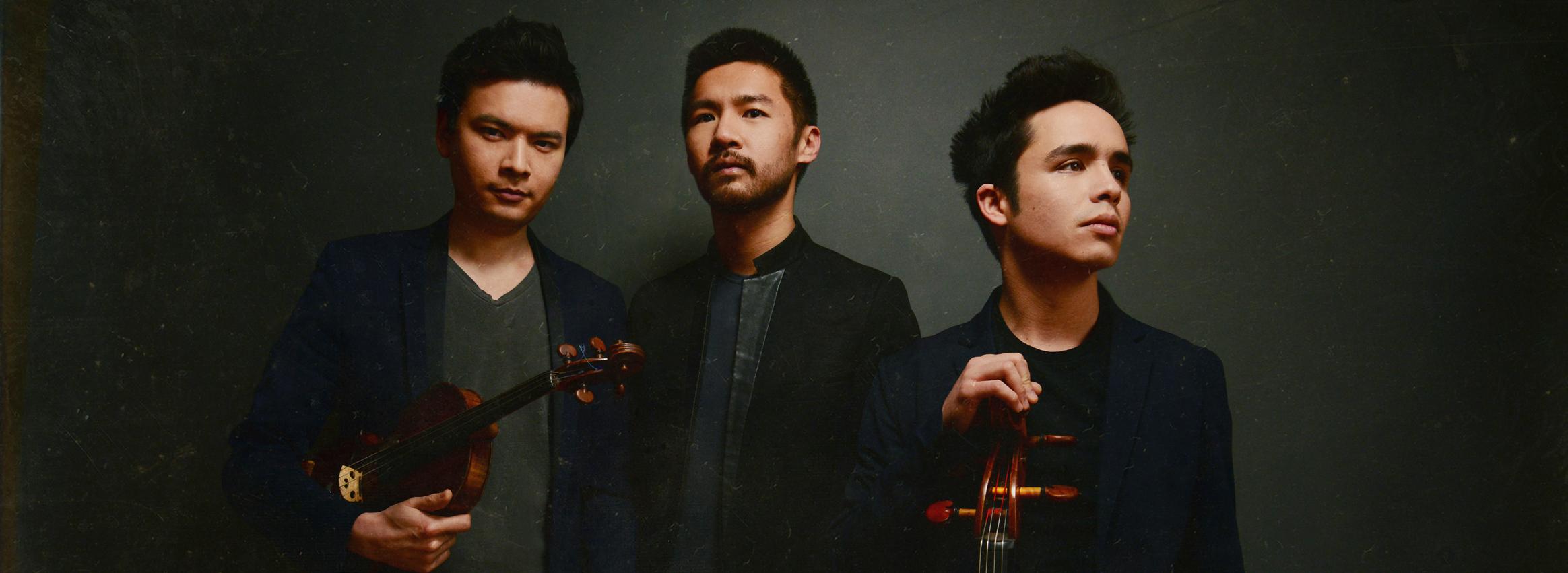
PRELUDE 2 PM
Lecture by Michael Gerdes
The JAI
JUNCTION TRIO
SUNDAY, MAY 5, 2024 · 3 PM
THE BAKER-BAUM CONCERT HALL
JOHN ZORN Philosophical Investigations (b. 1953)
IVES Trio for Violin, Cello, and Piano (1874–1954) Moderato
TSIAJ (“This scherzo is a joke”). Presto Moderato con moto
INTERMISSION
BEETHOVEN Piano Trio in B-flat Major, Opus 97 “Archduke” (1770–1827)
Allegro moderato
Scherzo. Allegro
La Jolla Music Society’s 2023–24 season is supported by The City of San Diego Commission for Arts and Culture, Banc of California, The Lodge at Torrey Pines, ProtoStar Foundation, Vail Memorial Fund, ResMed Foundation, Bright Events Rentals, Cafe Coyote, Rancho Coyote, Giuseppe's, Ace Parking, Brenda Baker and Steve Baum, Raffaella and John Belanich, Gordon Brodfuehrer, Mary Ellen Clark, Bert and Julie Cornelison, Elaine Galinson and Herbert Solomon, Joan and Irwin Jacobs, Angelina and Fred Kleinbub, Dorothea Laub, Vivian Lim and Joseph Wong, Jeanette Stevens, Debra Turner, Sue and Peter Wagener, and Bebe and Marvin Zigman.
Exclusive representation: Kirschbaum Associates Inc. 307 Seventh Ave. Suite 506 New York NY 10001 www.kirschbaumassociates.com
Andante cantabile ma però con moto
Allegro moderato
Junction Trio
Conrad Tao, piano; Stefan Jackiw, violin; Jay Campbell, cello
This presentation marks the Junction Trio’s La Jolla Music Society debut.
26 THE CONRAD | HOME OF LA JOLLA MUSIC SOCIETY · 2023-24 SEASON
Program notes by Eric Bromberger
Philosophical Investigations
JOHN ZORN
Born September 2, 1953, Queens, New York
Composed: 2022
Approximate Duration: 10 minutes
Members of the Junction Trio will introduce this work from the stage.
Trio for Violin, Cello, and Piano CHARLES IVES
Born October 20, 1874, Danbury, Connecticut
Died May 19, 1954, New York City
Composed: 1911
Approximate Duration: 24 minutes
Ives began work on his only piano trio in 1904 and finished the first draft early the next year. Not satisfied, Ives thoroughly revised the score—as he so often did— and did not complete the final version until 1911; the score, though, waited for publication until 1955, the year after the composer’s death. Many of Ives’ musical fingerprints—complex rhythms, polytonality, quotations of folk material—are evident here, and they are handled with an authority that makes this concise music—by turns hard, sentimental, funny, moving, and original—one of Ives’ most successful works.
The first movement, Andante moderato, is an example of an Ives technique that has been referred to as “layering.” The music opens with a duet for cello and piano, but this is a very original duet: the piano part, played only by the pianist’s right hand, is accompanied by the cello’s bass line. To make this clear to the performers, Ives writes the cello part beneath the piano part in the score; obviously, no listener can hear this, but the layout on the page makes clear the musical priorities. Then the cello drops out, and there follows a duet for violin and piano, but now the pianist accompanies the violinist only with his left hand. Finally, Ives combines all of this and presents it simultaneously: the cellist and violinist repeat their lines together, while the pianist finally can play both hands simultaneously. Rhythmically, this movement is complex and sometimes tinged with stinging dissonances, but it is also bracing and engaging, and it comes to a quick close (typically, Ives includes no dynamic or phrase markings, leaving that entirely to the performers).
The second movement has a strange title—“TSIAJ”— but a footnote in the score explains that this stands for “This scherzo is a joke” (a further play on words, since scherzo is Italian for “joke”). At an early stage in this movement’s composition, Ives had thought to call it “Medley on the Campus Fence,” and a medley it certainly is: listeners will make out bits and snatches of old American tunes, sometimes rhythmically transformed (no point in the naming them here—it’s more fun to pick them out on your
own). This movement features those quick changes of mood so typical of Ives: full of manic energy one instant, the music can be at utter peace the next, built of quiet, unresolved chords that sound not like Ives but Debussy (who was in fact composing La Mer while Ives was writing this trio). At the very close, Ives gives the pianist an elaborate cadenza said to be a depiction of a sunrise, and the movement closes abruptly.
Longer than the two previous two movements combined, the Moderato con moto opens with fanfares from all three instruments. Musically, the finale shows the most variety, ranging from hymn-like tunes to passages of Mahlerian intensity and Bartókian terseness. Ives asks for a huge repeat—virtually the entire movement is repeated— before the unusual close, where the cello quotes the old hymn “Rock of Ages.” Ives writes that title over the music in the cello part and includes the composer’s name: Thomas Hastings. This impressive movement trails off into silence on that quiet hymn. Harmonically, absolutely nothing has been resolved—and that may be Ives’ point.
Piano Trio in B-flat Major, Opus 97 “Archduke”
LUDWIG VAN BEETHOVEN
Born December 16, 1770, Bonn
Died March 26, 1827, Vienna
Composed: 1811
Approximate Duration: 42 minutes
The archduke of this trio’s nickname was Archduke Rudolph von Hapsburg, youngest brother of Emperor Franz. Rudolph studied piano and composition with Beethoven, beginning about 1804, when he was 16. A contemporary portrait shows a young man with fair hair and the full Hapsburg lips; he appears to have been blessed with a sense of humor. Beethoven remained fond of Rudolph, who was destined for the church, throughout his life; it was for Rudolph’s elevation to archbishop that Beethoven composed the Missa Solemnis, and he dedicated a number of his greatest works to Rudolph, including the Fourth and Fifth Piano Concertos, the Hammerklavier Sonata, and the Grosse Fuge, as well as this trio. For his part, Rudolph became one of Beethoven’s most generous and reliable patrons, furnishing him with a substantial annuity for many years and maintaining a collection of his manuscripts. Rudolph, however, did not long survive his teacher—he died in 1831 at age 43.
Beethoven sketched this trio in 1810 and composed it during March 1811, shortly before beginning work on his Seventh and Eighth Symphonies. He was 40 years old and nearing the end of the great burst of creativity that has come to be known as his “Heroic Style,” the period that began with the Eroica in 1803 and ended in about 1812 with the Eighth Symphony. Beethoven was growing increasingly deaf at this time—an unsuccessful performance of the “Archduke” Trio in 1814 was his final public appearance
TheConrad.org · 858.459.3728 27
JUNCTION TRIO - PROGRAM NOTES Table of Contents
as a pianist—and he would soon enter the six-year period of relative inactivity as a composer that preceded his late style.
The “Archduke” Trio seems well-named, for there is something noble about this music, something grand about its spacious proportions and breadth of spirit. At a length of nearly 45 minutes, it is longer than most of Beethoven’s symphonies, but—unlike the symphonies—this trio is quite relaxed: it makes its way not by unleashing furious energy to fight musical battles but by spinning long, lyric melodic lines. It is as if Beethoven is showing that there is more than one way to write heroic music.
The nobility of this music is evident from the opening instant of the Allegro moderato, where the piano quickly establishes the music’s easy stride (it is characteristic of this music that both outer movements should be marked Allegro moderato rather than the expected Allegro). The piano also introduces the slightly square second theme, and this sonata-form movement develops easily over its lengthy span. Strings open the huge Scherzo, with the piano quickly picking up their theme. Particularly striking here is the trio section—its deep chromatic wanderings alternate with an exuberant waltz and furnish the material for the coda.
The gorgeous Andante cantabile is a set of variations on the piano’s expressive opening subject. These variations proceed by making this simple melody more and more complex: the music appears blacker and blacker on the pages of the score before it falls back to end quietly, proceeding without pause to the concluding Allegro moderato. Full of energy, this rondo-finale is also full of good humor and imaginative rhythms. The music flies to its close on a coda marked Presto.
28 THE CONRAD | HOME OF LA JOLLA MUSIC SOCIETY · 2023-24 SEASON JUNCTION TRIO - PROGRAM NOTES

PRELUDE 6:30 PM
Interview hosted by Molly Puryear
Support for this program provided by members of the Dance Society and presenting sponsor:
Elaine Galinson and Herbert Solomon
Dorothea Laub
BALLETS JAZZ MONTRÉAL DANCE ME—MUSIC BY LEONARD COHEN
WEDNESDAY, MAY 15, 2024 · 7:30 PM
CIVIC THEATRE
For artists’ biographies please scan here:

Website: www.bjmdanse.ca
Facebook: BalletsJazzMontreal
Instagram: balletsjazzmontreal
LinkedIn: Ballets Jazz Montreal
Twitter: @bjmdanse
La Jolla Music Society’s 2023–24 season is supported by The City of San Diego Commission for Arts and Culture, Banc of California, The Lodge at Torrey Pines, ProtoStar Foundation, Vail Memorial Fund, ResMed Foundation, Bright Events Rentals, Cafe Coyote, Rancho Coyote, Giuseppe's, Ace Parking, Brenda Baker and Steve Baum, Raffaella and John Belanich, Gordon Brodfuehrer, Mary Ellen Clark, Bert and Julie Cornelison, Elaine Galinson and Herbert Solomon, Joan and Irwin Jacobs, Angelina and Fred Kleinbub, Dorothea Laub, Vivian Lim and Joseph Wong, Jeanette Stevens, Debra Turner, Sue and Peter Wagener, and Bebe and Marvin Zigman.
PROGRAM
HERE IT IS (2001)
LOVER, LOVER, LOVER (1974)
DANCE ME TO THE END OF LOVE (LIVE IN LONDON, 2009)
BOOGIE STREET (LIVE IN LONDON, 2009)
STEER YOUR WAY (2016)
EVERYBODY KNOWS (2001)
TOWER OF SONG (1988)
SO LONG, MARIANNE (1967)
Astrid Dangeard, vocalist
A THOUSAND KISSES DEEP (POEM)
SUZANNE (1967)
FAMOUS BLUE RAINCOAT (1971)
NEVERMIND (2014)
FIRST WE TAKE MANHATTAN (1988)
IT SEEMED THE BETTER WAY (2016)
HALLELUJAH (1984)
DaMond LeMonte Gamer, Astrid Dangeard, vocalists
STRING REPRISE / TREATY (2016)
This presentation marks Ballets Jazz Montréal’s La Jolla Music Society debut
TheConrad.org · 858.459.3728 29
Table of Contents
This presentation will run 80 minutes with no intermission.
Artistic Director
Alexandra Damiani
Rehearsal Director
Ching Ching Wong
Artistic Coordinator
Andrew Mikhaiel
Principal Artist
Yosmell Calderon Mejias
Executive Director
Marie-Joëlle Tremblay
Tour Director and Production Manager
Josée Kleinbaum
Technical Director
Marco Vargas Navarro
FEATURING
Alyssa Allen, Gustavo Barros, Yosmell Calderon Mejias, John Canfield, Tuti Cedeno, Astrid Dangeard, Shanna Irwin, Ausia Jones, Miu Kato, DaMond LeMonte Garner, Larissa Leung, Austin Lichty, Marcel Mejia, and Andrew Mikhaiel
DANCE ME—MUSIC BY LEONARD COHEN
Dance Me – Music by Leonard Cohen is an exclusive creation inspired by the rich and profound work of Montréal-based poet, artist and songwriter, Leonard Cohen. Approved by Cohen during his lifetime, this riveting homage to the famed artist evokes the grand cycles of existence, as described in Cohen’s deeply reflective music and poems. Three internationally renowned choreographers were entrusted with putting movement to Cohen’s legendary songs: Andonis Foniadakis, Annabelle Lopez Ochoa, and Ihsan Rustem. Their powerful and profound choreographic world reflective of Cohen’s singular work is brought to life by Ballets Jazz Montréal’s 14 artists and the strong, bold dramaturgy of Eric Jean. Surrounded by a team of celebrated designers, Dance Me combines scenic, visual, musical, dramaturgical, and choreographic writing to pay tribute to Montréal’s greatest ambassador. Dance, music, lighting, scenography, and videography all come together in this unforgettable show, for which Ballets Jazz Montréal has been granted exclusive dance rights for five years.
Ballets Jazz Montréal would like to thank the Marjorie and Gerald Bronfman Foundation for the support given to the creation of the show.
Dance Me was supported by the CCOV - Centre de Création O Vertigo.




30 THE CONRAD | HOME OF LA JOLLA MUSIC SOCIETY · 2023-24 SEASON BALLETS JAZZ MONTRÉAL - PROGRAM NOTES
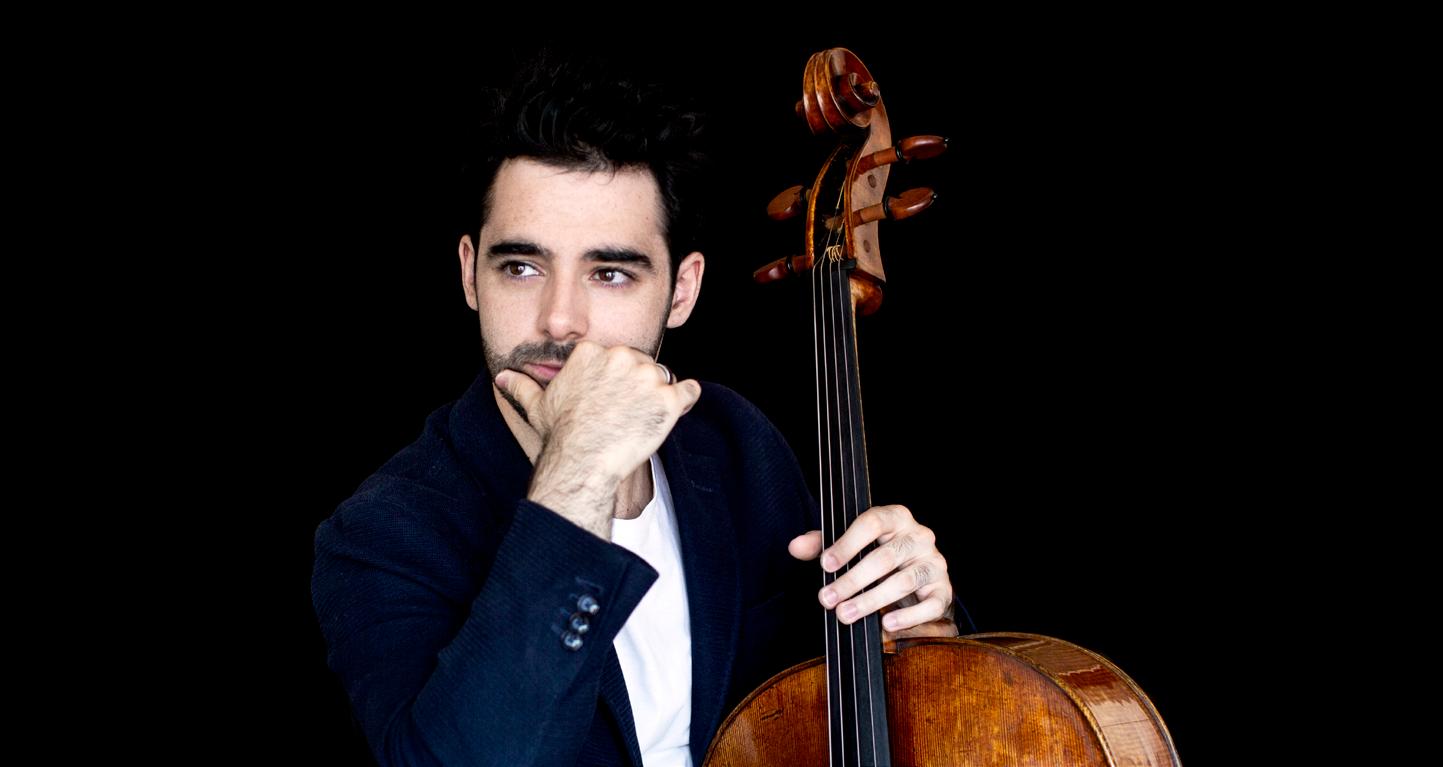
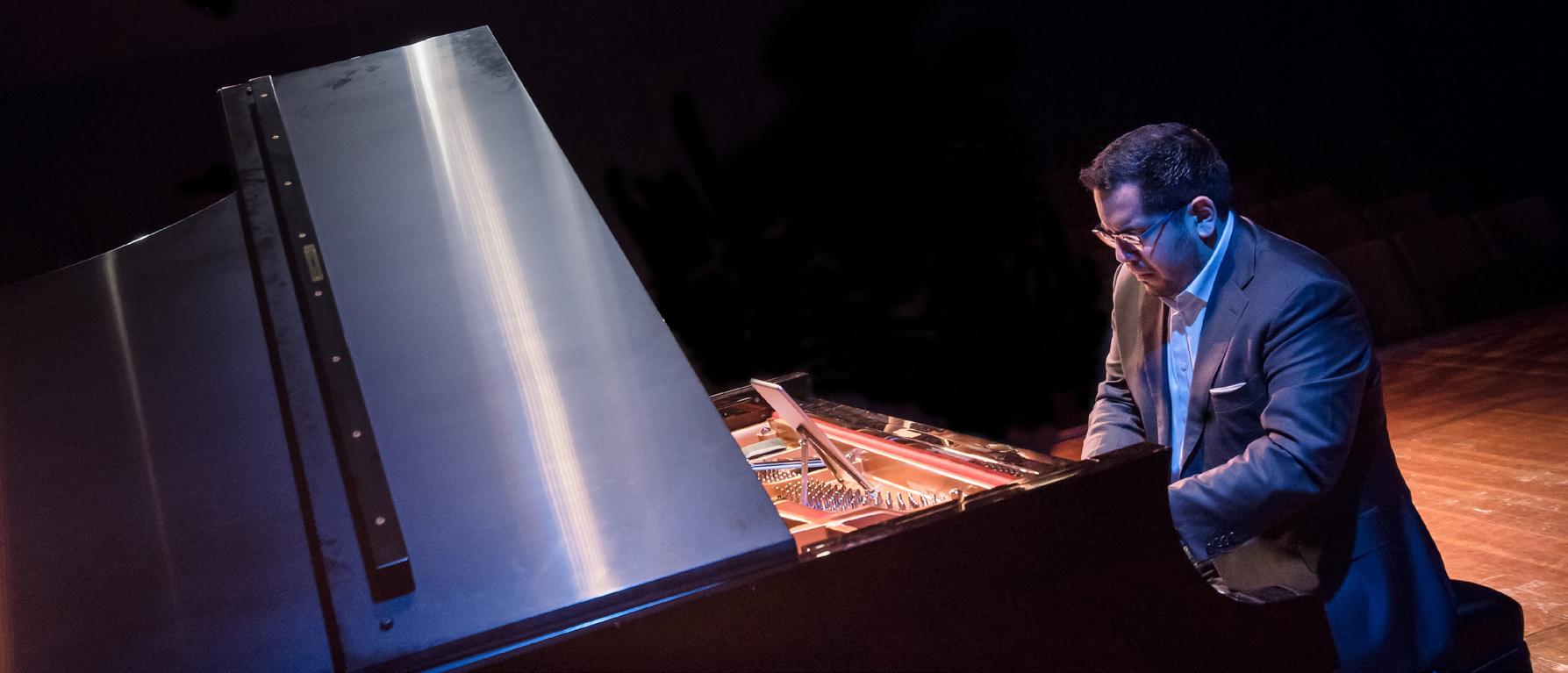
PRELUDE 6:30 PM
Lecture by Michael Gerdes
PABLO FERRÁNDEZ, cello & JULIO ELIZALDE, piano
THURSDAY, MAY 16, 2024 · 7:30 PM
THE BAKER-BAUM CONCERT HALL
BRUCH
Kol Nidrei, Opus 47 (1838–1920)
BEETHOVEN
Sonata for Pianoforte and Cello in G Minor, Opus 5, No. 2 (1770–1827)
Adagio sostenuto ed espressivo
Allegro molto più tosto presto
Allegro
INTERMISSION
RACHMANINOFF
Vocalise, Opus 34, No. 14 (1873–1943)
FRANCK
La Jolla Music Society’s 2023–24 season is supported by The City of San Diego Commission for Arts and Culture, Banc of California, The Lodge at Torrey Pines, ProtoStar Foundation, Vail Memorial Fund, ResMed Foundation, Bright Events Rentals, Cafe Coyote, Rancho Coyote, Giuseppe's, Ace Parking, Brenda Baker and Steve Baum, Raffaella and John Belanich, Gordon Brodfuehrer, Mary Ellen Clark, Bert and Julie Cornelison, Elaine Galinson and Herbert Solomon, Joan and Irwin Jacobs, Angelina and Fred Kleinbub, Dorothea Laub, Vivian Lim and Joseph Wong, Jeanette Stevens, Debra Turner, Sue and Peter Wagener, and Bebe and Marvin Zigman.
Sonata in A Major for Cello and Piano (1822–1890)
Allegretto ben moderato
Allegro
Recitativo-Fantasia.
Allegretto poco mosso
Pablo Ferrández, cello; Julio Elizalde, piano
This presentation marks Pablo Ferrández’ La Jolla Music Society debut. Julio Elizalde last performed for La Jolla Music Society in the Recital Series on March 28, 2024.
TheConrad.org · 858.459.3728 31
Table of Contents
Kol Nidrei, Opus 47
MAX BRUCH
Born January 6, 1838, Cologne
Died October 2, 1920, Friedenau, Germany a
Composed: 1880
Approximate Duration: 12 minutes
In 1880 the German composer Max Bruch began a three-year tenure as conductor of the Liverpool Philharmonic Orchestra. Bruch quickly immersed himself in the culture of his new home: he traveled widely through England and Scotland, he studied local folk music, and used Scottish and Celtic tunes in several different works, including the famous Scottish Fantasy. And at exactly this same moment, Bruch encountered quite a different culture: he became acquainted with the Jewish community in Liverpool, heard their music, and in 1880 he used two different Jewish themes as the basis for a piece for cello and orchestra that he called Kol Nidrei. Bruch’s subtitle for this piece describes it accurately: “Adagio on Hebrew Melodies for Violoncello and Orchestra.”
Kol Nidrei (“All Souls” in Aramaic) are the words that open the Ashkenazy Yom Kippur evening service. The orchestra’s quiet introduction prefaces the entrance of the cello, which assumes a cantorial voice, and that voice takes on many characters; it can be in turn firm, expressive, pleading, or impassioned, and Bruch extends the cello’s falling opening melody in many different ways. The second “Hebrew” melody comes from a setting of Byron’s “Those That Wept on Babel’s Stream.” This is announced as a beautiful chorale-like theme, and the cello then takes this up, sings it in several different ways, and finally draws Kol Nidrei to its tranquillo conclusion.
Bruch wrote Kol Nidrei specifically for the young German cellist Robert Hausmann (1852–1909), who would later give the premières of Brahms’ Second Cello Sonata and Double Concerto for Violin and Cello. After finishing the piece in Liverpool, Bruch wrote to his publisher, Fritz Simrock, who was also Brahms’ publisher, and gave some sense of the creation of his new work: “I only wanted to tell you that I have written a cello piece with orchestra for Hausmann, on a most excellent Hebrew melody ‘Kol Nidre’(Adagio). [Hausmann] bothered me until I finally wrote this piece.”
SOME IRONIC NOTES: Bruch was not Jewish (he was Lutheran), and his treatment of the Kol Nidrei theme was criticized by some Jewish scholars as a violation of its essential character; one of these, while freely conceding that Bruch had written an exceptionally beautiful piece of music, wrote that the “melody lost its original character” in his use of it. And so it is a bitter irony to learn that when the Nazis came to power fifty years later, they assumed that Bruch must have been Jewish and banned all performances
of his music. Kol Nidrei, however, has survived these controversies and remains—along with the First Violin Concerto—one of Bruch’s most popular works.
Sonata for Pianoforte and Cello in G Minor, Opus 5, No. 2
LUDWIG VAN BEETHOVEN
Born December 16, 1770, Bonn
Died March 26, 1827, Vienna
Composed: 1796
Approximate Duration: 24 minutes
Beethoven wrote the two sonatas of his Opus 5 early in 1796, shortly after his twenty-fifth birthday. These were his first sonatas for an instrument other than solo piano and were in fact the first significant sonatas for cello and keyboard (Vivaldi had written some small-scale sonatas for cello and harpsichord, but neither Haydn nor Mozart wrote cello sonatas). From February through July 1796, Beethoven made a concert tour to Prague, Dresden, Leipzig, and finally Berlin. There he and the court cellist, Jean-Louis Duport, performed these two sonatas before King Friedrich Wilhelm II, himself an amateur cellist. Also performed on this occasion was Beethoven’s set of twelve variations on the theme from Handel’s “See, the conquering hero comes.” The king, who surely understood the compliment implicit in the title, was delighted with the music and presented Beethoven with a golden snuffbox full of golden louis d’or. Now it was Beethoven’s turn to be delighted. He enthused to a friend that this snuffbox was no ordinary one, “but such a one as it might have been customary to give an ambassador.”
The second of the two sonatas, in G minor, has a structure similar to the first, beginning with a 44-measure introduction marked Adagio sostenuto ed espressivo. This truly is an expressive opening—and long enough that it might almost be considered a movement of its own rather than simply an introduction to something else. It leads without pause to the Allegro molto più tosto presto, a sonata-form movement based largely on the opening subject, here initially stated by the cello. A second theme is heard high in the piano, and the development treats both these ideas across this unusually long movement (509 measures). There is no slow movement—the lengthy slow introduction having in effect been a slow movement of its own—and the sonata concludes with an energetic rondo marked simply Allegro.
Vocalise, Opus 34, No. 14
SERGEI RACHMANINOFF
Born April 1, 1873, Novgorod, Russia
Died March 28, 1943, Los Angeles
Composed: 1912
Approximate Duration: 5 minutes
Rachmaninoff wrote so much bravura piano music and so many dramatic orchestral works that one tends to overlook his greatest strength as a composer—an incredible
32 THE CONRAD | HOME OF LA JOLLA MUSIC SOCIETY · 2023-24 SEASON
Program notes by Eric Bromberger
PABLO FERRÁNDEZ & JULIO ELIZALDE - PROGRAM NOTES
lyric gift best evident in his more than seventy songs and numerous choral works. Vocalise dates from the summer of 1912, which Rachmaninoff spent at Ivanovka, his family’s country estate. There he completed a cycle of fourteen songs, tailoring each to the talents of an individual Russian singer he knew. The last of the fourteen—dedicated to soprano Antonina Nezhdanovka, a member of the Moscow Grand Opera—was wordless: the soprano was simply to sing the melodic line over piano accompaniment. The song proved popular, and a few years later, at the suggestion of conductor Serge Koussevitsky, Rachmaninoff arranged Vocalise for string orchestra. Vocalise has haunted performers as well as listeners: in addition to the original versions for voice and for orchestra, the current catalog lists transcriptions for cello, piano, and saxophone.
It is easy to understand this music’s appeal. Vocalise offers Rachmaninoff’s most bittersweet lyricism, suffused with a dark, elegiac quality—this music was, in fact, performed at the memorial service following Rachmaninoff’s own death.
Sonata in A Major for Cello and Piano
CESAR FRANCK
Born December 10, 1822, Liège, Belgium
Died November 8, 1890, Paris
Composed: 1886
Approximate Duration: 29 minutes
This cello sonata is an arrangement, made shortly after Franck’s death by the French cellist Jules Delsart, of his Violin Sonata in A Major, originally composed in 1886. This sonata is one of the finest examples of Franck’s use of cyclic form, a technique he had adapted from his friend Franz Liszt, in which themes from one movement are transformed and used over subsequent movements. The Sonata in A Major is a particularly ingenious instance of this technique: virtually the entire work is derived from the quiet and unassuming opening of the first movement, which then evolves endlessly across the sonata. Even when a new theme seems to arrive, it will gradually be revealed as a subtle variant of one already heard.
The piano’s quiet fragmented chords at the beginning of the Allegretto ben moderato suggest a theme-shape that the cello takes over as it enters: this will be the thematic cell of the entire sonata. The piano has a more animated second subject (it takes on the shape of the germinal theme as its proceeds), but the gently rocking cello figure from the opening dominates this movement, and Franck reminds the performers constantly to play molto dolce, sempre dolce, dolcissimo.
The mood changes completely at the fiery second movement, marked passionato, and some critics have gone so far as to claim that this Allegro is the true first movement and that the opening Allegretto should be regarded as an introduction to this movement. In any case,
this movement contrasts its blazing opening with more lyric episodes, and listeners will detect the original themeshape flowing through some of these.
The Recitativo–Fantasia is the most original movement in the sonata. The piano’s quiet introduction seems at first a revisiting of the germinal theme, though it is—ingeniously—a variant of the passionato opening of the second movement. The cello makes its entrance with an improvisation-like passage (this is the fantasia of the title), and the entire movement is quite free in both structure and expression: moments of whimsy alternate with passionate outbursts.
After the expressive freedom of the third movement, the finale restores order with pristine clarity: it is a canon in octaves, with one voice following the other at the interval of a measure. The stately canon theme, marked dolce cantabile, is a direct descendant of the sonata’s opening theme, and as this movement proceeds it recalls thematic material from earlier movements. Gradually, the music takes on unexpected power and drives to a massive coda and a thunderous close.
TheConrad.org · 858.459.3728 33
PABLO FERRÁNDEZ & JULIO ELIZALDE - PROGRAM NOTES Table of Contents

PRELUDE 2 PM
Musical Prelude by students from the Colburn School Support for the Discovery Series and Musical Prelude provided by:
Gordon Brodfuehrer Jeanette Stevens
JIJI, guitar
SUNDAY, MAY 19, 2024 · 3 PM
THE BAKER-BAUM CONCERT HALL
SESSA Occhi io vissi di voi (arr. JIJI) (c.1570–c.1617/19)
ALBÉNIZ
Asturias (1860–1909)
NATALIE DIETTERICH Abigail (b. 1992)
CASSEUS Three Songs (1915–1993)
Yanvalloux
On Sunday Coumbite
GULLI BJÖRNSSON Dynjandi (b. 1991)
INTERMISSION
DAVID LANG
Second Guess* (West Coast Première) (b. 1957)
POP SET (3 songs): MÁXIMO DIEGO PUJOL Verde Alma (b. 1957)
ARLEN Over the Rainbow (arr. JIJI) (1905–1986)
DYENS Tango en Skai (1955–2016)
TANIA LEÓN Bailarín (b. 1943)
La Jolla Music Society’s 2023–24 season is supported by The City of San Diego Commission for Arts and Culture, Banc of California, The Lodge at Torrey Pines, ProtoStar Foundation, Vail Memorial Fund, ResMed Foundation, Bright Events Rentals, Cafe Coyote, Rancho Coyote, Giuseppe's, Ace Parking, Brenda Baker and Steve Baum, Raffaella and John Belanich, Gordon Brodfuehrer, Mary Ellen Clark, Bert and Julie Cornelison, Elaine Galinson and Herbert Solomon, Joan and Irwin Jacobs, Angelina and Fred Kleinbub, Dorothea Laub, Vivian Lim and Joseph Wong, Jeanette Stevens, Debra Turner, Sue and Peter Wagener, and Bebe and Marvin Zigman.
PAGANINI
Caprice No. 24 in A Minor (1782–1840)
Variations I - XI
Finale JIJI, guitar
A recital program featuring both new and old music, showcasing various genres and styles. This is a mixtape recital of all my favorite composers and pieces. You will experience a range from Renaissance hymn vocal music to Haitian folk songs, from Icelandic landscapes to virtuosic 19th-century music. It’s very special to have a new commissioned piece by Pulitzer Prize-winning composer David Lang; he says, “the idea is that everything that happens in the piece happens once, the first time, as a simple idea, and then is played a second time, in a more complicated, messed-up version. Everything in the piece works that way.” — JIJI
This presentation marks JIJI’s La Jolla Music Society debut.
34 THE CONRAD | HOME OF LA JOLLA MUSIC SOCIETY · 2023-24 SEASON
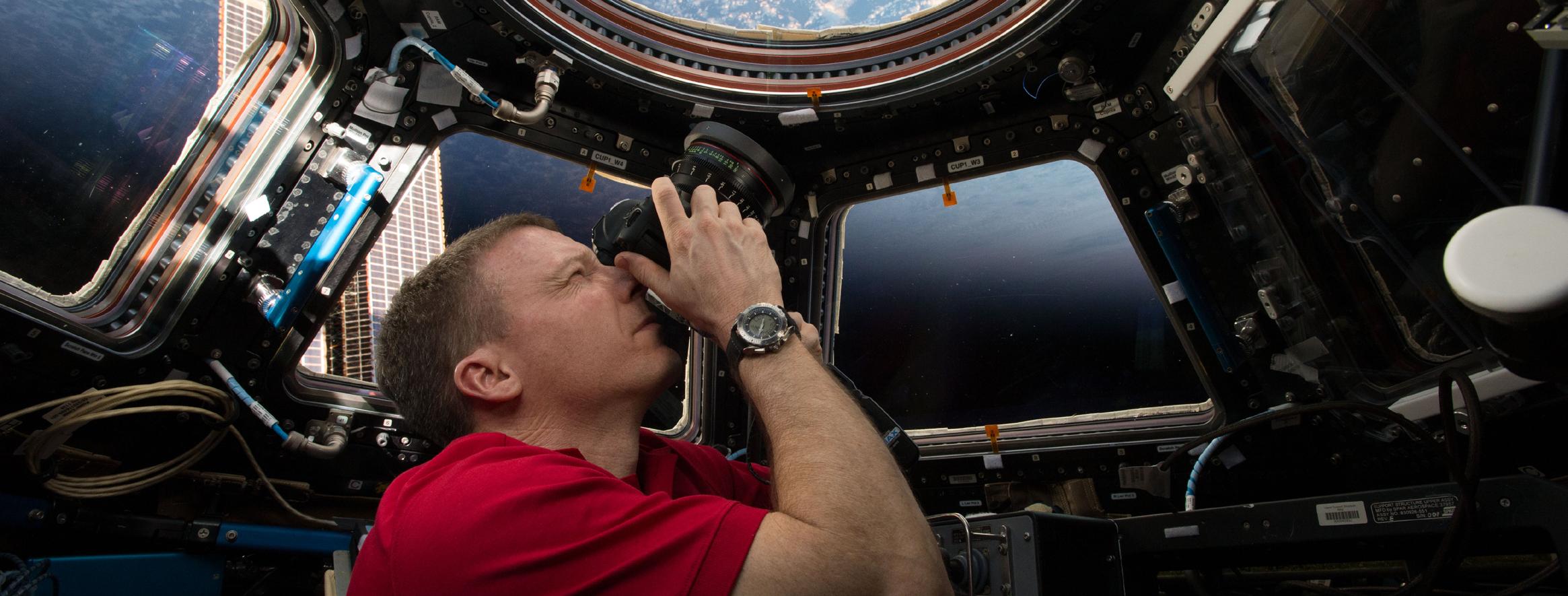

TERRY VIRTS HOW TO ASTRONAUT
THURSDAY, MAY 23, 2024 · 7:30 PM
THE BAKER-BAUM CONCERT HALL
PROGRAM
Presentation
Question & Answer Session
NO INTERMISSION
ABOUT
La Jolla Music Society’s 2023–24 season is supported by The City of San Diego Commission for Arts and Culture, Banc of California, The Lodge at Torrey Pines, ProtoStar Foundation, Vail Memorial Fund, ResMed Foundation, Bright Events Rentals, Cafe Coyote, Rancho Coyote, Giuseppe's, Ace Parking, Brenda Baker and Steve Baum, Raffaella and John Belanich, Gordon Brodfuehrer, Mary Ellen Clark, Bert and Julie Cornelison, Elaine Galinson and Herbert Solomon, Joan and Irwin Jacobs, Angelina and Fred Kleinbub, Dorothea Laub, Vivian Lim and Joseph Wong, Jeanette Stevens, Debra Turner, Sue and Peter Wagener, and Bebe and Marvin Zigman.
Terry Virts retired from the space program after having achieved nearly everything he ever dreamed possible, including serving in the U.S. Air Force as an F-16 fighter and test pilot, piloting the Space Shuttle Endeavour, serving as Commander for the International Space Station, and conducting three spacewalks during a 200-day mission in 2014 and 2015. During his seven months in space, he took more than 300,000 photographs and hours of video— the most of any space mission before or since. These images form the backbone of the IMAX film A Beautiful Planet, featuring Terry and narrated by Jennifer Lawrence, and were featured in National Geographic’s book View from Above. Join Terry to hear his reflections on spaceflight, stewardship of life on earth, and our place in the cosmos.
This presentation marks Terry Virts’ La Jolla Music Society debut.
TheConrad.org · 858.459.3728 35
Table of Contents

PRELUDE 6:30 PM
Lecture by Kristi Brown Montesano
Support for this program provided by:
The Elizabeth and Joseph Taft Trust
BRUCE LIU, piano
FRIDAY, MAY 31, 2024 · 7:30 PM
THE BAKER-BAUM CONCERT HALL
HAYDN Piano Sonata in B Minor, Hob.XVI:32 (1732–1809)
Allegro moderato
Minuet
Finale: Presto
CHOPIN Piano Sonata No. 2 in B-flat Minor, Opus 35 (1810–1849)
Grave; Doppio movimento
Scherzo
Marche funèbre : Lento
Presto
KAPUSTIN Variations, Opus 41 (1937–2020)
INTERMISSION
RAMEAU Six Selections (1683–1764)
Les Tendres Plaintes
La Jolla Music Society’s 2023–24 season is supported by The City of San Diego Commission for Arts and Culture, Banc of California, The Lodge at Torrey Pines, ProtoStar Foundation, Vail Memorial Fund, ResMed Foundation, Bright Events Rentals, Cafe Coyote, Rancho Coyote, Giuseppe's, Ace Parking, Brenda Baker and Steve Baum, Raffaella and John Belanich, Gordon Brodfuehrer, Mary Ellen Clark, Bert and Julie Cornelison, Elaine Galinson and Herbert Solomon, Joan and Irwin Jacobs, Angelina and Fred Kleinbub, Dorothea Laub, Vivian Lim and Joseph Wong, Jeanette Stevens, Debra Turner, Sue and Peter Wagener, and Bebe and Marvin Zigman.
Opus 3 Artists
Les Cyclopes
Menuets I et II
Les Sauvages
La Poule
Gavotte et six doubles
PROKOFIEV Piano Sonata No. 7 in B-flat Major, Opus 83 (1891–1953)
Allegro inquieto; Andantino Andante caloroso
Precipitato
Bruce Liu, piano
This presentation marks Bruce Liu’s La Jolla Music Society debut.
36 THE CONRAD | HOME OF LA JOLLA MUSIC SOCIETY · 2023-24 SEASON
Program notes by Eric Bromberger
Piano Sonata in B Minor, Hob.XVI:32
FRANZ JOSEPH HAYDN
Born March 31, 1732, Rohrau, Austria
Died May 31, 1809, Vienna
Composed: 1776
Approximate Duration: 15 minutes
Haydn’s 104 symphonies and his 83 string quartets have become—generally—part of the repertory, but his 62 keyboard sonatas remain much less familiar. These sonatas span his creative career (he wrote the earliest about 1750, the last in 1794 when he was 62), yet they are not widely performed, nor is a great deal known about them. There is even debate about the sort of performer Haydn was writing for. Were these sonatas intended for the growing number of amateur pianists at the end of the eighteenth century? Their publication in groups suggests that they might have been. Did Haydn write them for his students? Did he write them for himself? (Haydn was an able pianist but by no means a virtuoso, and these sonatas are at times very difficult.) Even the instrument he had in mind has been debated: while the early sonatas may have been composed for clavichord, the wide dynamic range of the later ones makes clear that he was writing these for the piano. Formally, these sonatas can be more experimental than the symphonies and quartets, and they often have unusual numbers and sequences of movements.
The Sonata in B Minor is part of a group of six sonatas published in 1776 and probably composed over the previous two years—this was the period that saw the creation of Haydn’s Symphony No. 61 and his Opus 20 string quartets. This sonata is unusual for its key: Haydn rarely used B minor (this is his only sonata in that key, and he wrote no symphonies in B minor), and that key seems to call forth serious music from him. The opening Allegro moderato—purposeful, dark, and dramatic— is not music for diversion but for a serious (and very skilled) performer; in sonata form, this movement is full of unexpected modulations. By contrast, the innocent Minuet—in B major—feels as if it comes from a different planet, but in the trio section Haydn brings back the key and powerful manner of the opening movement. The really extraordinary part of this sonata is the concluding Presto, a driving, percussive movement that more readily suggests the steely-fingered piano music of the young Prokofiev than the eighteenth-century drawing room. In its rapidly repeated notes, fast runs, imitative writing, and nonstop energy, this movement is a sort of toccata designed to show off a brilliant pianist’s touch, and it drives the sonata to an impressive conclusion.
Piano Sonata No. 2 in B-flat Minor, Opus 35 FRÉDÉRIC CHOPIN
Born March 1, 1810, Zelazowa Wola, Poland
Died October 17, 1849, Paris
Composed: 1839
Approximate Duration: 25 minutes
Chopin was not particularly comfortable with the large forms of the classical period. Although he had written one piano sonata and two piano concertos by the time he was 20, he preferred shorter and less structured forms. He never wrote another concerto, though he did compose three mature sonatas: two for piano and one for cello. The Sonata No. 2 in B-flat Minor may not conform strictly to the classical definition of sonata form, but it is an astonishing piece of music, perhaps just because it is so wildly original. Written in the summer of 1839, when Chopin was 29, it offers four radically different movements. The movements are so dissimilar that some unsympathetic critics have felt that this sonata has no unity at all: Schumann said that in this sonata Chopin had “bound together four of his maddest children.” Others, however, have found this dramatic sonata totally convincing.
The first movement opens with a three-measure chordal introduction marked Grave before the music leaps ahead at the Doppio movimento with a main theme built on insistent short phrases and marked agitato. Chopin treats this theme in many different ways in the course of the movement. Sometimes it drums quietly in the background as an accompaniment figure; at other points it becomes dramatic and extroverted. The second theme-group is lyrical, and Chopin develops both themes.
The Scherzo falls into several sections. Its opening idea—pounding, driving, exciting—gives way to a waltz-like trio that is as peaceful as the opening had been turbulent. This lovely melody returns at the end to bring the movement to an unexpectedly quiet close.
Many listeners will find they already know the third movement, for it is a funeral march that has become famous on its own (this sonata is sometimes called the “Funeral March Sonata”). It was written in 1837, two years before the rest of the sonata, and some believe that its somber tone and sharp contrasts form the unifying principle of the entire sonata. The march moves along darkly over chords that sound like tolling bells—the music is lugubrious enough that it seems to foreshadow Rachmaninoff (who, incidentally, made a famous recording of this sonata). Chopin provides a lyric center section, itself tinged with melancholy, before the grim march returns. This movement was played in an orchestral transcription at Chopin’s own funeral in Paris in 1849.
The final movement is the shortest of the sonata— and the most original. Marked Presto, it is a blistering perpetual-motion for virtuoso pianist. But what is so unusual is the fact that this flow of triplets, music
TheConrad.org · 858.459.3728 37
BRUCE LIU - PROGRAM NOTES Table of Contents
that seems almost without recognizable theme, is unaccompanied—Chopin simply has the pianist play it in octaves, and the movement rushes to its sudden and explosive concluding chord.
Variations, Opus 41
NIKOLAI KAPUSTIN
Born November 22, 1937, Gorlovka, Ukraine
Died July 2, 2020, Moscow
Composed: 1984
Approximate Duration: 7 minutes
Born in the Ukraine, Nikolai Kapustin learned to play the piano there as a boy and then went on to the Moscow Conservatory, where he studied with the Alexander Goldenweiser, the legendary teacher of many Russian pianists, including Dmitri Kabalevsky, Tatiana Nikolayeva, and Lazar Berman. But along his path to a career as a virtuoso pianist, an unexpected thing happened: Kapustin fell in love with American jazz. This was during the 1950s, that icy era when jazz was considered ideologically deficient in the Soviet Union, but Kapustin made a successful career as a jazz performer, both as a solo pianist and as a member of a jazz quintet.
Kapustin composed prolifically: his list of works now runs to well over 150 opus numbers, and these include twenty sonatas, six concertos and other works for piano and orchestra, and many more. All of his music is touched in some ways by his love for jazz, but Kapustin said repeatedly that he did not consider himself a jazz composer. At the center of jazz is improvisation, and Kapustin was quite specific that he did not improvise—he wrote out his pieces and then went back and revised them repeatedly until he got them in the form he wanted. And so his pieces should be the same whenever they are performed, and Kapustin felt that that violates the improvisational essence of jazz. This has not, however, prevented his music from becoming quite popular, and in recent years it has been performed and recorded by such artists as Yuja Wang, Marc-André Hamelin, and Steven Osborne. While Kapustin made his home in Russia, his son is on the faculty of Cal Tech in Los Angeles, where he is a professor of theoretical physics.
Kapustin’s Variations date from 1984. That title might seem misleading—all jazz is a matter of variations on a theme, after all—but Kapustin’s compact work takes a basic musical idea through a series of evolutions at different tempos and in varying moods. The opening section, marked Medium swing, introduces and briefly extends his main idea. The music leaps ahead at the Doppio movimento, where Kapustin goes into 3/4, then returns to common time for the wistful Larghetto, an expressive and beautiful interlude that Kapustin marks “Swinging just a bit.” A brief, blazing Presto in cut-time rockets the Variations to a fiery (and fun) close.
Six Selections
Les Tendres Plaintes
Les Cyclopes
Menuets I et II
Les Sauvages
La Poule
Gavotte et six doubles
JEAN-PHILIPPE RAMEAU
Baptized September 25, 1683, Dijon
Died September 12, 1764, Paris
Composed: 1706/1724/1731
Approximate Duration: 20 minutes
We remember Rameau today as a harpsichordist and theoretician, but he would have been disappointed to learn that. He wished above all else to succeed as a composer of opera, and while he did not write his first opera, Hippolyte et Aricie, until he was 50, it proved a striking success, and he composed about twenty more over the next two decades. Only a very small number of these are produced today, and Rameau’s modern reputation rests on his harpsichord music: he wrote about fifty short pieces for harpsichord, and these were published in three volumes in 1706, 1724, and 1731. These pieces—short, lively, and beautifully written for the instrument—are often in dance forms, but Rameau also wrote a number of pieces with evocative titles. Some of the latter are descriptive music (he wrote pieces about knitters, a whirlwind, a person with a limp, and so on), and some suggest specific moods (triumph, indifference).
Les Tendres Plaintes (“Tender Lamentations”) is a melancholy mood-piece, cast as a rondeau. The brilliant Les Cyclopes is said to have been inspired by a one-eyed giant in Lully’s opera Persée. Menuets I et II are dances without pictorial content, while Les Sauvages was inspired by a specific incident: on September 10, 1725, Rameau went to see a performance by two Louisiana Indians at the Théâtre Italien in Paris, and this keyboard piece is his reflection of their dancing. Rameau was, like Messiaen two centuries later, drawn to bird calls, and La Poule resounds with the clucking of a hen. Rameau takes care to write his transliteration of that sound (Co co co co co co co dai) into the keyboard part to remind the performer of how this music should sound.
The Gavotte and Six Doubles has become one of Rameau’s most best-known works. A gavotte was originally a French folk dance that was later taken up by the court of Louis XIV. Rameau states his eight-bar Gavotte theme simply at first and then follows it with six Doubles (a double is essentially a variation). The Gavotte tune is simplicity itself: it is a solemn and dignified melody in two sections, both repeated. Rameau then arranges his Doubles very effectively. They begin simply: the melody is first in the harpsichordist’s left hand, then in the right. Gradually the music builds in complexity and intensity as the theme leaps between the two hands or makes
38 THE CONRAD | HOME OF LA JOLLA MUSIC SOCIETY · 2023-24 SEASON BRUCE LIU - PROGRAM NOTES
wide skips. The Gavotte and Six Doubles comes to a very satisfying conclusion: the original Gavotte tune may have been understated, but in the final Double Rameau builds that gentle little melody into music of resounding triumph.
Piano Sonata No. 7 in B-flat Major, Opus 83
SERGEI PROKOFIEV
Born April 27, 1891, Sontsovka, Ukraine
Died March 5, 1953, Moscow
Composed: 1942
Approximate Duration: 18 minutes
Prokofiev liked to plan works far in advance, and in 1939—when he was 48—he projected a series of three piano sonatas, which would be his Sixth, Seventh, and Eighth. He completed the first of these in 1940, but then came catastrophe—Hitler invaded Russia in June 1941, and Prokofiev’s plans were delayed and altered. Along with many other artists, he was evacuated, first to Nalchik in the Caucasus, then in the fall of 1941 to Tbilisi, near the border with Turkey. Here Prokofiev plunged into his project to compose an opera based on Tolstoy’s War and Peace: the heroic Russian resistance to Napoleon became a parallel for the struggle against Nazi Germany. And at the same time he worked on the opera, Prokofiev found time to compose his Piano Sonata No. 7, completing the score in Tbilisi in April 1942. Young Sviatoslav Richter gave the first performance, in Moscow, on January 18, 1943.
Since the moment of that première, the Seventh has been acclaimed one of Prokofiev’s finest works. Almost inevitably, observers have claimed to hear the sound of war and national catastrophe in this music, but the composer himself made no direct connection, leaving such issues to his listeners. The first movement has the unusual marking Allegro inquieto, and unquiet this music certainly is. The opening section is quite percussive, and something of the music’s character can be understood from Prokofiev’s performance markings: tumultuoso, veloce, con brio, marcato, secco; at one point, he even requests that the performer make the piano sound quasi timpani. The pianist Vladimir Ashkenazy has compared this opening section to the sound of “drums beating and iron screeching,” which makes the second section all the more impressive. This is a singing and flowing Andantino, which Prokofiev marks espressivo e dolente (“grieving”); these two quite different kinds of music alternate before the movement comes to a quiet close.
The second movement also has an unusual marking, Andante caloroso (“warm”), and some have found the opening almost sentimental in its relaxed songfulness. This is soon disrupted by an agitated middle section; the violence fades away, but the gentle opening makes only the briefest and most tentative return before the close. The famous last movement is a blistering toccata, marked simply Precipitato (“precipitous”). This is extremely fast, set in the unusual meter 7/8, and unremittingly chordal in its textures.
It is also extraordinarily difficult music (Vladimir Horowitz sometimes used this movement as an encore piece), and it forms an exciting conclusion to the sonata. Along the way, material from the opening movement makes a brief reappearance, but the chordal violence of this movement overpowers it and drives the sonata to its hammering close.
TheConrad.org · 858.459.3728 39
BRUCE LIU - PROGRAM NOTES Table of Contents

CHRIS THILE
FRIDAY, JUNE 7, 2024 · 7:30 PM
THE BAKER-BAUM CONCERT HALL
Chris Thile, mandolin PROGRAM
Works to be announced from stage.
NO INTERMISSION
ABOUT
MacArthur Fellow and GRAMMY Award-winning mandolinist, singer, songwriter
Chris Thile, whom the Guardian calls “that rare being: an all-round musician who can settle into any style, from bluegrass to classical,” and NPR calls a “genre-defying musical genius,” is a founding member of the critically acclaimed bands Punch Brothers and Nickel Creek. For four years, Thile hosted public radio favorite Live from Here with Chris Thile (formerly known as A Prairie Home Companion ). With his broad outlook, Thile creates a distinctly American canon and a new musical aesthetic for performers and audiences alike, giving the listener “one joyous arc, with the linear melody and vertical harmony blurring into a single web of gossamer beauty” (New York Times).
La Jolla Music Society’s 2023–24 season is supported by The City of San Diego Commission for Arts and Culture, Banc of California, The Lodge at Torrey Pines, ProtoStar Foundation, Vail Memorial Fund, ResMed Foundation, Bright Events Rentals, Cafe Coyote, Rancho Coyote, Giuseppe's, Ace Parking, Brenda Baker and Steve Baum, Raffaella and John Belanich, Gordon Brodfuehrer, Mary Ellen Clark, Bert and Julie Cornelison, Elaine Galinson and Herbert Solomon, Joan and Irwin Jacobs, Angelina and Fred Kleinbub, Dorothea Laub, Vivian Lim and Joseph Wong, Jeanette Stevens, Debra Turner, Sue and Peter Wagener, and Bebe and Marvin Zigman.
Most recently, Chris recorded Laysongs on Nonesuch. The album is his first truly solo album: just Thile, his voice, and his mandolin, on new recordings of six original songs and three covers, all of which contextualize and banter with his ideas about spirituality. Recorded in a converted upstate New York church during the pandemic, Laysongs’ centerpiece is the three-part “Salt (in the Wounds) of the Earth,” which was inspired by C.S. Lewis’ The Screwtape Letters. The album also features a song Thile wrote about Dionysus; a performance of the fourth movement of Béla Bartók’s Sonata for Solo Violin; “God is Alive, Magic is Afoot,” based on Buffy Sainte-Marie’s adaptation of a Leonard Cohen poem; a cover of bluegrass legend Hazel Dickens’ “Won’t You Come and Sing for Me,” and “Ecclesiastes 2:24,” an original instrumental loosely modeled after the Prelude from J.S. Bach’s Partita for Solo Violin in E Major.
Chris Thile last performed for La Jolla Music Society in a Special Event on April 24, 2019.
40 THE CONRAD | HOME OF LA JOLLA MUSIC SOCIETY · 2023-24 SEASON
ARTIST PROFILES
Ballets Jazz Montréal

Under the artistic direction of Alexandra Damiani, Ballets Jazz Montréal creates, produces, and presents on local, national, and international stages. The company engages internationally renowned choreographers to develop their own research in line with the company’s identity and generates a repertoire that is both exclusive to the company and accessible to all audiences. The company’s roster of talented and influential choreographers includes Crystal Pite, Aszure Barton, Mauro Bigonzetti, Andonis Foniadakis, Itzik Galili, Annabelle Lopez Ochoa, Barak Marshall, Benjamin Millepied, Ihsan Rustem, Anne Plamondon, and Juliano Nunes, to name a few. As an ambassador of Quebec dance to the world, Ballets Jazz Montréal offers an artistic product that is explosive, original, accessible, and noted for the excellence of its performance. In 2016, the Prix Rideau Hommage was awarded to the company and its artistic director at the time, Louis Robitaille, in recognition of Ballet Jazz Montréal’s impact and continued presence on Quebec stages. In 2020, the company received the Prix de la danse de Montréal for the category of international dissemination presented by CINARS.
Terence Blanchard, trumpet
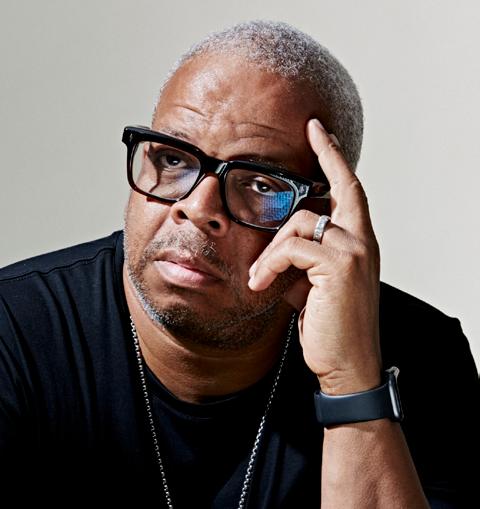
A world-renowned trumpeter/ composer/band leader and Blue Note recording artist, Terence Blanchard’s creative endeavors go far beyond the jazz world into scoring more than 40 films, crafting television series soundscapes, and conceiving grand operas. A two-time Oscar nominee, for the Spike Lee films BlacKKKlansman and Da 5 Bloods, he was won five GRAMMY Awards from 14 nominations. Blanchard’s second opera, Fire Shut Up in My Bones, opened the Metropolitan Opera’s 2021–22 season—the first time a project by an African American composer graced the Met’s stage in its 136-year history. His first opera, Champion, premiered at the Opera Theatre of Saint Louis in 2013. Blanchard has served as the
Kenny Burrell Chair in Jazz Studies at the UCLA Herb Alpert School of Music, artistic director of the Berklee College of Music, director of the Henry Mancini Institute at the University of Miami, and the Thelonious Monk Institute of Jazz. Born in New Orleans, Blanchard toured with the Lionel Hampton Orchestra as a teenager, and in 1982 was recommended by Wynton Marsalis to take Wynton’s place in Art Blakley’s Jazz Messengers. In 2015, Blanchard formed his revolutionary jazz band E-Collective.
Yefim Bronfman, piano

Internationally recognized as one of today’s most acclaimed and admired pianists, Yefim Bronfman stands among a handful of artists regularly sought by festivals, orchestras, conductors and recital series. Following summer festival appearances in Verbier and Salzburg and on tour with mezzo-soprano Magdalena Kozena, his season began with the opening week of the Chicago Symphony followed by return visits to New York Philharmonic, Pittsburgh, Houston, Philadelphia, New World, Pacific, Madison, New Jersey, Toronto, and Montreal symphonies. In Europe toured with Rotterdam Philharmonic and was heard with Berlin Philharmonic, Bayerischer Rundfunk (Munich), Bamberg, Dresden Staatskapelle, Maggio Fiorentino and Zurich Opera orchestras. Bronfman is a recipient of the prestigious Avery Fisher Prize, and in 2010 he was further honored as the recipient of the Jean Gimbel Lane prize in piano performance from Northwestern University and in 2015 with an honorary doctorate from the Manhattan School of Music
Jay Campbell, cello

The only musician ever to receive two Avery Fisher Career Grants — in 2016 as a soloist, and again in 2019 as a member of the JACK Quartet — cellist Jay Campbell made his concerto debut with the New York Philharmonic in 2013 and in 2016, he worked with Alan Gilbert as the artistic director for Ligeti
TheConrad.org · 858.459.3728 41
Table of Contents
Forward, part of the New York Philharmonic Biennale at the Metropolitan Museum of Art. He has recorded the concertos of George Perle and Marc-Andre Dalbavie with the Seattle Symphony, and in 2023–24 will premiere a new concerto, Reverdecer, by Andreia PintoCorreia with the Gulbenkian Orchestra in Portugal, and in Brazil with the Orquestra Sinfonica do Estado de Sao Paulo. Campbell’s primary artistic interest is collaboration with living creative musicians, including Catherine Lamb, John Luther Adams, Marcos Balter, Tyshawn Sorey, and many others. His close association with John Zorn resulted in two discs of new works for cello, Hen to Pan (2015) and Azoth (2020). He is the cellist of the JACK Quartet and multidisciplinary collective AMOC.
Gene Coye, drums

As a child, Gene Coye taught himself to play drums. Throughout his youth, he was mentored by gospel drumming great Terry Banks. By the time he was a teenager, Coye was playing in numerous community choirs and jazz ensembles from Chicago to Los Angeles, and formed a tour schedule as a junior in high school. Coye received his BFA in Jazz Performance at California Institute ofnthe Arts, where he studied under famed jazz legend Joe La Barbera (pianist Bill Evans ’drummer). While in college, Coye toured the world with Carlos Santana and his son, Salvador. Upon graduating, he quickly established himself as one of the most sought-after drummers in Los Angeles. Of late, Coye has been touring Europe and the US with famed guitarist Larry Carlton, in addition to playing with James Tormé (son of Mel Tormé), and numerous other artists in the LA area.
Alexandra Damiani, artistic director, Ballets Jazz Montréal

Appointed Artistic Director of Ballets Jazz Montréal the spring of 2021, Alexandra Damiani has been a major player in the dance community for more than two decades. During her ten years with New York’s Cedar Lake
Contemporary Ballet (2005–15), first as Ballet Mistress and then as Artistic Director, Damiani had the opportunity to work with and present a wide selection of contemporary dance choreographic languages by such internationally renowned choreographers as Sidi Larbi Cherkaoui, Crystal Pite and Hofesh Schecter. Damiani also presented the company in major cities and international festivals, including at the Lyon Biennale in France and Sadler's Wells in London. Originally from France, Damiani is a multidisciplinary artist who has been lending her expertise to the world of film, television, and advertising for many years. Her credits include playing the ballet mistress in Darren Aronofsky’s film Black Swan and working alongside Tanisha Scott on Cardi B’s performance for the 2019 BET Awards.
Devin Daniels, saxophone
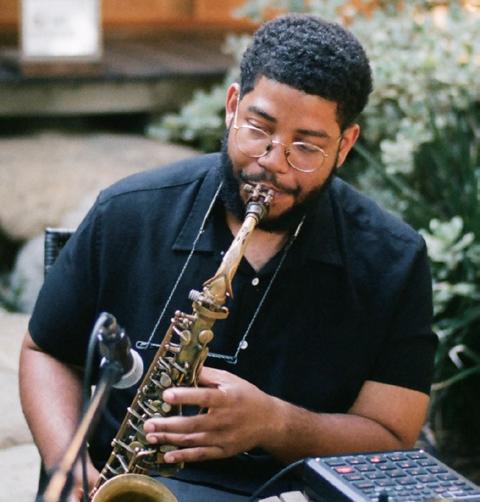
Alto saxophonist Devin Daniels has performed in many different configurations of bands in the jazz idiom since 2010. Hailing from Inglewood, Calif., Daniels started playing saxophone in the Just Lovin’ Music Studios program, led by pianist Michelle Love. He has studied with some of the leading educators/players in America including Keisha Potter, Rusty Higgins, Josh Johnson, Shannon LeClaire, and George Garzone. Devin was accepted into the Berklee College of Music as a Presidential Scholar. He graduated with a B.M. in Professional Music and is now pursuing his master’s degree at the Herbie Hancock Institute of Jazz Performance at UCLA. Daniels has released several albums and has shared the stage with artists such as Miguel Atwood Ferguson, Carlos Nino, and Jamael Dean; appeared on numerous album recordings with artists such as the Pan African People’s Arkestra, Jamael Dean, Diego Gaeta. He has performed at venues including the Porgy and Bess club in Vienna, the Blue Note Jazz club in NYC, the Blue Whale jazz club in Los Angeles, the Lighthouse Café in Hermosa Beach, and the World Stage in Leimert Park.
42 THE CONRAD | HOME OF LA JOLLA MUSIC SOCIETY · 2023-24 SEASON
ARTIST PROFILES
Julio Elizalde, piano
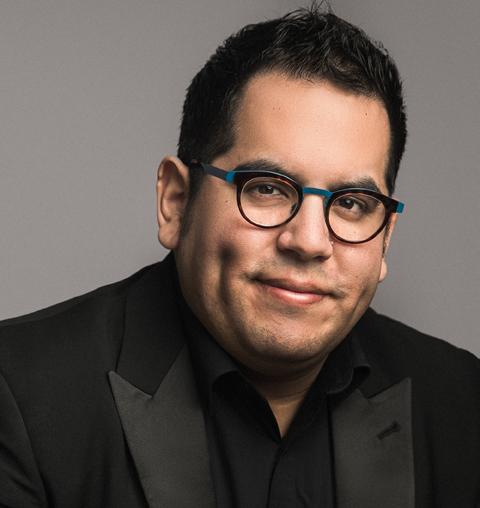
American pianist Julio Elizalde is a multi faceted artist who enjoys a versatile career as soloist, chamber musician, artistic administrator, educator, and curator. He has performed in many of the major music centers throughout the United States, Europe, Asia, and Latin America to popular and critical acclaim. Since 2014, he has served as the Artistic Director of the Olympic Music Festival near Seattle. Elizalde has appeared with many leading artists; he tours internationally with world-renowned violinists Sarah Chang and Ray Chen and has performed alongside conductors Itzhak Perlman, Teddy Abrams, and Anne Manson. He has collaborated with artists such as violinist Pamela Frank, composers Osvaldo Golijov and Stephen Hough, baritone William Sharp, and members of the Juilliard, Cleveland, Takács, Kronos, and Brentano string quartets.
Hadrien Feraud, bass
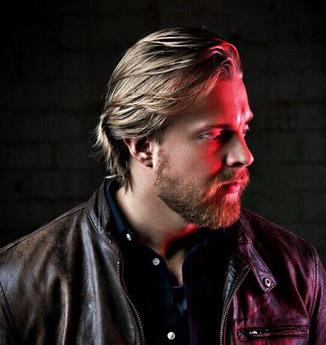
French bassist Hadrien Feraud has collaborated with John McLaughlin, Chick Corea, Billy Cobham, Jean Luc Ponty, Bireli Lagrene, Dean Brown, Hiromi Uehara, Lee Ritenour, and amny more greats of the jazz world. Growing up in a musical household, Feraud fell in love with the bass and in 2002 formed a power trio called Le Cartel, with Jim (guitarist) and Jon (drummer) Grandcamp. Feraud competed at the Euro Bass Day in Verona in 2003 and was selected as a finalist; he also took first prize at the French national contest “Haut les basses” in 2004. He has shared stages with such names as Rido Bayonne, Sheik Tidiane, Marc Berthoumieux, Jean Marie Ecay, Mokhtar Samba, Dominique Dipiazza, N’guyene Le, Thierry Eliez, Flavio Boltro, Paban Das Baul, Bireli Lagrene and Andre Ceccarelli. In 2005, John McLaughlin invited Hadrien to play on two tracks for his album Industrial Zen. In 2007 Hadrien released his self-titled debut album as a solo artist and recorded with Chick Corea.
Pablo Ferrández, cello

A prizewinner at the XV International Tchaikovsky Competition and SONY
Classical exclusive artist, Pablo Ferrández has been hailed as a “new cello genius” by Le Figaro, among other acclaim. Recent highlights include appearances with LA Philharmonic at Hollywood Bowl, Filarmonica della Scala, Orchestra dell’Accademia Nazionale di Santa Cecilia, Oslo Philharmonic, Seoul Philharmonic, NDR Elbphilharmonie Orchester, Vienna Radio Symphony, Royal Philharmonic, Academy of St. Martin in the Fields, and Rotterdam Philharmonic. Ferrández toured last season with Anne-Sophie Mutter and the London Philharmonic under Ed Gardner, with the Munich Philharmonic, and with the Antwerp Symphony. He is also frequently invited to festivals such as Verbier, Salzburg, Dresden, Sion, Dvorak Prague Festival, and Grant Park, among others. In the 2023–24 season he debuted at the David Geffen Hall in New York with the Orquesta del Teatro Real, and also performed with the Boston Symphony, Cleveland Orchestra, San Francisco Symphony, Rotterdam Philharmonic, London Philharmonic, Dusseldorf Symphony, and Orchestre National de France, as well as the LA Philharmonic with Anne-Sophie Mutter under Gustavo Dudamel.
James Genus, bass
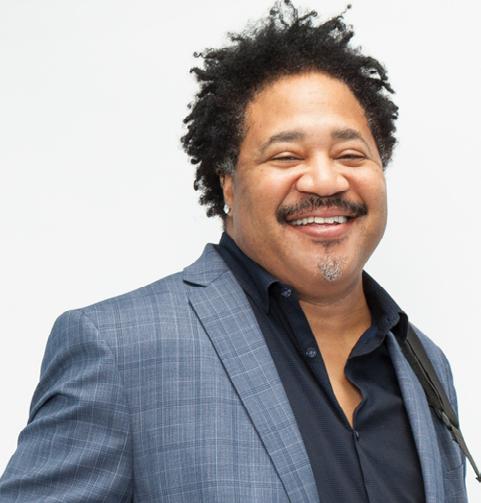
Jazz bassist James Genus plays both electric bass guitar and upright bass and currently plays in the Saturday Night Live Band. Genus has performed as a session musician and sideman throughout his career. Born in Hampton, Virginia, he began studying guitar at age six and switched to bass at 13. He studied at Virginia Commonwealth University under jazz great Ellis Marsalis. Receiving a degree in jazz studies, he later moved to New York and has played and recorded acoustic and electric bass for some of the biggest talents in jazz, including David Sanborn, Bob James, Herbie Hancock, Chick Corea, and Wynton Marsalis.
TheConrad.org · 858.459.3728 43
ARTIST PROFILES Table of Contents
Dayramir González, piano
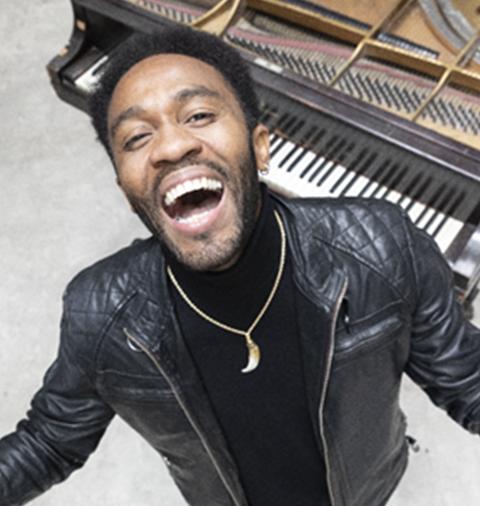
Dayramir González started his professional career as a pianist and composer at the age of 16 with former Irakere member Oscar Valdés’ Afro-Cuban jazz ensemble Diákara. He received the highest awards at Havana’s JoJazz festival in 2004 and 2005 and three Cubadisco awards for his 2007 debut album Dayramir & Habana enTRANCé before proceeding to Berklee College of Music as the first Cuban national “Presidential Scholarship” recipient. Since completing his education, he has performed in 15,000-seat stadiums with legends Chucho and Bebo Valdés and headlined Carnegie Hall as a representative of the young generation of Afro-Cuban jazz. In recent years with multiple recorded albums in his portfolio González has developed an international following with clubs, concert halls, and festival appearances throughout North and South America, as well as Europe. A United States citizen, González still performs annually in Cuba at the legendary Jazz Plaza Festival in Havana, while staying close to his cultural and creative roots.
Herbie Hancock, piano/keyboards
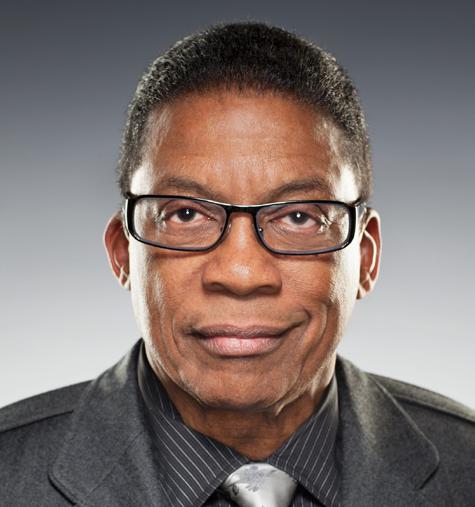
Herbie Hancock is a true icon of modern music. Throughout his explorations, he has transcended limitations and genres while maintaining his unmistakable voice. With an illustrious career spanning five decades and 14 Grammy® Awards, including Album of the Year for River: The Joni Letters, he continues to amaze audiences across the globe. There are few artists in the music industry who have had more influence on acoustic and electronic jazz and R&B. Hancock also maintains a thriving career outside the performing stage and recording studio. Recently named by the Los Angeles Philharmonic as Creative Chair for Jazz, he currently also serves as Institute Chairman of the Herbie Hancock Institute of Jazz, the foremost international organization devoted to the development of jazz performance and education worldwide. Hancock is also a founder
of the International Committee of Artists for Peace and was awarded the much esteemed “Commandeur des Arts et des Lettres” by French Prime Minister Francois Fillon. In 2011 he was designated a UNESCO Goodwill Ambassador, and in 2013 was the recipient of a prestigious Kennedy Center Honor. In 2014 he was named the 2014 Norton Professor of Poetry at Harvard University. His memoirs, Herbie Hancock: Possibilities, were published by Viking in 2014, and in 2016 he was awarded the GRAMMY Lifetime Achievement Award.
Hiromi, piano

Since her debut album
Another Mind (2003), the world-renowned pianist Hiromi’s sound has evolved with every release, erasing the lines between jazz and classical, composition and improvisation. Born in Hamamatsu, Japan, Hiromi began studying piano when she was six years old. When she was 17, Chick Corea invited her to play with him at a Tokyo concert. She attended Berklee College of Music in Boston, Massachusetts, where she was mentored by jazz legend Ahmad Jamal. Her latest album, Sonicwonderland, is Hiromi’s twelfth studio full-length and second album of 2023; earlier this year she recorded the soundtrack to Blue Giant, an animated feature film based on the popular manga. Hiromi is a perennial favorite on DownBeat’s Annual Critics and Readers polls, and has performed at the world’s finest jazz festivals, including Montreux, Umbria, North Sea, Newport, and Monterey. Her work has been celebrated by media including the New York Times; NPR and NPR Music, where she performed a Tiny Desk Concert; and the Washington Post, and she was a featured performer at the Tokyo Olympics opening ceremony in 2021.
Stefan Jackiw, violin

Stefan Jackiw is one of America’s foremost violinists, captivating audiences with playing that combines poetry and purity with an impeccable technique. Hailed for playing characterized by "uncommon musical substance" and that is
44 THE CONRAD | HOME OF LA JOLLA MUSIC SOCIETY · 2023-24 SEASON ARTIST PROFILES
“striking for its intelligence and sensitivity” (Boston Globe), Jackiw has appeared as soloist with the Boston, Chicago, Cleveland, New York, Philadelphia, and San Francisco symphony orchestras, among others. Jackiw has recorded for Sony the complete Brahms sonatas, hailed by Fanfare as “now the recording of the Brahms sonatas to have.” He is also a member of Ensemble Ditto, a wildly popular Korea-based chamber music group, with a mission to introduce new audiences to the chamber music repertoire. Ensemble Ditto plays to sold-out halls across the country, presenting works from Bach, Mozart, and Beethoven to George Crumb, Steven Reich, and John Zorn.
JIJI, guitar
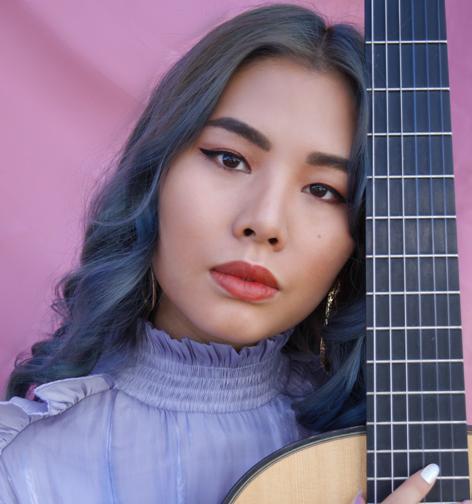
Guitarist JIJI’s impeccable musicianship combined with compelling stage presence and fascinating repertoire earned the Korean guitarist First Prize at the 2016 Concert Artists Guild International Competition. Her career highlights include a wide array of venues, including Carnegie Hall, 92nd Street Y, Festival Napa Valley, Krannert Center, Purdue Convocations, Virginia Arts Festival, National Sawdust, Miller theater, Mass MOCA, Subculture NYC, Philadelphia Museum of Art, Princeton Sound Kitchen, and the Metropolitan Museum of Art. She has premiered works by numerous emerging composers, including Talking Guitars by Paul Lansky and works by Nina C. Young, Gabriella Smith, Riho Maimets, Krists Auznieks, Gulli Björnsson, Andrew McIntosh, and Farnood HaghaniPour. She also performs her own compositions, incorporating electronic media and acoustic music. As a chamber musician, JIJI has performed with members of Eighth Blackbird, Bang on a Can All-Stars, wild Up, and the Aizuri Quartet. Her performances have been featured on PBS, NPR’s From the Top, WHYY-TV, FOX 4-TV, Munchies, The Not So Late Show, and Hong Kong broadcast station RTHK’s The Works.
Trevor Lawrence, Jr., drums
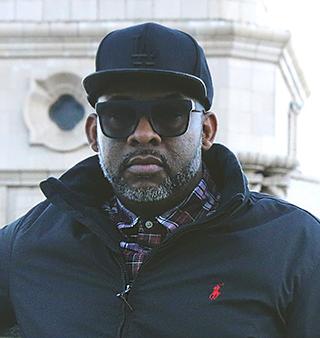
Born into a family of music royalty, drummer Trevor Lawrence, Jr. has more than 70 recording credits in his discography including Bruno Mars, Ed Sheeran, Snoop Dogg, Quincy Jones, Alicia Keys, LeAnn Rimes, Kendrick Lamar, Stevie Wonder, Eminem, and Dr. Dre, and tours with Herbie Hancock, LeAnn Rimes, and more. Lawrence is the drummer with Terrace Martin’s new group, The Pollyseeds, whose recent debut single topped 900K plays on Soundcloud in its first few days. Lawrence’s first solo record, Relationships, brings together the variety of people he has worked with, including featured players Terrace Martin, Kenneth Crouch, Nicholas Payton, Maurice Brown, LeAnn Rimes, Kamasi Washington, and Nico Segal.
Bruce Liu, piano

Bruce Liu was brought to the world’s attention in 2021 when he won the First Prize at the 18th Chopin International Piano Competition in Warsaw. Since then he has toured the world, appearing at the Théâtre des ChampsElysées in Paris, Royal Festival Hall with the Philharmonia Orchestra, Vienna Konzerthaus, BOZAR Brussels, Tokyo Opera City, and Sala São Paulo. Orchestral appearances also include the Polish National Radio Symphony Orchestra, NHK Symphony Orchestra, Orchestre Philharmonique du Luxembourg, and Seoul Philharmonic Orchestra. Most recently, Liu appeared in recital on the main stage of Carnegie Hall, and with the Montreal Symphony, Toronto Symphony, Royal Philharmonic Orchestra, and Wiener Symphoniker at the Musikverein. His festival appearances include la Roque d’Anthéron, Klavier-Festival Ruhr, Rheingau, and Edinburgh. As an exclusive recording artist with Deutsche Grammophon, Liu’s first album featuring the winning performances from the Chopin Competition won a Fryderyk Award and received international acclaim including both the Critics’
TheConrad.org · 858.459.3728 45
ARTIST PROFILES Table of Contents
choice and Editor’s choice in Gramophone Magazine, which proclaimed his debut disc as “simply as one of the most distinguished Chopin recitals of recent years.”
Adam O’Farrill, trumpet

Brooklyn native Adam O’Farrill has emerged as a “rising star as a player and composer” (PopMatters) and “a blazing young trumpet talent” (The New York Times). He has collaborated and performed with the likes of Mary Halvorson, Hiromi, Rudresh Mahanthappa, Anna Webber, Samora Pinderhughes, Mulatu Astatke, Stimmerman, Vijay Iyer, and Son Lux. Adam O’Farrill leads the quartet
Stranger Days featuring Xavier Del Castillo, Walter Stinson, and Zack O’Farrill. Their most recent album, Visions of Your Other, was released on Biophilia
Records in November 2021 and was named one of the best jazz albums of 2021 by the New York Times, the Boston Globe, and Popmatters. O’Farrill has received awards and recognition for both his trumpet playing and composition, including the Downbeat Critics Poll for Best Rising Star Trumpeter and the ASCAP Herb Alpert Young Jazz Composer Award.
Chris Potter, saxophone

A world-class soloist, accomplished composer and formidable bandleader, saxophonist Chris Potter is the youngest musician ever to win Denmark’s Jazzpar Prize. Potter’s impressive discography includes 15 albums as a leader and sideman appearances on more than 100 albums. He was nominated for a GRAMMY Award for his solo work on “In Vogue,” a track from Joanne Brackeen’s 1999 album Pink Elephant Magic and was prominently featured on Steely Dan’s GRAMMY-winning album from 2000, Two Against Nature. He has performed or recorded with many of the leading names in jazz, such as Herbie Hancock, Dave Holland, John Scofield, the Mingus Big Band, Jim Hall, Paul Motian, Dave Douglas, Ray Brown and many others.
PUBLIQuartet

The New York-based PUBLIQuartet is an improvising string quartet whose repertoire blends genres and highlights American multiculturalism. PUBLIQuartet rose on the music scene as winner of the 2013 Concert Artists Guild New Music/New Places award, and in 2019 garnered Chamber Music America’s prestigious Visionary Award for outstanding and innovative approaches to contemporary classical, jazz, and world chamber music. PQ’s genre-bending programs range from newly commissioned pieces to re-imaginations of classical works featuring open-form improvisations that expand the techniques and aesthetic of the traditional string quartet. PUBLIQuartet has held artist residencies at The Metropolitan Museum of Art and National Sawdust, and has performed everywhere from Carnegie Hall and Lincoln Center to the Montreal, Newport and Detroit Jazz Festivals. Their 2023–24 season includes performances at USC and the Library of Congress, with the New York City Ballet, as well as tour dates with jazz artists including Hiromi, Diane Monroe, and Magos Herrera. The quartet’s latest album, the GRAMMY-nominated What Is American, explores resonances between contemporary, blues, jazz, freely improvised, and rock-inflected languages.
Conrad Tao, piano
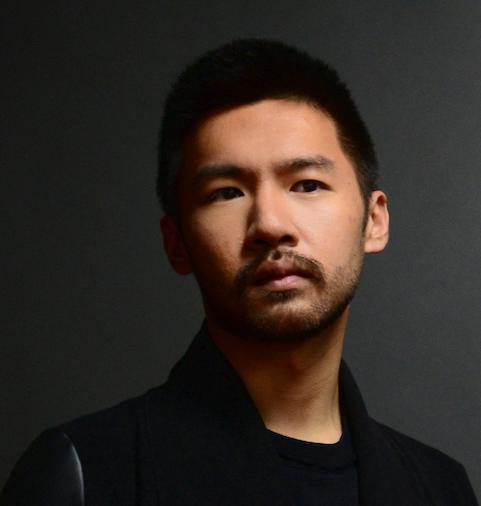
Conrad Tao appears worldwide as a pianist and composer, performing as soloist with the Los Angeles Philharmonic, Chicago Symphony, Cleveland Orchestra, New York Philharmonic, and Boston Symphony. His compositions have been performed by orchestras throughout the world; his first large-scale orchestral work, Everything Must Go, received its world premiere with the New York Philharmonic, and its European premiere with the Antwerp Symphony. He is the recipient of the prestigious Avery Fisher Career Grant and was named a Gilmore Young Artist. Recently Tao returned to perform Mozart with the New York Philharmonic, for
46 THE CONRAD | HOME OF LA JOLLA MUSIC SOCIETY · 2023-24 SEASON
ARTIST PROFILES
whom he curated a program for their Artist Spotlight series. Upcoming collaborations include ongoing performances of Counterpoint with dancer Caleb Teicher and Gershwin’s Rhapsody in Blue with Orchestra of St. Luke’s as part of Paul Taylor Dance Company’s season at Lincoln Center. Tao’s violin concerto, written for Stefan Jackiw, was premiered by the Atlanta Symphony under Robert Spano, and the Baltimore Symphony under Kirill Karabits.
Chris Thile, mandolin
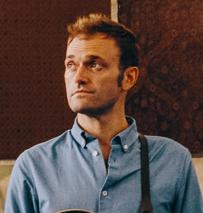
MacArthur Fellow and GRAMMY Award-winning mandolinist, singer, songwriter Chris Thile, whom the Guardian calls “that rare being: an allround musician who can settle into any style, from bluegrass to classical,” and NPR calls a “genre-defying musical genius,” is a founding member of the critically acclaimed bands Punch Brothers and Nickel Creek. For four years, Thile hosted public radio favorite Live from Here with Chris Thile (formerly known as A Prairie Home Companion). Most recently, Thile recorded Laysongs, out June 4, 2021, on Nonesuch. The album is his first truly solo album: just Thile, his voice, and his mandolin, on new recordings of six original songs and three covers, all of which contextualize and banter with his ideas about spirituality.
Terry Virts, speaker
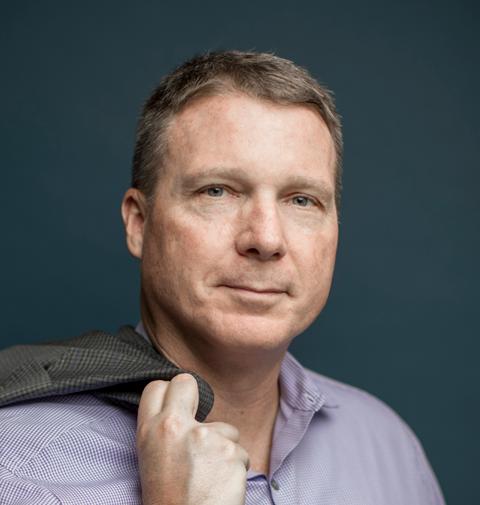
During his career Terry Virts served in the U.S. Air Force as an F-16 fighter and test pilot, piloted the Space Shuttle Endeavour, served as Commander for the International Space Station, and conducted three spacewalks during a 200-day mission in 2014 and 2015. During his seven months in space, Virts led a multinational team that included Russian cosmonauts and U.S. and Italian astronauts during some of the tensest relations with Russia since the Cold War, and through three onboard accidents that resulted in an extended stay in space. While there, he took more than 300,000 photographs
and hours of video—the most of any space mission before or since. These form the backbone of the IMAX film A Beautiful Planet, featuring Terry and narrated by Jennifer Lawrence. National Geographic published View from Above, a book featuring some of his best images alongside his reflections on spaceflight, stewardship of life on earth, and our place in the cosmos. A compelling speaker and regular contributing instructor at Harvard Business School, Terry shares his insights in a wide variety of venues, from Fortune 500 boardrooms to concert halls to Title One schools. His second book, How to Astronaut: Everything you need to know before leaving Earth, was published in 2020.
TheConrad.org · 858.459.3728 47
Table of Contents
Winter Season 2023–24 Prelude Lecturers, Interviewers,
and Performers
Kristi Brown Montesano, Piano Series lecturer
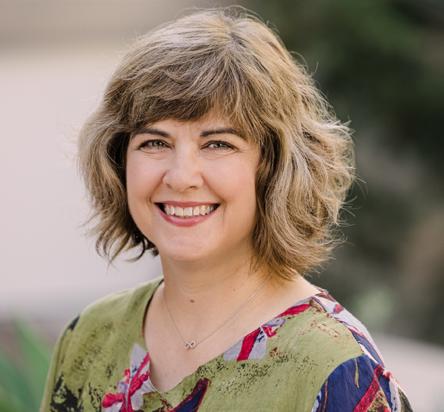
Chair of the Music History Department at the Colburn Conservatory of Music in Los Angeles, Kristi Brown Montesano is an enthusiastic “public musicologist.” She is an active lecturer for the LA Philharmonic, the Opera League of Los Angeles, the Salon de Musiques series, and Mason House Concerts. Her book, The Women of Mozart’s Operas (UC Press, 2007), offers a detailed study of these fascinating roles; more recent scholarly interests include classical music in film, women in classical music, and opera for children.
Michael Gerdes, Revelle Chamber Music and Recital Series lecturer

Michael Gerdes is Director of Orchestras at San Diego State University, where he conducts the San Diego State Symphony Orchestra, Chamber Orchestra, and Opera Orchestra. He earned his Bachelor of Music degree in Music Education and Bachelor of Arts Degree in Philosophy from Concordia College in Moorhead, Minnesota. Selected by the San Diego Union-Tribune as one of three “Faces to Watch in Classical Music” during his first year as Director of Orchestras, Gerdes is focused on creating a thriving orchestral community at San Diego State University.
Robert John Hughes, Jazz Series interviewer

Journalist, broadcaster, musician, author, and record producer
Robert John Hughes has interviewed hundreds of musical artists in classical, jazz, pop, rock, R&B, and blues, including Sting, Wynton Marsalis, Bonnie Raitt, Paul Simon, B.B. King, Adele, and Peter Gabriel. As a record producer and member of the GRAMMY® Academy, Hughes has released five albums of live performances by artists heard on San Diego FM station 102.1 KPRi. Hughes has hosted La Jolla Music Society Preludes since 2018.
Molly Puryear, Dance Series interviewer
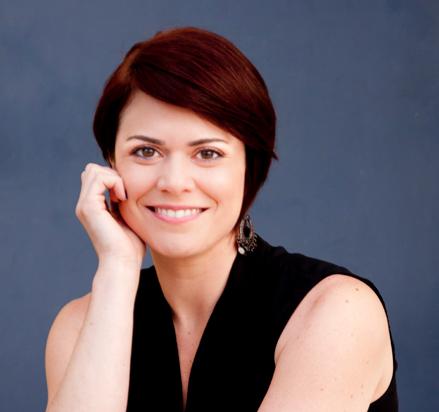
Molly Puryear brings passion for dance and nonprofit administration to her position as Executive Director of Malashock Dance. Puryear has worked with Malashock Dance since 2006, and previously served in the role of Education Director. She strategically aligns artistic and educational efforts to create a dynamic relationship between programs, the communities they serve, and the organization’s valuable funders. Puryear is committed to serving the San Diego community through the development and administration of vibrant dance programs. She believes that dance is an avenue for personal expression that engages people from all walks of life.
The Colburn School, Discovery Series Musical Preludes

A performing arts institution located in the heart of Los Angeles, the Colburn School trains students from beginners to those about to embark on professional careers. The academic units of the school provide a complete spectrum of music and dance education united by a single philosophy: that all who desire to study music or dance should have access to top-level instruction. Each year, nearly 2,000 students from around the world come to Colburn to benefit from the renowned faculty, exceptional facilities, and focus on excellence that unites the community. colburnschool.edu
PHOTO CREDITS: Cover: H. Hancock © Danny Clinch; Pg. 14: The Baker-Baum Concert Hall courtesy of The Conrad; Pg.16: L. Rosenthal © Sam Zauscher; Pg.17: Hiromi © Mari
Amita, D. González courtesy of artist, M. Grinnell © Kristy Walker, E. Kornhauser courtesy of artist, C. Rodriguez courtesy of artist; Pg.18: H. Hancock courtesy of artist; Pg.19: D. González courtesy of artist; Pg.20: Hiromi © Mitsuru Nishimura; Pg.21: Hiromi © Mari Amita; Pg.22: Y. Bronfman © Frank Stewart; Pg.26: Junction Trio © Shervin Lainez; Pg.29: Ballets Jazz Montréal; Pg.31: P. Ferrández © Igor Studio, J. Elizalde © Carlin Ma; Pg.34: JIJI © Marty Bra; Pg.35: T. Virts courtesy of artist; Pg.36: B. Liu © Christopher Koestlin; Pg.40: C.Thile © Josh Goleman; Pg.41-47: Ballets Jazz Montréal courtesy of artist, T. Blanchard courtesy of artist, Y. Bronfman © Dario Acosta, J. Campbell courtesy of artist, G. Coye courtesy of artist, A. Damiani courtesy of artist, J. Elizalde © Amanda Wescott, H. Feraud courtesy of artist, P. Ferrández © Kristian Schuller, J. Genus courtesy of artist, D. González courtesy of artist, H. Hancock © Eric Myer, Hiromi © Mari Amita, S. Jackiw courtesy of artist, JIJI © Marty Bra, T. Lawrence Jr. courtesy of artist, B. Liu © Yanzhang, A. O'Farrill © Camilo Fuentealba, C. Potter © Dave Stapleton, PUBLIQuartet courtesy of artists, C. Tao courtesy of artist, C.Thile © Josh Goleman, T. Virts © Jack Roberts; Pg. 48: K. Brown Montesano © Elisa Ferrari, M. Gerdes courtesy of artist, R.J. Hughes courtesy of artist, M. Puryear courtesy of artist; Back Cover: Inon Barnatan ©Marco Borggreve
48 THE CONRAD | HOME OF LA JOLLA MUSIC SOCIETY · 2023-24 SEASON
FEST 2024

Full Festival Packages ON SALE NOW!
4 Eventful Weeks.
21 Dynamic Performances. Dozens of Stellar International Musicians.
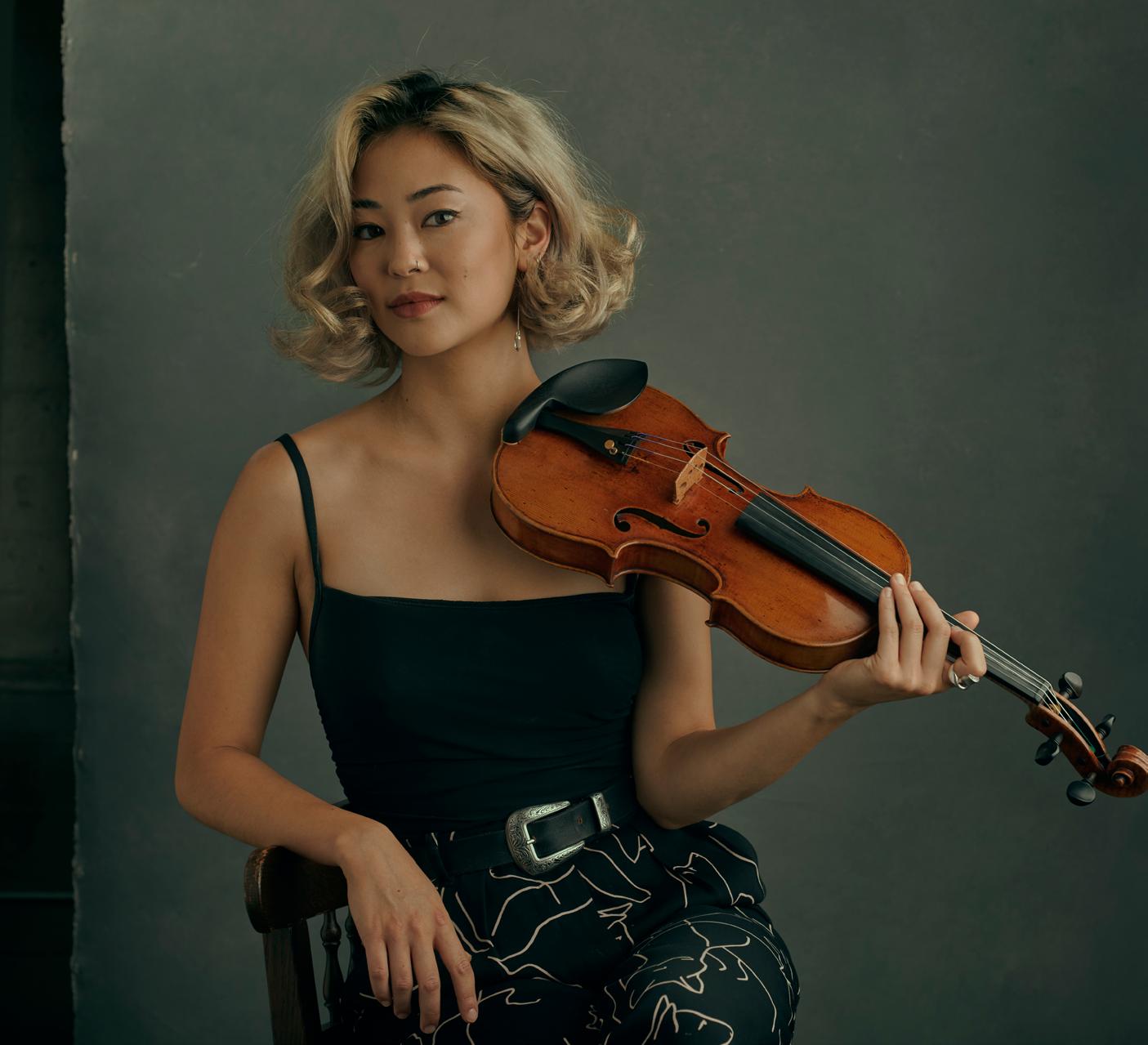
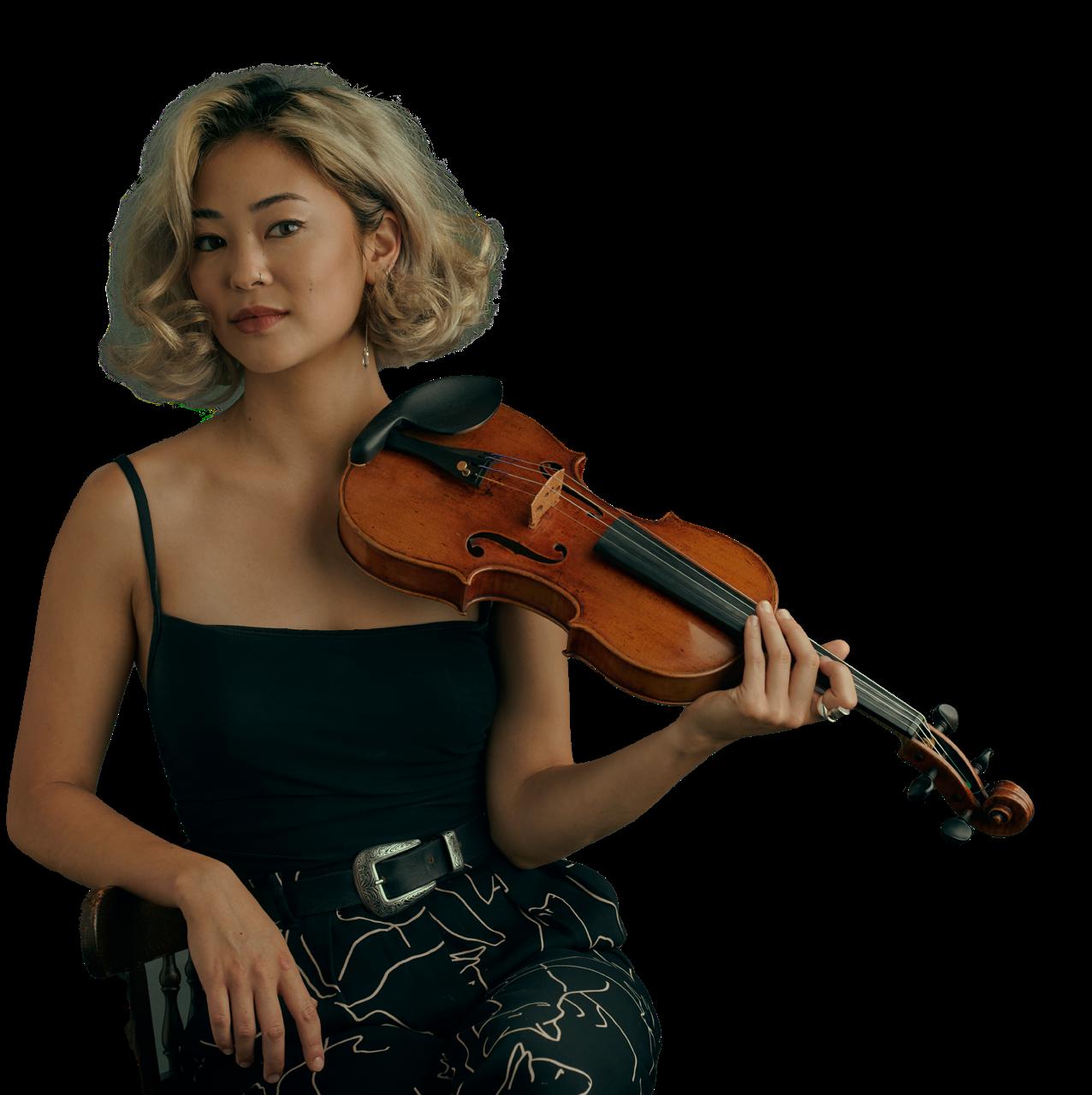
Join us for SummerFest from July 26 — August 24, 2024
Personal Listening and Hearing Assist
Personal Listening and Hearing Assist is available through the Listen EVERYWHERE app, through your mobile device or devices provided at our Concierge Desk. If you need a device, please request it from our House Management staff.
If you are using your own device, ensure you are logged into the WiFi network “The Conrad Public” and that you have downloaded the Listen EVERYWHERE app. Our complimentary devices will automatically open to the app.
Then:
• Select “The BakerBaum” for The Baker-Baum Concert Hall or “The JAI” for The JAI.
• Please make sure you are connected to your headphones, earbuds, or hearing aids and not putting out audio from your mobile device into the hall.
• To adjust your listening volume, please use your mobile device’s volume controls.
• To mute audio temporarily, tap the channel you are currently listening to. To unmute audio, tap the channel you wish to listen to again.
If you have any questions or need help using this app, please ask a member of our House Management staff for assistance!
TheConrad.org · 858.459.3728 49
SUMMER
LA JOLLA MUSIC SOCIETY
Table of Contents
Simone Porter
CONCERTS @ THE JAI
DAYRAMIR GONZÁLEZ & HABANA enTRANCé
FRIDAY, APRIL 19, 2024
6 PM & 8:30 PM
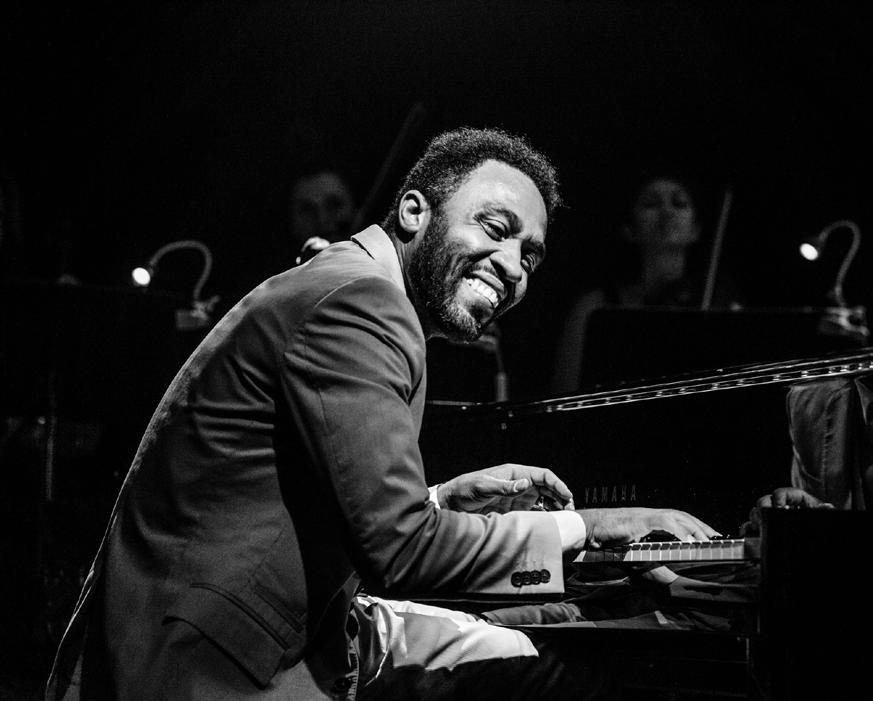
Cuban piano phenomenon Dayramir González began his professional career as a pianist and composer with former Irakere member Chucho Valdés’ Afro-Cuban jazz ensemble Diákara at the age of 16. Since winning Havana’s JoJazz festival in 2004 and 2005, González has gone on to win three Cubadisco awards for his 2007 debut album, Dayramir & Habana enTRANCé, and the 2013 Wayne Shorter Award for most outstanding jazz composer.
LARRY & JOE
SATURDAY, JUNE 1, 2024
6 PM & 8:30 PM

Venezuelan joropo maestro Larry Bellorín and GRAMMYnominated bluegrass and oldtime star Joe Troop from North Carolina are two virtuosic multi-instrumentalists who fuse their respective Venezuelan and Appalachian folk traditions on the harp, banjo, cuatro, fiddle, upright bass, guitar, and maracas to prove that music has no borders. Their bilingual program in English and Spanish includes storytelling, humor, and singalongs for a unique evening you won’t soon forget.
Charles & Friends featuring JOHN BEASLEY AND THE NEXT GENERATION
SATURDAY, MAY 18 · 6 PM & 8:30 PM
Our inaugural Jazz @ The JAI Guest Curator, legendary award-winning saxophonist Charles McPherson, and John Beasley, two-time GRAMMY winner, pianist, and composer, curate a program from Duke Ellington through the eras of jazz up to what’s happening now. John Beasley is joined by a roster of rising star jazz artists.
John Beasley, piano; Giveton Gelin, trumpet; Erena Terakubo, alto saxophone; Russell Hall, bass; Anthony Fung, drums
CHARLES & FRIENDS featuring THE CHARLES McPHERSON QUINTET
SUNDAY, JUNE 9, 2024
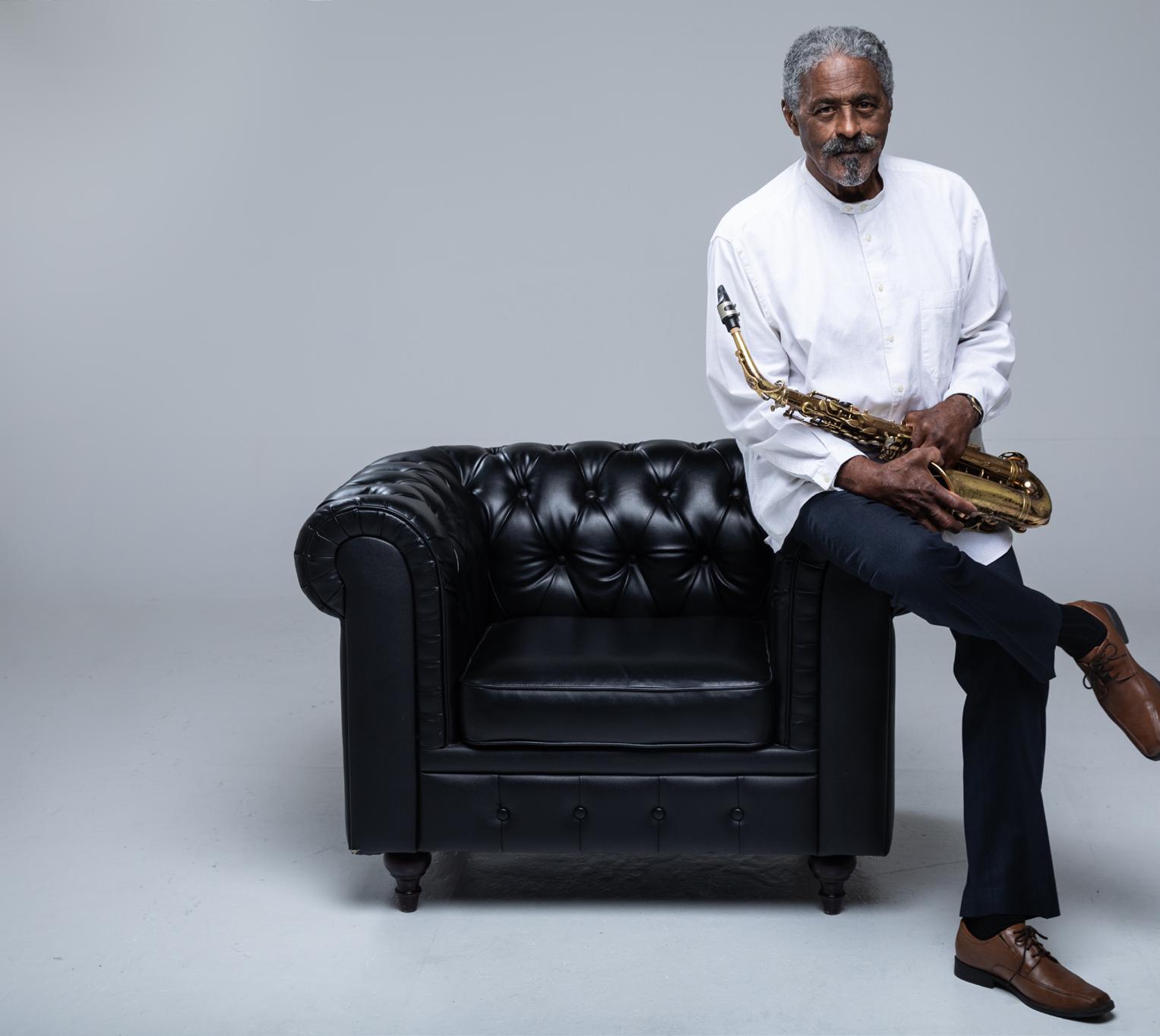
5 PM & 7:30 PM
Our jazz Guest Curator Charles McPhersons’ New York band performs all over the world and is acclaimed by audiences everywhere. Now the internationally renowned legend brings the best jazz musicians on the scene together for two intimate shows in The JAI, celebrating their new CD release.
Charles McPherson, saxophone; Terell Stafford, trumpet; David Wong, bass; Jeb Patton, piano; Lewis Nash, drums
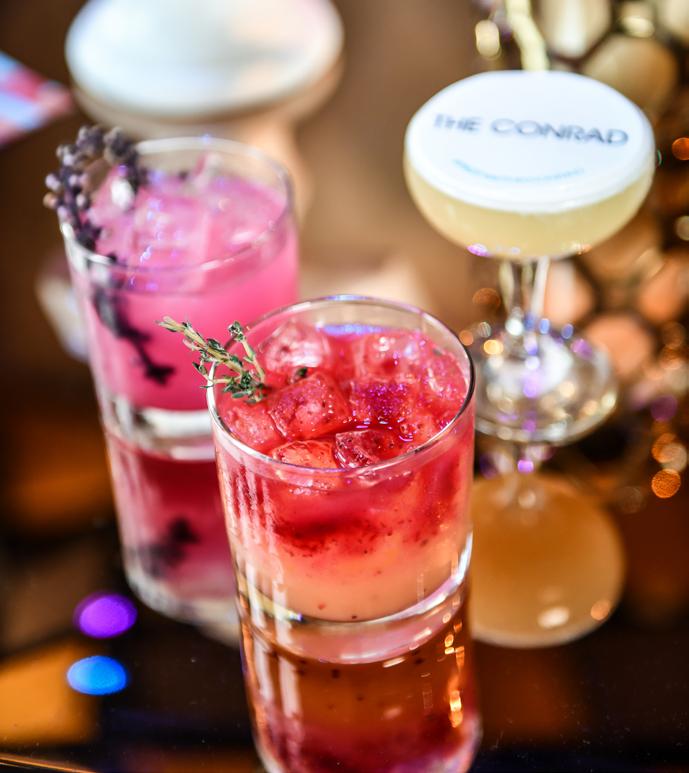

La Jolla Music Society is proud to partner with GRNFC Hospitality Group, founded by one of San Diego’s most established chef/restaurateurs, Giuseppe Ciuffa.
Enjoy a savory small bites menu, delicious cocktails, and the opportunity to order before you arrive! Giuseppe’s at The Conrad is the perfect culinary pairing to your musical experience.
50 THE CONRAD | HOME OF LA JOLLA MUSIC SOCIETY · 2023-24 SEASON
·
Ballets Jazz MontréalDance Me
Music by Leonard Cohen
Wednesday, May 15 • 7:3 0 PM Dance Series · San Diego Civic Theatre

Three international choreographers. Fourteen dazzling dancers. One musical icon. The revered torch singer’s words find new expression through dance in this stylish, sexy, and innovative program.

Learn more at TheConrad.org
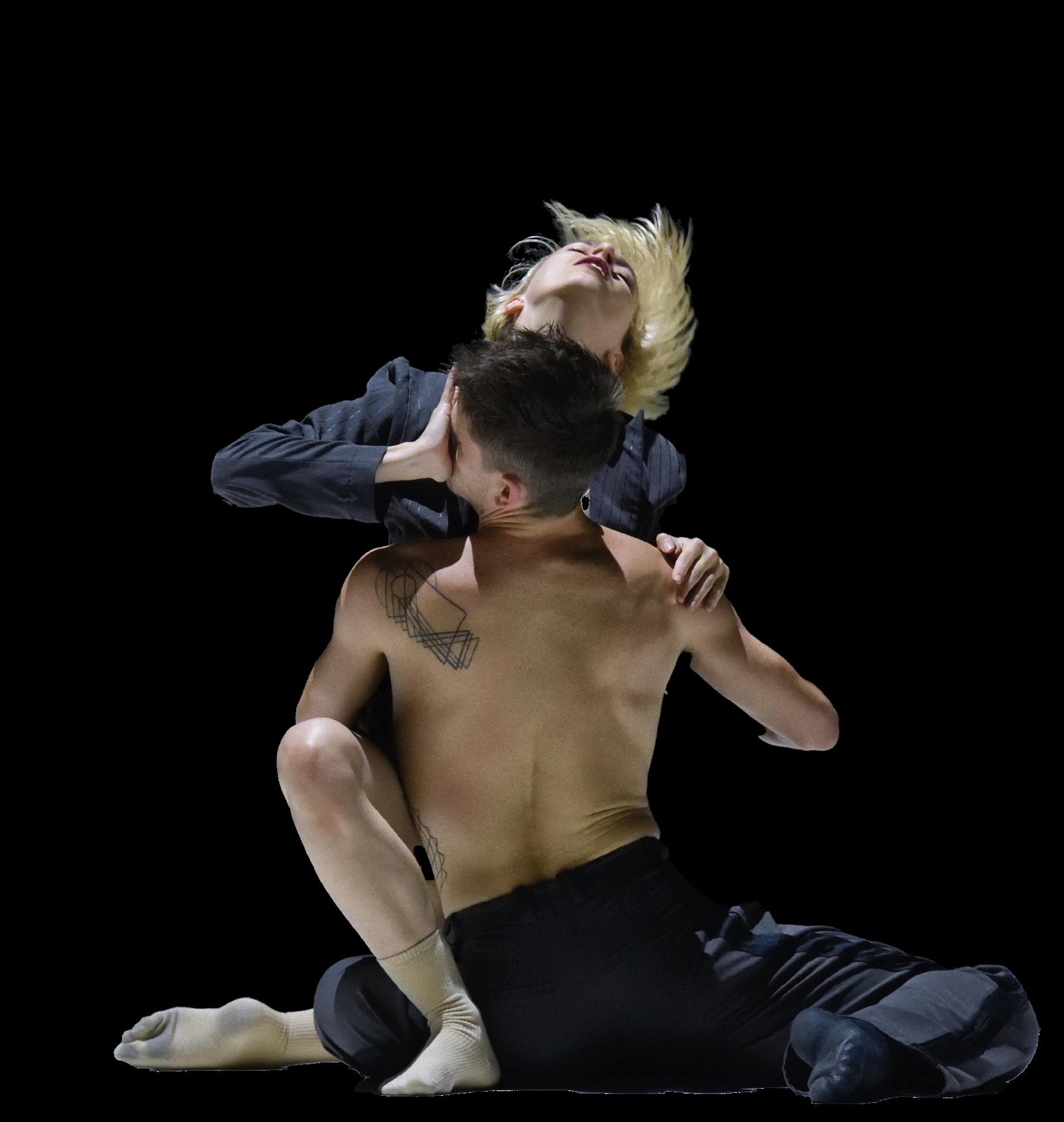
TheConrad.org · 858.459.3728 51 Table of Contents
THANK YOU!
The wonderful array of musical activity that La Jolla Music Society offers would not be possible without support from its family of donors. Your contributions to La Jolla Music Society help bridge the gap between income from ticket sales and the total cost to present the finest musicians and the best chamber music repertoire in San Diego. Your generosity also supports our programs in the local schools and throughout the community.
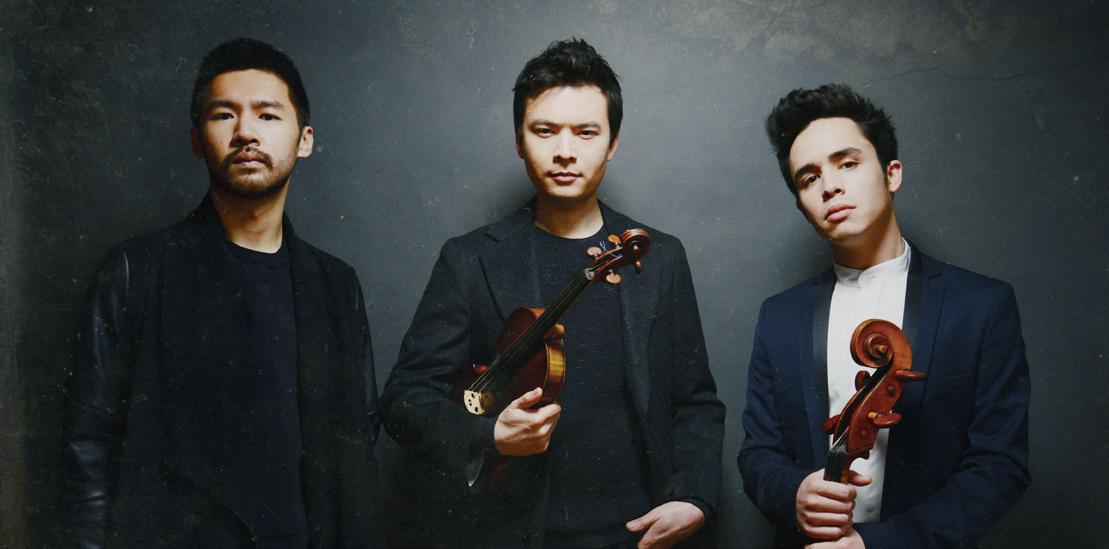

On the following pages La Jolla Music Society pays tribute to you, the leading players who make it possible to share the magic of the performing arts with our community. THANK
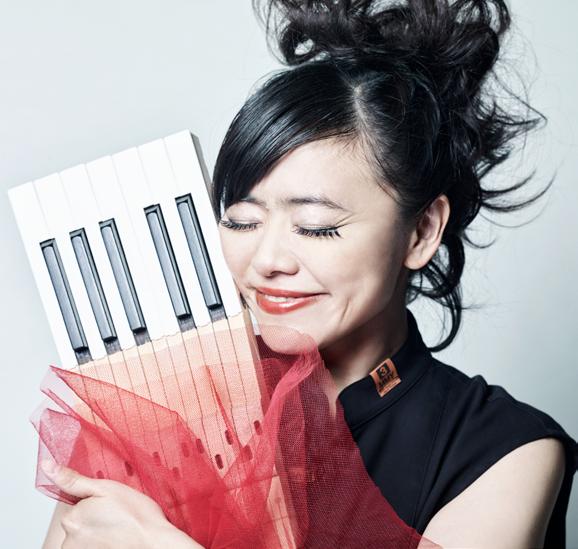
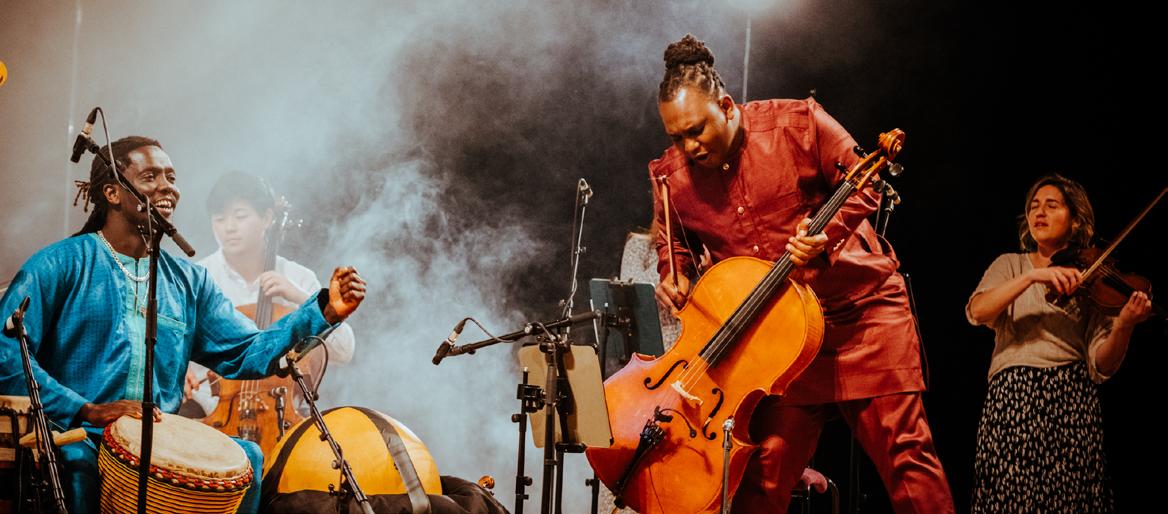
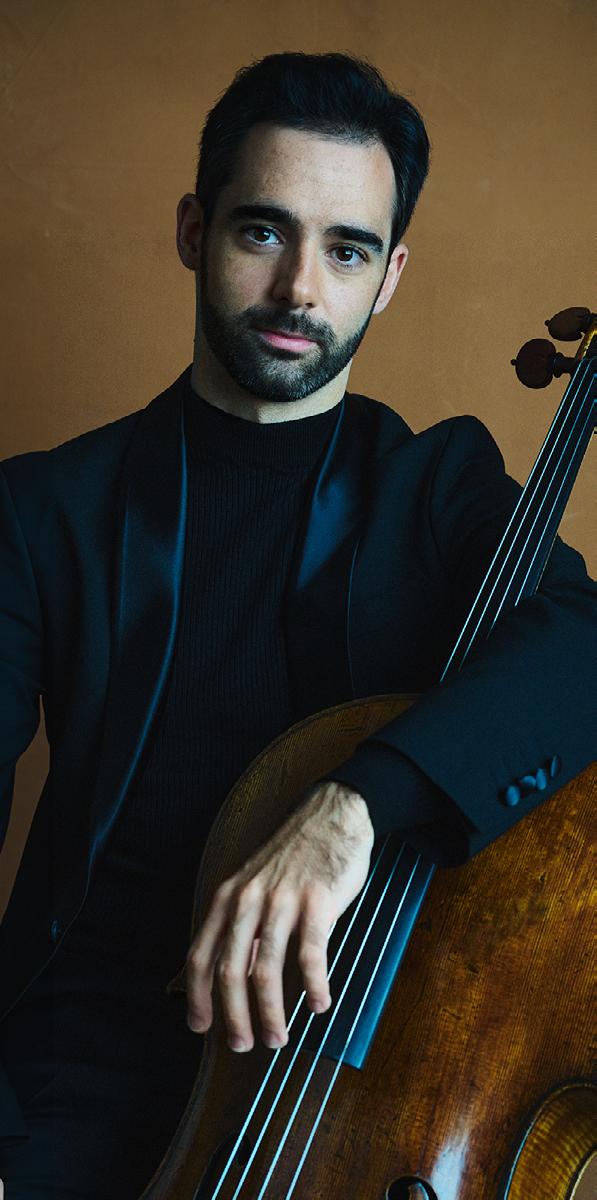
52 THE CONRAD | HOME OF LA JOLLA MUSIC SOCIETY · 2023-24 SEASON
YOU FOR YOUR SUPPORT
La Jolla Music Society depends on contributed income for more than 60% of its annual budget. We are grateful to all of our contributors who share our enthusiams and passion for the arts. Every donor is a valued partner and they make it possible for one of San Diego’s premier music organization to present year-round.
It is our honor to recognize the following donors.
FOUNDER
($250,000 and above)
Brenda Baker and Steve Baum
Wendy Brody Estate
The City of San Diego Commission for Arts and Culture
Joan and Irwin Jacobs
The Conrad Prebys Foundation
ANGEL
($100,000 - $249,999)
BENEFACTOR
($50,000-$99,999)
Raffaella and John Belanich
Lynda Fox Estate
Dorothea Laub
Debra Turner
Clara Wu Tsai and Joseph Tsai
Ric and Eleanor Charlton
Peter Cooper and Erik Matwijkow
Julie and Bert Cornelison
Silvija and Brian Devine
Elaine Galinson and Herbert Solomon
Helen and Keith Kim
Angelina and Fredrick Kleinbub
Vivian Lim and Joseph Wong
Marge and Neal Schmale
Joyce and Ted Strauss Family Trust
Haeyoung Kong Tang
Sue and Peter Wagener
Anna and Edward Yeung
Bebe and Marvin Zigman
TheConrad.org · 858.459.3728 53 ANNUAL SUPPORT ANNUAL SUPPORT
Table of Contents
GUARANTOR
($25,000 - $49,999)
Mary Ann Beyster
Marla Bingham and Gary Gallagher
Karen and Don Cohn
Barbara Enberg
Jennifer and Kurt Eve
Ingrid and Theodore Friedmann
Jeanne Herberger
John Hesselink
Susan and Bill Hoehn
The Lodge at Torrey Pines
Diana and Eli Lombrozo
Viviana and Enrique Lombrozo
Sue and John Major
Arlene and Lou Navias
Jeanne and Rick Norling
The Parker Foundation
Peggy and Peter Preuss
ProtoStar Foundation
Sylvia and Steve Ré
Stacy and Don Rosenberg
Sheryl and Bob Scarano
Jeanette Stevens
Elizabeth and Joseph Taft Revocable Trust
Vail Memorial Fund
Lise Wilson and Steven Strauss
SUSTAINER
($15,000 - $24,999)
Judith Bachner and Dr. Eric L. Lasley
Banc of California | Stephen Gamp
Katherine and Dane Chapin
Cafe Coyote and Rancho Coyote Wines
Sharon L. Cohen
Ellise and Michael Coit
County of San Diego Community Enhancement Fund
Jendy Dennis Endowment Fund
Martha and Ed Dennis
Dr. Seuss Foundation
Ann Parode Dynes and Robert Dynes
Monica Fimbres
Debby and Wain Fishburn
Pam and Hal Fuson
Brenda and Michael Goldbaum
Teresa and Harry Hixson
Elisa and Rick Jaime
Andy Nahas
Dagmar Smek and Arman Oruc
Clayton Lewis and Thomas Rasmussen
Stephanie and Nick Stone
Abby and Ray Weiss
SUPPORTER
($10,000 - $14,999)
Anonymous (2)
Alison Alpert
Dede and Mike Alpert
Celeste and Timothy Bailey
Jeffrey Barnouw
Valerie and Harry Cooper
Una Keyes Davis and Jack McGrory
Nina and Robert Doede
Sue and Chris Fan
Pamela Farr and Buford Alexander
Joy Frieman
Wendy Frieman
Ingrid Hibben
Jo Kiernan
Samuel Popkin and Susan Shirk
ResMed Foundation
Leigh P. Ryan
Susan and Stephen Schutz
Maureen and Thomas Shiftan
June and Dr. Bob Shillman
Iris and Matthew Strauss
Dolly and Victor Woo
AMBASSADOR
($5,000 - $9,999)
Anonymous (2)
Arleene Antin and Leonard Ozerkis
Brad and Gigi Benter
Julie and Edgar Berner
Carolyn and Giovanni Bertussi
Ginny and Bob Black
Karen and Jim Brailean
Lisa and David Casey
Katherine and Dane Chapin
Eric Cohen and Bill Coltellaro
Karen and Don Cohn
The Hon. Diana Lady Dougan
Sarah and Mike Garrison
Buzz and Peg Gitelson
Lisa Braun Glazer and Jeff Glazer
Lynn Gorguze and The Hon. Scott Peters
Margaret Stevens Grossman and Michael Grossman
Richard Harris and Sonya Celeste-Harris
Norma Hidalgo-Del Rio
Nellie High-Iredale
Barbara and Paul Hirshman
Theresa Jarvis
Barbara Kjos
54 THE CONRAD | HOME OF LA JOLLA MUSIC SOCIETY · 2023-24 SEASON ANNUAL SUPPORT
Marilee and Peter Kovacs
Carol Lazier and Jay Merritt
Veronica and Miguel Leff
Sylvia Liwerant
Kathleen and Ken Lundgren
Jain Malkin
Marilyn and Stephen Miles
Gail and Edward Miller
Cynthia and George Mitchell Foundation
Elaine and Doug Muchmore
Joyce and Ron Nelson
Shelby and Courtland Palmer
Marina and Rafael Pastor
Linda Platt
Vivien Ressler
Catherine Rivier
James Robbins and Jill Esterbrooks
Kathleen Roche-Tansey and David Tansey
Patty Levaur Rome
Clifford Schireson and John Venekamp
Todd R. Schultz
Reesey and David Shaw
Gigi and Joe Shurman
Gerald and Susan Slavet
Diane and DJ Smith
Beverly Fredrick Springer
Gloria and Rod Stone
Susan and Richard Ulevitch
Ayse Underhill
Mary L. Walshok
Erika Walter
Jo Weiner
Lisa Widmier
Armi and Al Williams
Shara Williams and Benjamin Brand
Mary and Joseph Witztum
AFICIONADO
($2,500 - $4,999)
Anonymous (1)
Judith Adler
Emily and Barry Berkov
Abdul Rahman Bitar
Isabel and Stuart Brown
DeAnn Cary
Carol and Jeff Chang
June Chocheles
Julie and Robert Cowan Novak
Debbe Deverill
Diane and Elliot Feuerstein
Richard Forsyth
Cheryl Hintzen-Gaines and Ira Gaines
Virginia Graham
Carrie Greenstein
Rossina Grieco
Lori Haynes
Susan and David Kabakoff
Sallay and Tae Kim
Christine and Charles Lo
Muchnic Foundation
Nancy Linke Patton and Rip Patton
Robert and Allison Price
Carol Randolph and Robert Caplan
Eva and Doug Richman
Jonathan Scheff
Noni and Drew Senyei
Stephanie and Steve Steinberg
Gwynn Thomas
Diana and Roger Van Duzer
Yvonne Vaucher
Carol Young
Betty Zeng
ASSOCIATE
($1,000 - $2,499)
Anonymous (3)
Albertsons-Safeway Foundation
Axel's Gift
Jadwiga Alexiewicz
David and Yasna Belanich
William Boggs
Ryan Bordelon
James Carter
Michael and Cathy Casteel
Kathleen Charla
Li-Rong L. Cheng
Anthony Chong and Annette Nguyen
Marilyn Colby
Ann Rea Craig
Caroline DeMar
Tallie and George Dennis
Linda and Wallace Dieckmann
Renee and James Dunford
Sam Ersan
July F. Galper
Anne Graves
Warren Green
Lee Ann Groshong
Pamela Hamilton Lester
Andrea Harris
Linda Howard
Laura Henson Hueter and Geoffrey Hueter
Audrey Jacobs
Dwight Kellogg
Melvin Knyper
James Kralik and Yunli Lou
Robin Luby
Eileen A. Mason
M. Margaret McKeown and Peter Cowhey
Ted McKinney
Susan and Doug McLeod
Lynn and Charles McPherson
Virginia Meyer
Sandra Miner
Anne and John Minteer
Chandra Mukerji
Brian Munden
Norman Needel
Virginia Oliver
Mary Sophos and William Pitts
Sandra Redman
Arlene and Peter Sacks
Victor Saldivar
Anne and Ronald Simon
Robert Singer
Carol Harter and William Smith
Joan T. Snider
David and Phyllis Snyder
Jean Sullivan and David Nassif
Newport Festival Foundation
Molly Thornton
Victor A. Van Lint
Pam Wagner
Karen M. Walter
Patricia and Christopher Weil
Christy and Howard Zatkin
Bart Ziegler
TheConrad.org · 858.459.3728 55 ANNUAL SUPPORT
Table of Contents
FRIEND
($500 - $999)
Anonymous (4)
K Andrew Achterkirchen
The Leonard B. and Martha M. Allen Fund
Elise Angel
Terence Balagia
Mary and Gene Barduson
Carol and Bruce Boles
Edwin Chen
David R. Child
Thayne Clark
Betty Clarquist
Jeanette Day
Marilou Dense
Linda and Rick Dicker
Kim Doren
Joyce and Paul Dostart
Jeane Erley
Irene and Eduardo Feller
Jack C. Fisher
Ferdinand Marcus Gasang
Mary and Tom Gegax
Barbara Giammona
Cynthia and Tom Goodman
Patt and Jeff Hall
Lulu Hsu
Sofia and Leon Kassel
Nancy Kossan
Kathleen Kovacs
Carol Lynne Krumhansl
Lewis Leicher
Greg Lemke
Patricia and Stephen Lending
Ruth and Ronald Leonardi
Charles Letourneau
Ann and Gerald Lipschitz
Linda and Michael Mann
Debra Medel
Desiree Michelle
Esther Nahama
Rosalva Parada
Sigrid Pate
Kirk L. Peterson
Dana and Stella Pizzuti
Paula M. Pottinger
Jacqueline Powell
Sharon Rearwin
Sasha Richards
Clark Ritter and John Gowan
Esther Rodriguez
Teri Rodriguez
Denise Selati
Michael Sellett
Tatjana Soli
Tom Son
Annemarie and Leland Sprinkle
Lisa Stennes-Laikind
Lester Stiel
Anne Turhollow
Karen L. Valentino
Paul Viani
Suhaila White
Joyce Williams
LaShawn C. Williams
Olivia and Martin Winkler
Barbara and Michel Zelnick
ENTHUSIAST
($250 - $499)
Robin Allgren
Sue Andreasen
Christine and Craig Andrews
Bruce H. Athon
Steve Axel
Youn Joo Bae
Mary Lonsdale Baker
Gayle Barsamian and David Clapp
Clyde Beck
C M Boyer
Scott Brinkerhoff
Marc Brown
Kathy Chambery
Tiffany Chow
Amy Corton
Susan Dramm
Robert C. Fahey
Derek Floyd
Pam and Michael Foley
Clare Friedman
Elisabeth Friedman
Bruce Galanter
Hany Magdy Girgis
Phyllis and Morris Gold
John Graul
Margie and Paul Grossman
Phyllis and Gordon Harris
Walter Hickey
Vivian and Greg Hook
David K. Jordan
H. and Susan Koshkarian
Marti Kutnik
Carolynn La Pierre
Jayne Lindberg
Robin Lipman
Patricia Manners
Maggie and Paul Meyer
Pamela and Martin Morris
Richard Obetz
Antje Olivie
Renee Levine Packer
Elizabeth Phelps
Carol Plantamura
Bill Purves and Don Schmidt
Ellen M. Quandahl
Rick Rand
Jean-Luc and Jaqueline Robert
Laura A. Romero
Barbara Rosen and Bob Fahey
Barry Rosenbush
Carolyn Rynard
James F. Sallis
Alice and Brad Saunders
Deborah Serra
Marjorie Hansen Shaevitz
Julie Swain
Lee Talner
Monica and Richard Valdez
N.B. Varlotta
Cynthia Walk
Jen-Yi Wang
Suzanne Weiner
Carol West
Tanya Young
This list is current as of March 25, 2024. We regret any errors.
Please contact Annie Delleman at ADelleman@TheConrad.org or 858.526.3445 to make a correction.
56 THE CONRAD | HOME OF LA JOLLA MUSIC SOCIETY · 2023-24 SEASON ANNUAL SUPPORT
CROWN JEWEL
Brenda Baker and Steve Baum
Joan and Irwin Jacobs
DIAMOND
Raffaella and John Belanich
Mary Ellen Clark
Dorothea Laub
Debra Turner
RUBY
Julie and Bert Cornelison
Silvija and Brian Devine
Elaine Galinson and Herbert Solomon
Helen and Keith Kim
Angelina and Fred Kleinbub
Vivian Lim and Joseph Wong
Haeyoung Kong Tang
Sue and Peter Wagener
EMERALD
Barbara Enberg
Arlene and Louis Navias
GARNET
Pam and Hal Fuson
Peggy and Peter Preuss
Anna and Edward Yeung
SAPPHIRE
Raymond Chinn
John Hesselink
Elizabeth and Joseph Taft
Bebe and Marvin Zigman
TOPAZ
Anonymous
Jeff Barnouw
Mary Ann Beyster
Virginia and Robert Black
James C. and Karen A. Brailean
Buzz and Peg Gitelson
Lisa Braun-Glazer and Jeff Glazer
Brenda and Michael Goldbaum
Margaret Stevens Grossman and Michael Grossman
Theresa Jarvis
Kathleen and Ken Lundgren
Elaine and Doug Muchmore
Don and Stacy Rosenberg
Leigh P. Ryan
Sheryl and Bob Scarano
Neal and Marge Schmale
Susan and Gerald Slavet
Diane and DJ Smith
Jeanette Stevens
Gloria and Rodney Stone
Susan and Richard Ulevitch
Shara Williams and Benjamin Brand
Dolly and Victor Woo
We are honored to have this extraordinary group of friends who have made multi-year commitments to La Jolla Music Society, ensuring that the artistic quality and vision we bring to the community continues to grow.
TheConrad.org · 858.459.3728 57
MEDALLION SOCIETY
Table of Contents
GRANDE JETÉ
Elaine Galinson and Herbert Solomon
Bebe and Marvin Zigman
JETÉ
Marla Bingham and Gary Gallagher
ARABESQUE
Ellise and Michael Coit
Jeanette Stevens
POINTE
Carolyn Bertussi
We are grateful for each patron for their passion and support of our dance programs.
HONORARIA
In Memory of John Belanich:
Martha and Ed Dennis
Ferdinand Marcus Gasang
In Memory of Bjorn Bjerede:
Anonymous
Ferdinand Marcus Gasang
James Hobza
Bob and Patty Laprey
Amy and Bill Morris
Annemarie and Leland Sprinkle
In Memory of Virginia Black:
Ferdinand Marcus Gasang
In Memory of George Damoose:
Ferdinand Marcus Gasang
Margie and Paul Grossman
Mary Manak
Pamela and Martin Morris
In Memory of Selma Malk:
Ann and Gerald Lipschitz
In Memory of Joanne Snider:
Ferdinand Marcus Gasang
Jud, Lee Ann, and Tyler Groshong
Glenn Moiser
Kevin Pearson and Stephen Murphy
Renee Roth
Reissa Schrager-Cole and Hilary Cole
Kerry Symonds
Dolly and Victor Woo
58 THE CONRAD | HOME OF LA JOLLA MUSIC SOCIETY · 2023-24 SEASON
DANCE SOCIETY
GIFTS IN HONOR/MEMORY
PLANNED GIVING / ENDOWMENT
LEGACY SOCIETY
Anonymous (3)
Brenda Baker and Steve Baum
June L. Bengston*
Joan Jordan Bernstein
Dr. James C. and Karen A. Brailean
Gordon Brodfuehrer
Wendy Brody*
Barbara Buskin*
Trevor Callan
Geoff and Shem Clow
Anne and Robert Conn
George and Cari Damoose*
Teresa and Merle Fischlowitz
Lynda Fox*
Ted and Ingrid Friedmann
Joy and Ed* Frieman
Sally Fuller
Maxwell H. and Muriel S. Gluck*
Dr. Trude Hollander*
Eric Lasley
Theodora Lewis*
Joani Nelson*
Maria and Dr. Philippe Prokocimer
Bill Purves
Darren and Bree Reinig
Jay W. Richen*
Leigh P. Ryan
Jack* and Joan Salb*
Johanna Schiavoni
Pat Shank
Reesey Shaw and David Joseph Shaw, M.D.
Drs. Joseph and Gloria Shurman
Karen and Christopher Sickels
Todd R. Schultz
Jeanette Stevens
Elizabeth and Joseph* Taft
Norma Jo Thomas
Dr. Yvonne E. Vaucher
Lucy and Ruprecht von Buttlar
Ronald Wakefield
John B. and Cathy Weil
Carolyn Yorston-Wellcome and H. Barden Wellcome*
Karl and Joan Zeisler
Josephine Zolin
REMEMBERING LJMS IN YOUR WILL
It is easy to make a bequest to La Jolla Music Society, and no amount is too small to make a difference.
Here is a sample of language that can be incorporated into your will: “I hereby give ___% of my estate (or specific assets) to La Jolla Music Society, Tax ID 23-7148171, 7600 Fay Avenue, La Jolla, CA 92037, for its artistic programs (or education, general operating, or where needed most).”
Then, please contact Ferdinand Gasang at FGasang@TheConrad.org or 858.526.3426 and let him know you have included LJMS in your estate plans.
The Legacy Society recognizes those generous individuals who have chosen to provide for La Jolla Music Society’s future. Members have remembered La Jolla Music Society in their estate plans in many ways — through their wills, retirement gifts, life income plans, and many other creative planned giving arrangements. We thank them for their vision and hope you will join this very special group of friends. If you have included LJMS in your estate plans, please let us know so we may recognize you. Contact Ferdinand Gasang at FGasang@TheConrad.org or 858.526.3426.
*In memoriam
TheConrad.org · 858.459.3728 59
Table of Contents


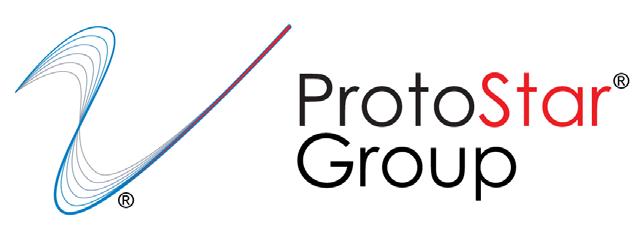


VAIL MEMORIAL FUND


TERRA LAWSON-REMER
San Diego County Supervisor, District 3
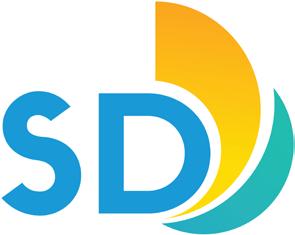
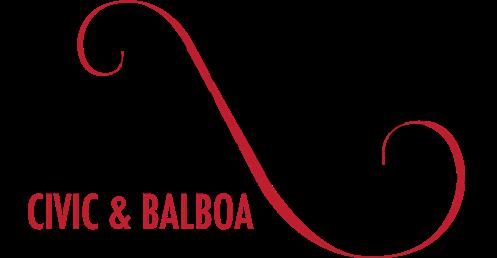
JOE LACAVA
City of San Diego Councilmember, District 1
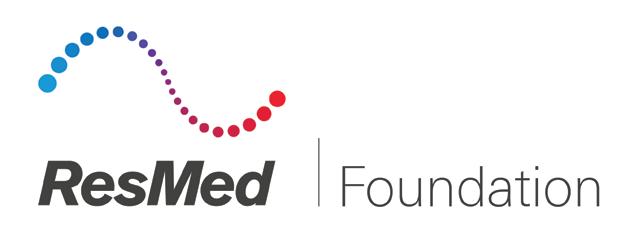
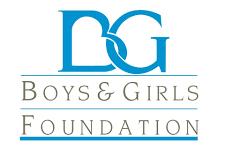

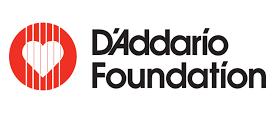


60 THE CONRAD | HOME OF LA JOLLA MUSIC SOCIETY · 2023-24 SEASON FOUNDATION & INSTITUTIONAL SUPPORT
CORPORATE SPONSORS




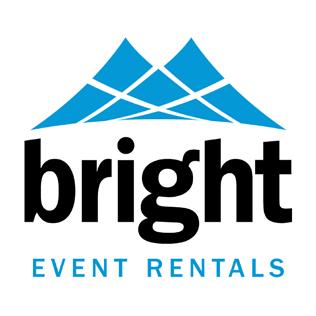



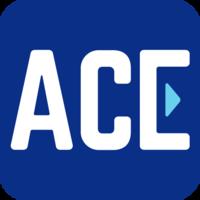
CORPORATE PARTNERS
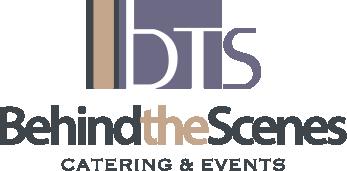

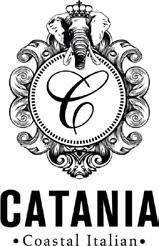






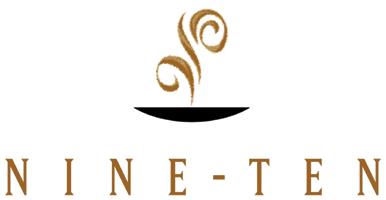

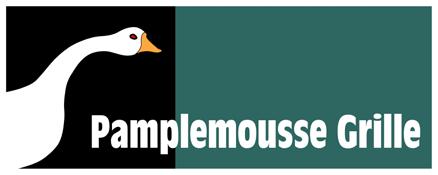
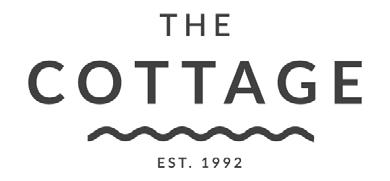

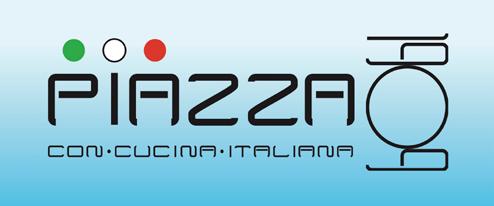
TheConrad.org · 858.459.3728 61 CORPORATE SUPPORT
Table of Contents
JOIN OUR FAMILY

For more than 50 years, La Jolla Music Society has nurtured a love of music by keeping one vision in mind: To present diverse programs of great music performed by the best musicians in the world. Today, that vision has reached beyond the intimate beauty of the chamber music ensemble and into new and diverse offerings such as orchestras, jazz ensembles, dance companies, renowned speakers, and robust education programs.
This impressive growth has been carefully conducted by an active and highly committed volunteer board of directors and dedicated staff. But most importantly, La Jolla Music Society’s progress has been sustained by the generosity of the community and ticket buyers.
...WITH A GIFT TODAY!
TheConrad.org/donate

To make a donation by phone or if you are interested in sponsoring an artistic or education program, please contact Ferdinand Gasang, Director of Development, at 858.526.3426 or FGasang@TheConrad.org
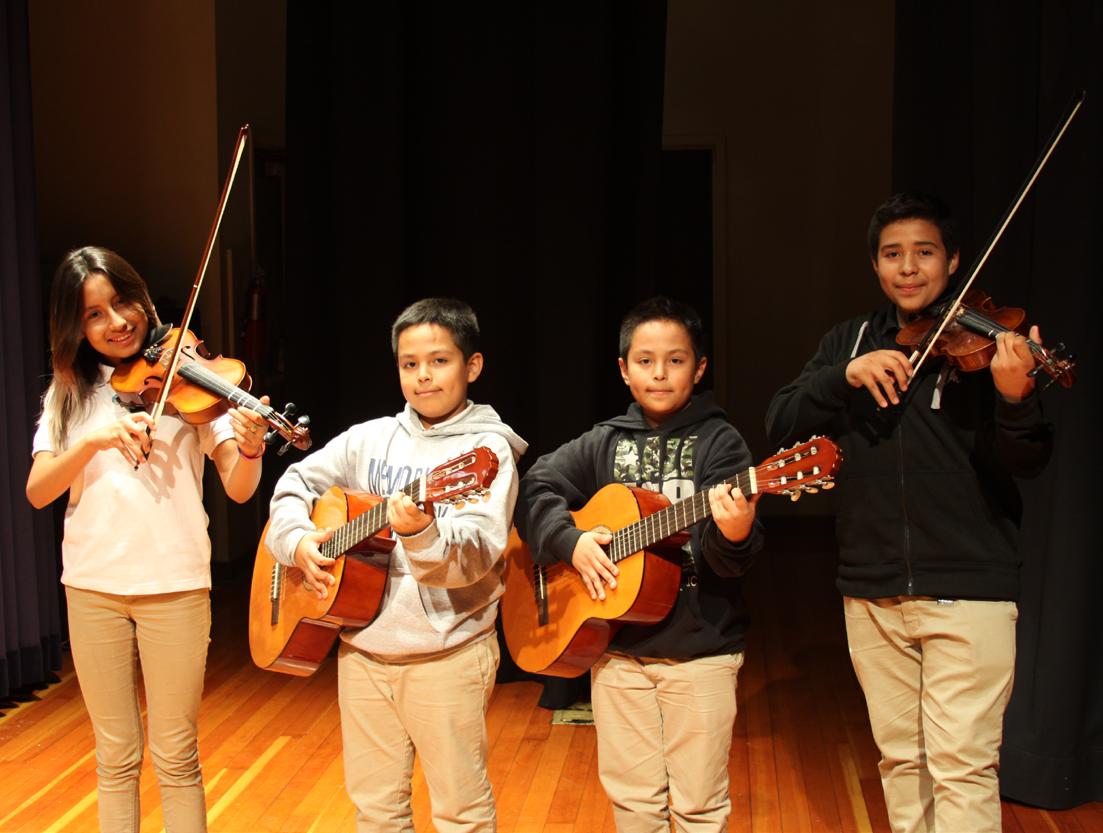
62 THE CONRAD | HOME OF LA JOLLA MUSIC SOCIETY · 2023-24 SEASON
Classical Music Festivals of the West 2024
CALIFORNIA
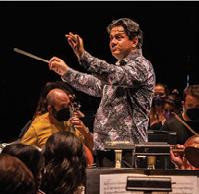
Cabrillo Festival of Contemporary Music
cabrillomusic.org
Santa Cruz, CA
July 29-August 11
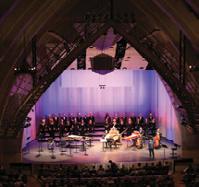
Carmel Bach Festival bachfestival.org
Carmel, CA
July 13-27
In loving memory of Steve Friedlander

La Jolla Music Society SummerFest
TheConrad.org
La Jolla, CA
July 26-August 24
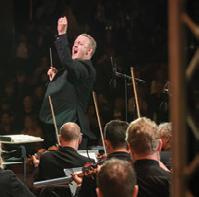
Mainly Mozart All-Star Orchestra Festival
mainlymozart.org
La Jolla, CA
June 20-29
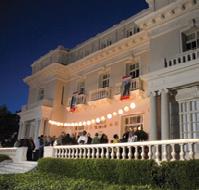
Music@Menlo musicatmenlo.org
Atherton, CA
July 19-August 10
COLORADO
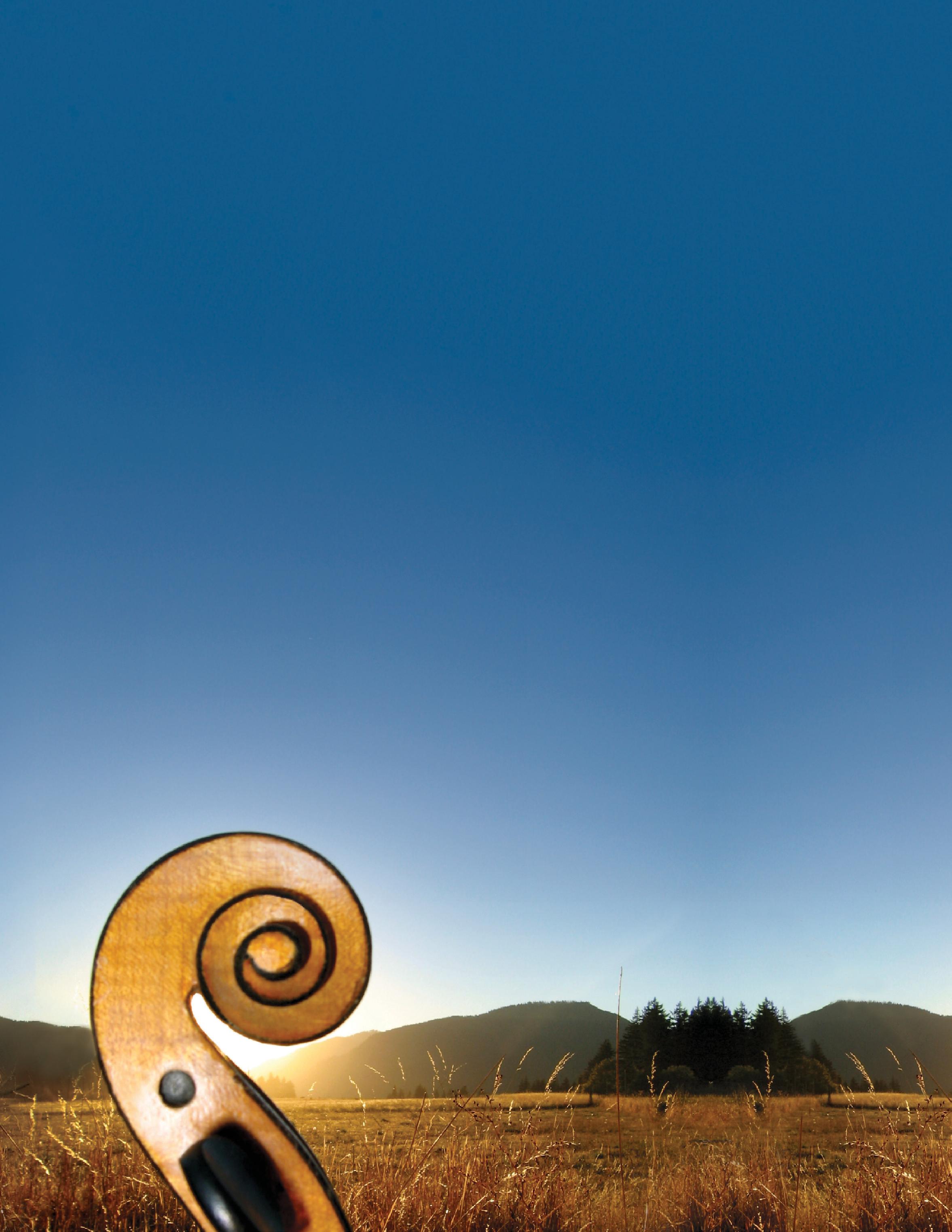
NEW MEXICO



Aspen Music Festival and School
aspenmusicfestival.com
Aspen, CO
June 26-August 18
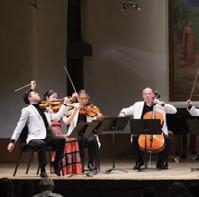
Santa Fe Chamber Music Festival
santafechambermusic.org
Santa Fe, NM
July 14-August 19


Bravo! Vail Music Festival
bravovail.org
Vail, CO
June 20-August 1
OREGON

Chamber Music
Northwest Summer Festival
cmnw.org


Colorado Music Festival
coloradomusicfestival.org
Boulder, CO
July 5-August 4

IDAHO
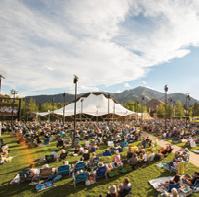
Strings Music Festival
stringsmusicfestival.com
Steamboat Springs, CO
June 21-August 25
Sun Valley Music Festival
svmusicfestival.org
Sun Valley, ID
July 29-August 22

Portland, OR
June 27-July 28
Oregon Bach Festival oregonbachfestival.org
Eugene, OR
June 28-July 14
WASHINGTON

Seattle Chamber Music Society Summer Festival seattlechambermusic.org
Seattle, WA
July 1-26
WYOMING

Grand Teton Music Festival gtmf.org
Jackson, WY
June 27-August 17

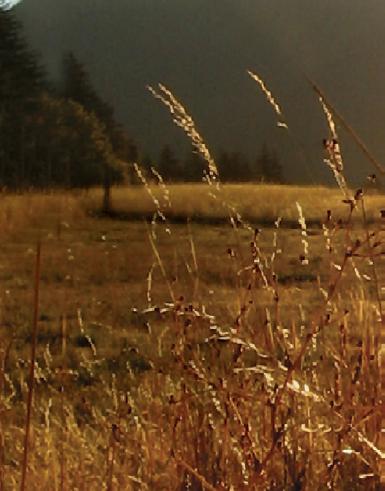
TheConrad.org · 858.459.3728 63
Photo: Jenna Poppe Photo: Chris Lee Photo: Tom Cohen
Photo: Steven Ovitsky FILL YOUR SUMMER WITH MUSIC! Explore the musical riches and unique settings of these allied festivals of the Western United States.
Lovethearts
Eric Berlin Table of Contents
Photo:
J. Kat Photography Photo:
Photo:


2019 NINE-TEN SummerFest Program Ad.pdf 1 05/29/2019 9:55:32 AM

TheConrad.org · 858.459.3728 65 Table of Contents
66 THE CONRAD | HOME OF LA JOLLA MUSIC SOCIETY · 2023-24 SEASON

TheConrad.org · 858.459.3728 67 bright.com • 858.496.9700 Proud Supporter of the La Jolla Music Society Los Angeles • West Los Angeles • Santa Barbara • Orange County • San Diego Palm Springs • San Francisco • Sonoma • Saint Helena • Healdsburg • Phoenix
to
QUALITY SERVICE EXPERIENCE INNOVATION Table of Contents
Chairs to China Linens to Lighting Tables
Tents
The ResMed Foundation is pleased to support your excellent programs in musical arts education.
Board of Trustees
Edward A. Dennis, PhD Chairman
Mary F. Berglund, PhD Treasurer
Peter C. Farrell, PhD, DSc Secretary
Charles G. Cochrane, MD
Michael P. Coppola, MD
Anthony DeMaria, MD
Sir Neil Douglas, MD, DSc, FRCPE
Klaus Schindhelm, BE PhD
Jonathan Schwartz, MD
Kristi Burlingame Executive Director Foundation
68 THE CONRAD | HOME OF LA JOLLA MUSIC SOCIETY · 2023-24 SEASON
7514 Girard Avenue, Suite 1-343 La Jolla, CA, USA, 92037 Tel 858-361-0755 ResMedFoundation.org

TheConrad.org · 858.459.3728 69 Table of Contents
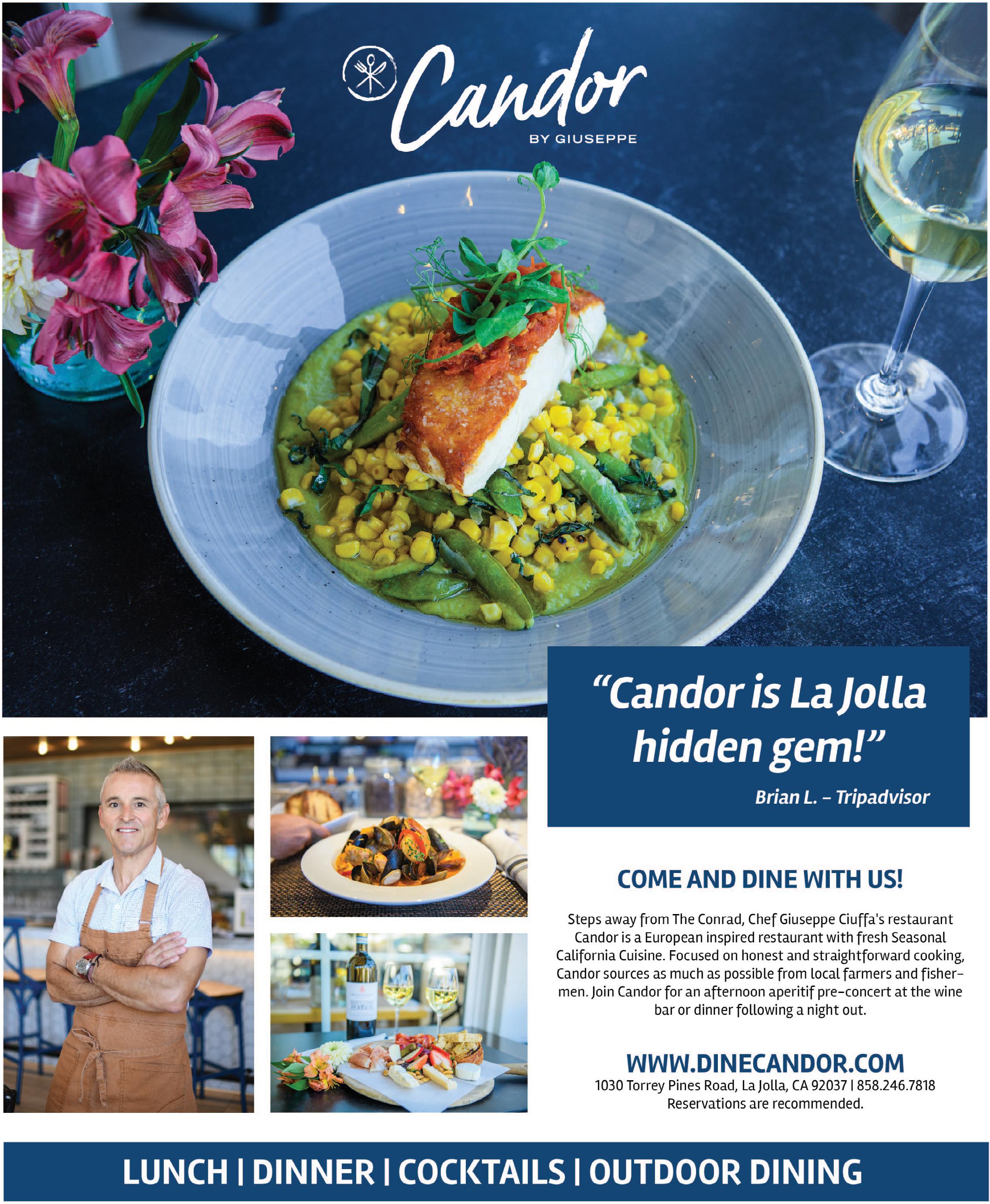
"Candor is La Jolla's hidden gem!"
Brian L. — Tripadvisor
70 THE CONRAD | HOME OF LA JOLLA MUSIC SOCIETY · 2023-24 SEASON

TheConrad.org · 858.459.3728 71 Table of Contents

TheConrad.org · 858.459.3728 Inon Barnatan
2024
SUMMERFEST
LA JOLLA MUSIC SOCIETY Inon Barnatan, Music Director July 26–August 24











































































































































































